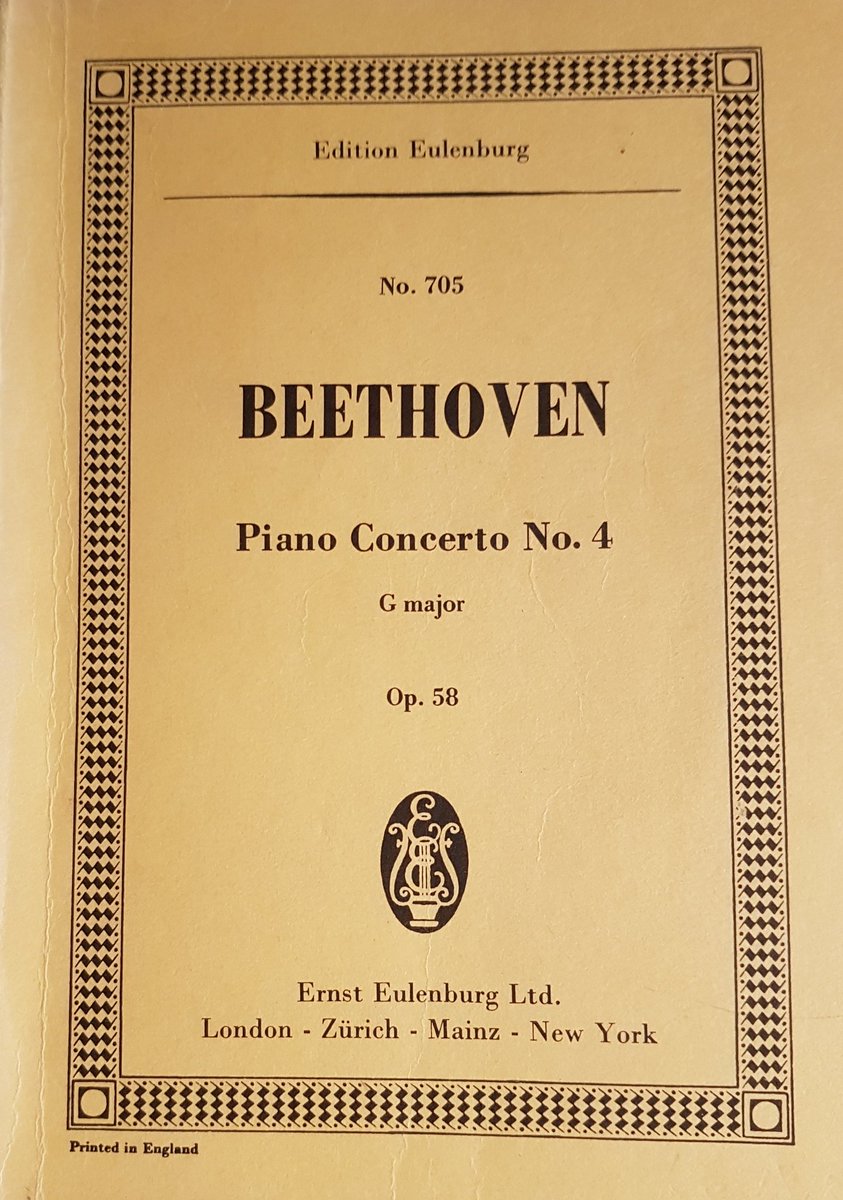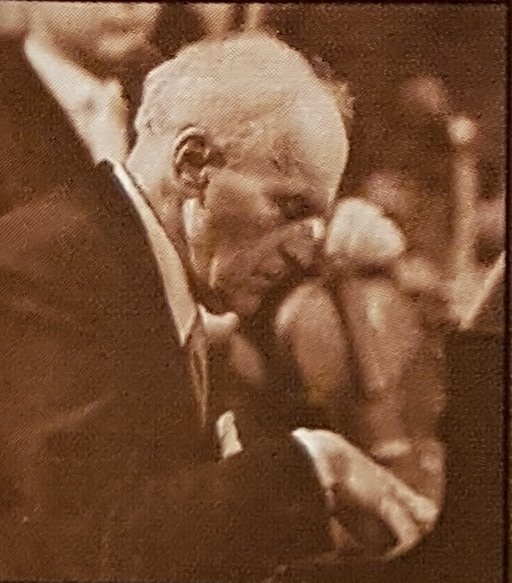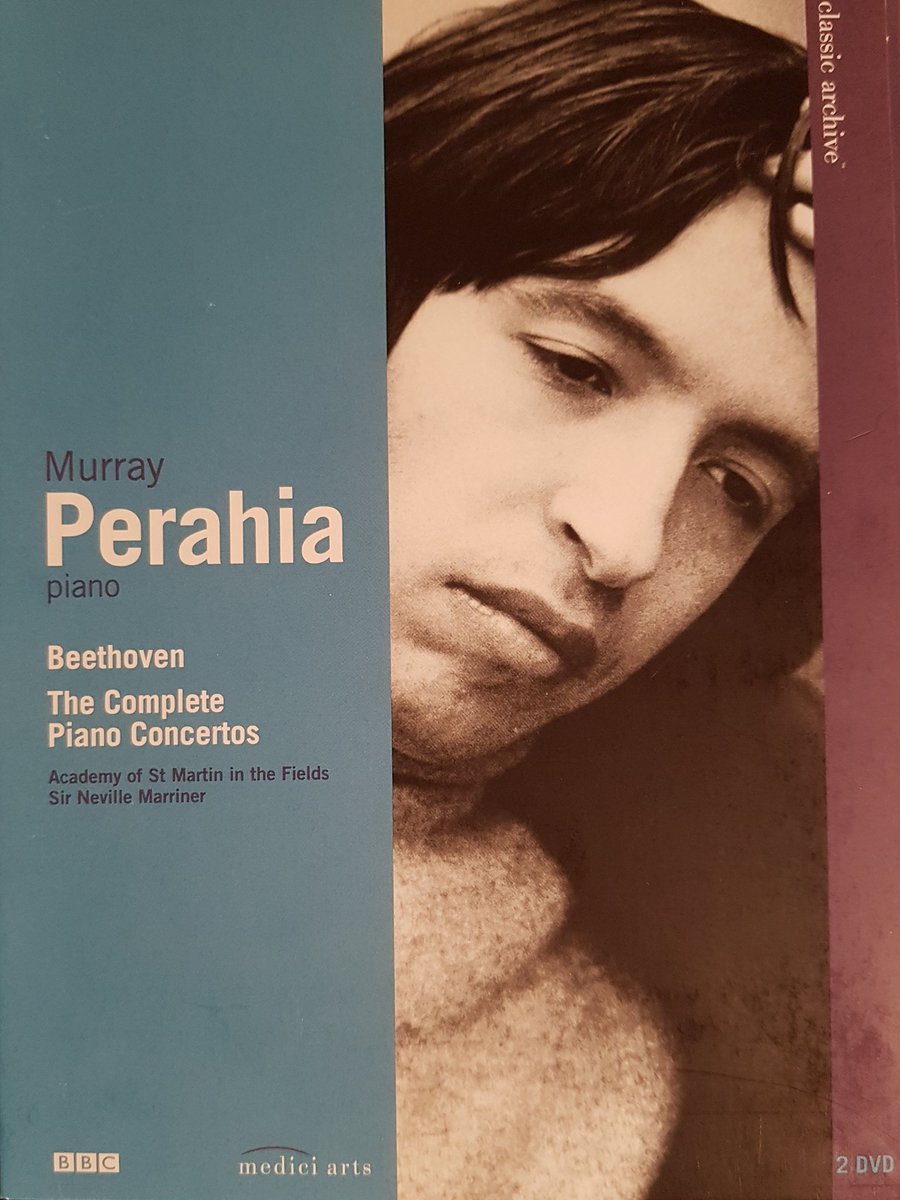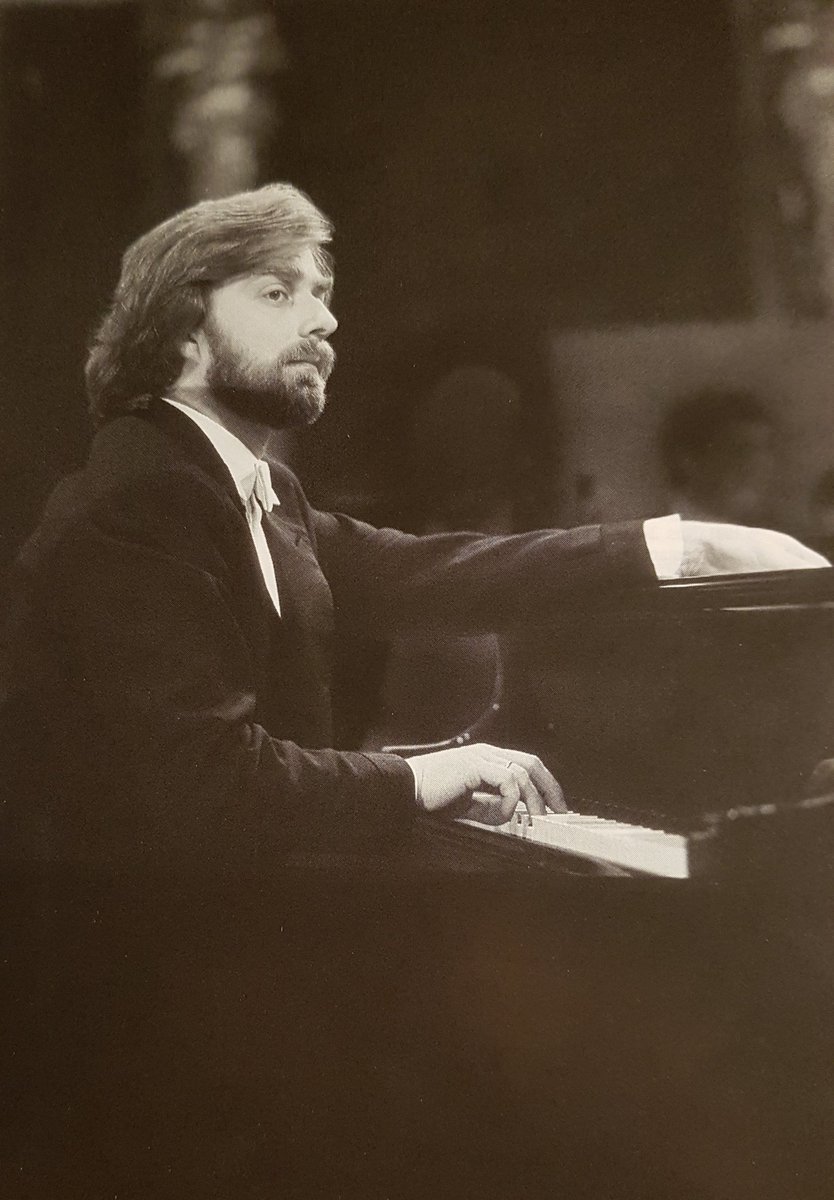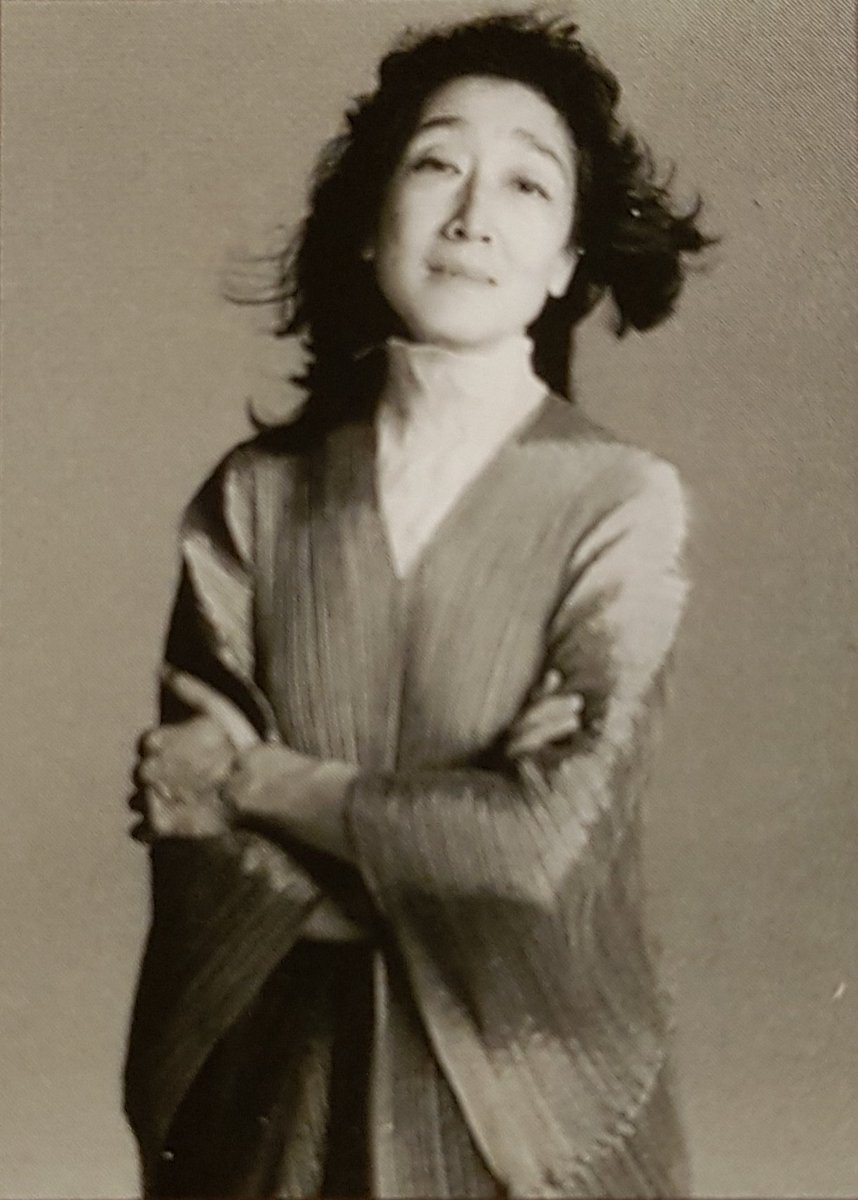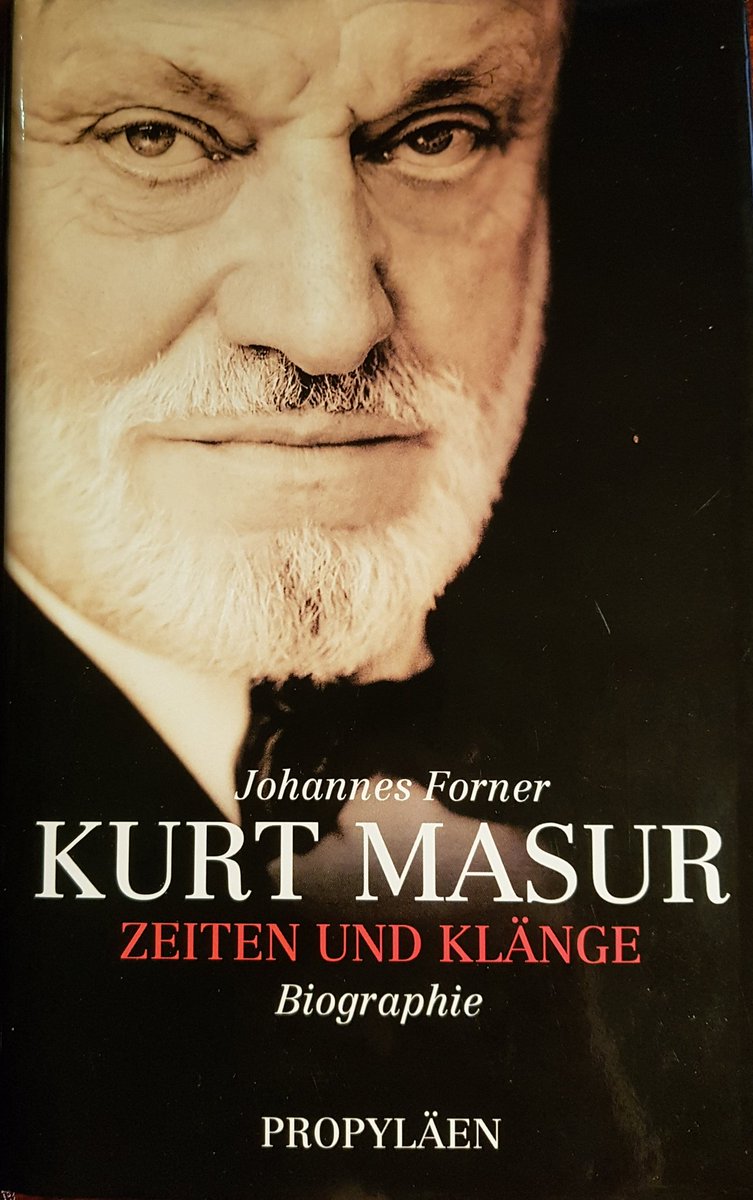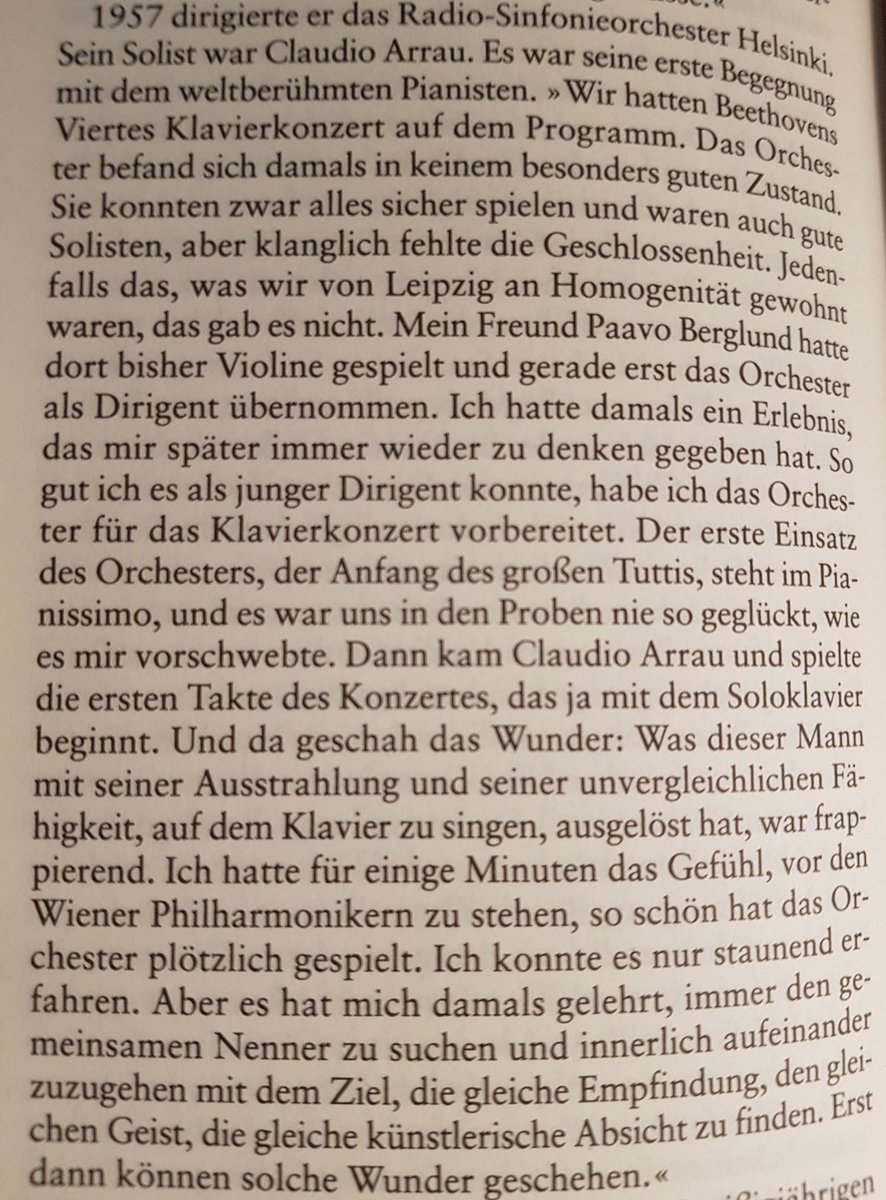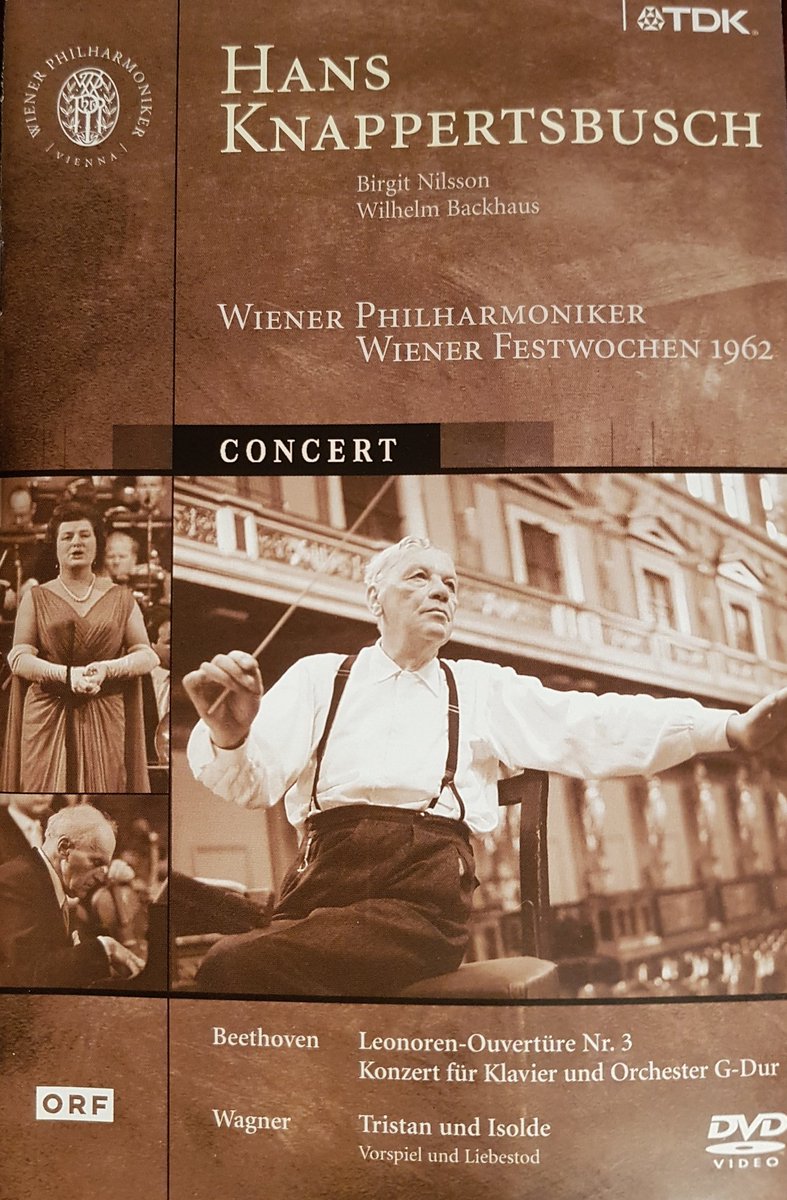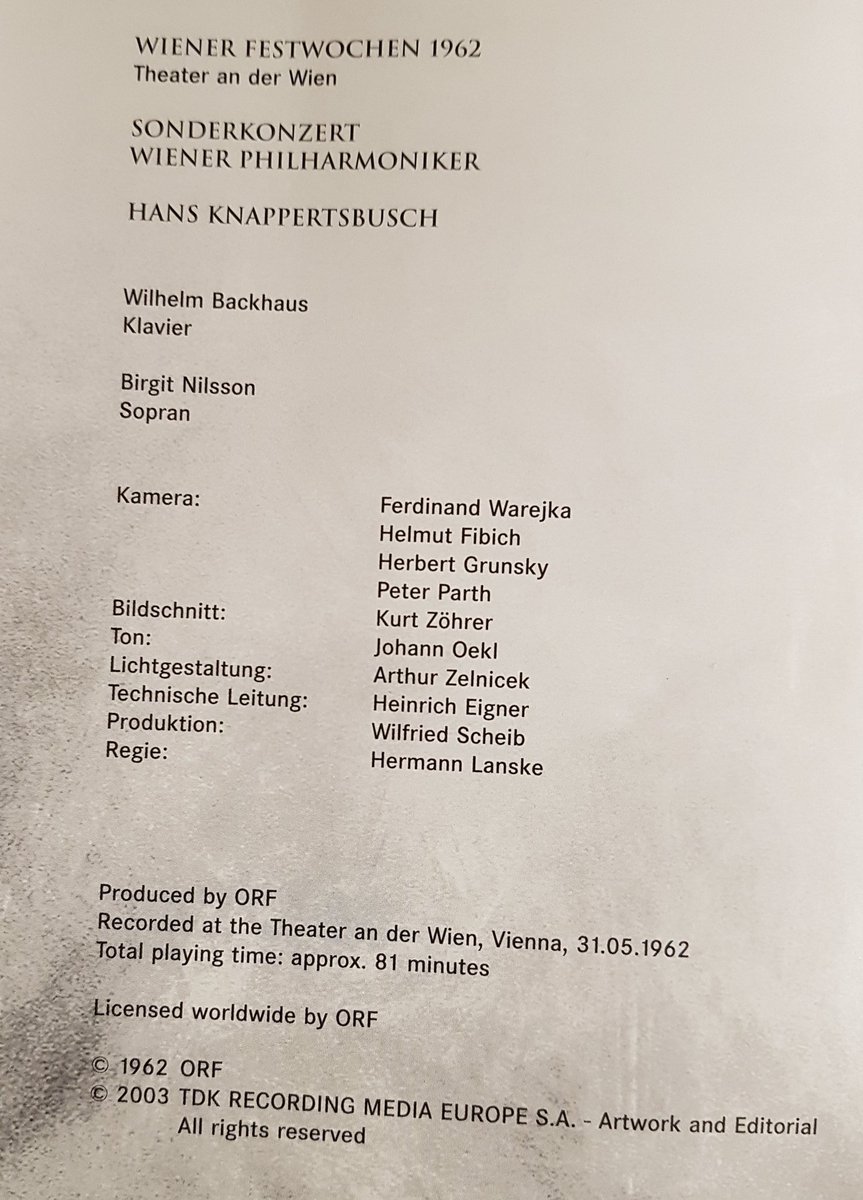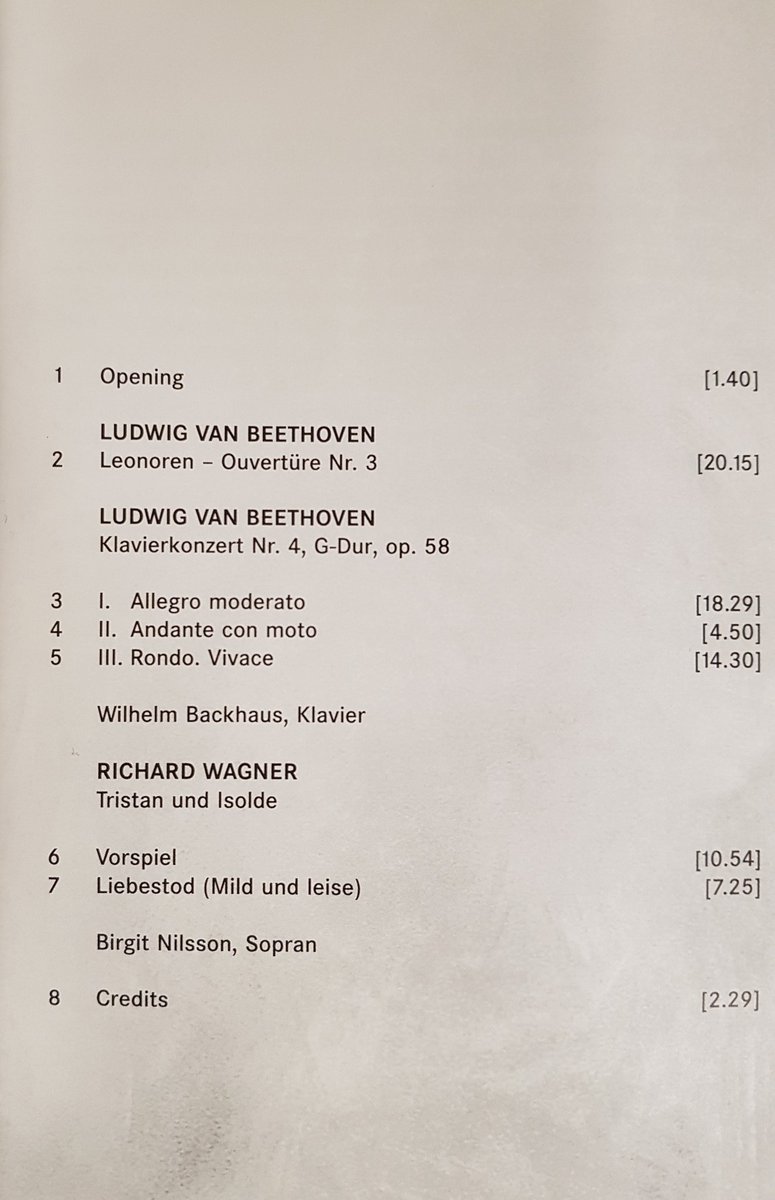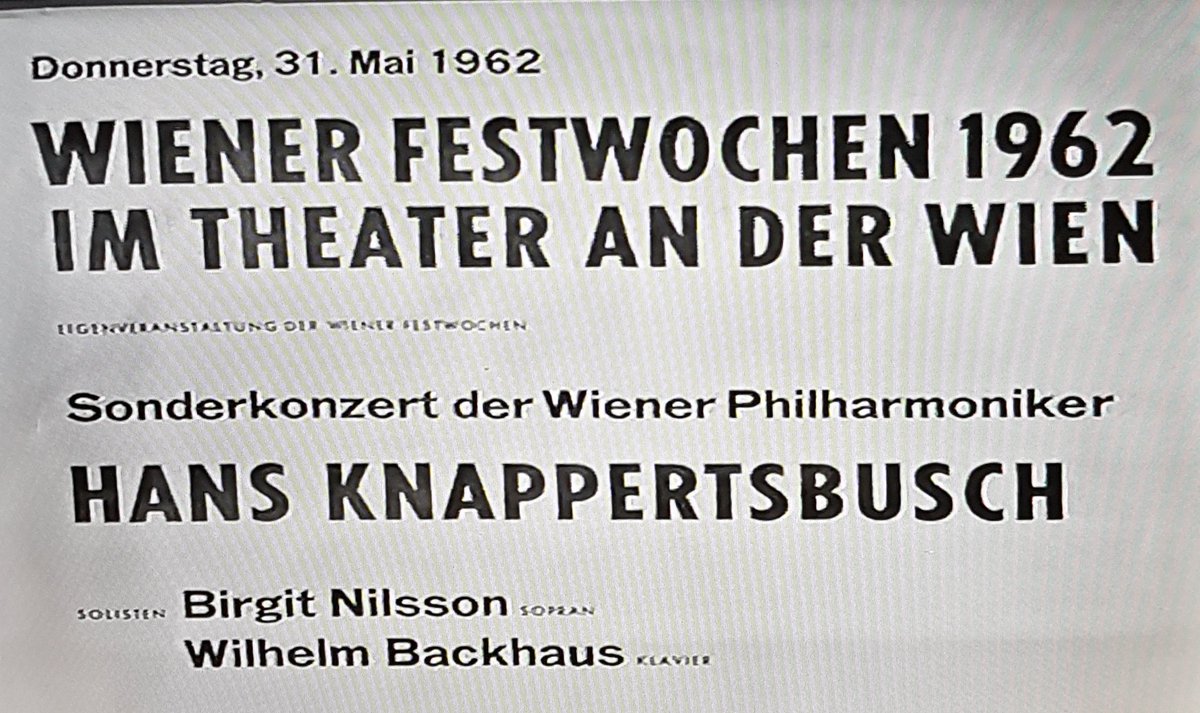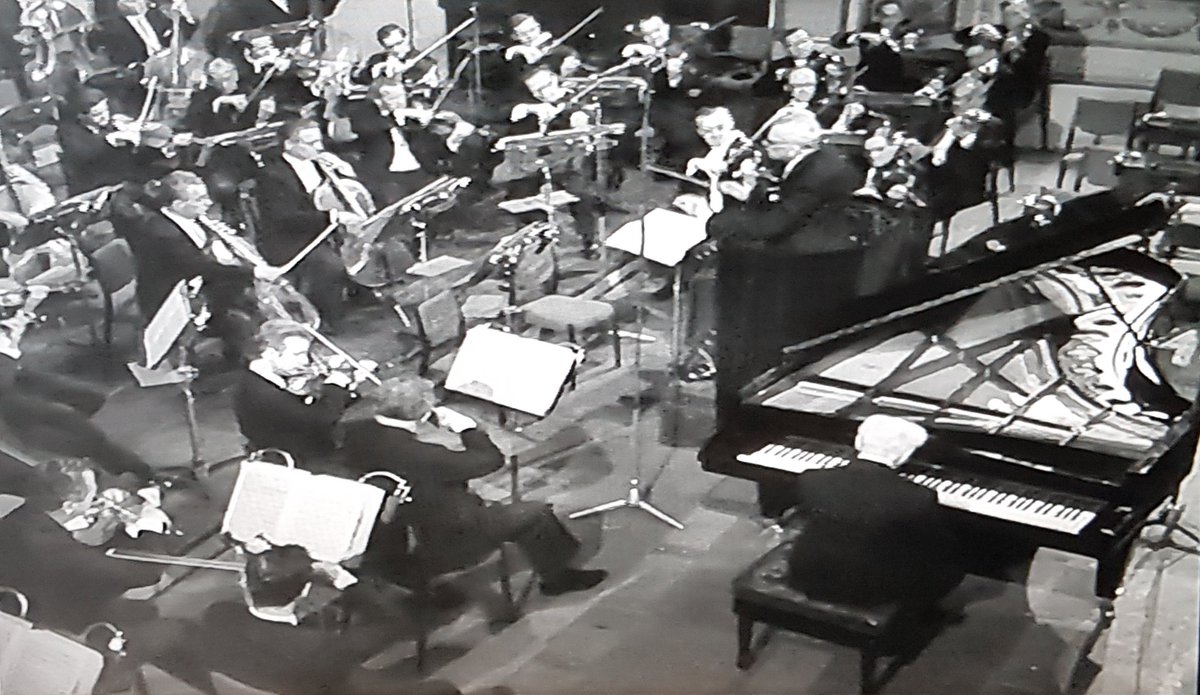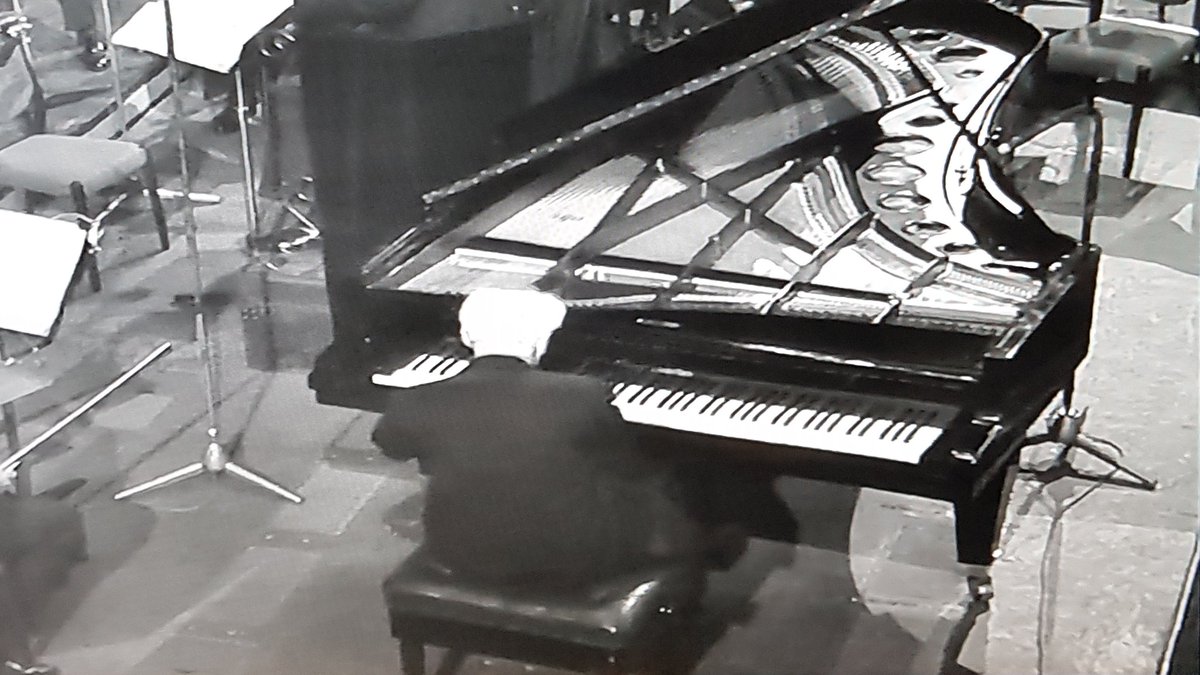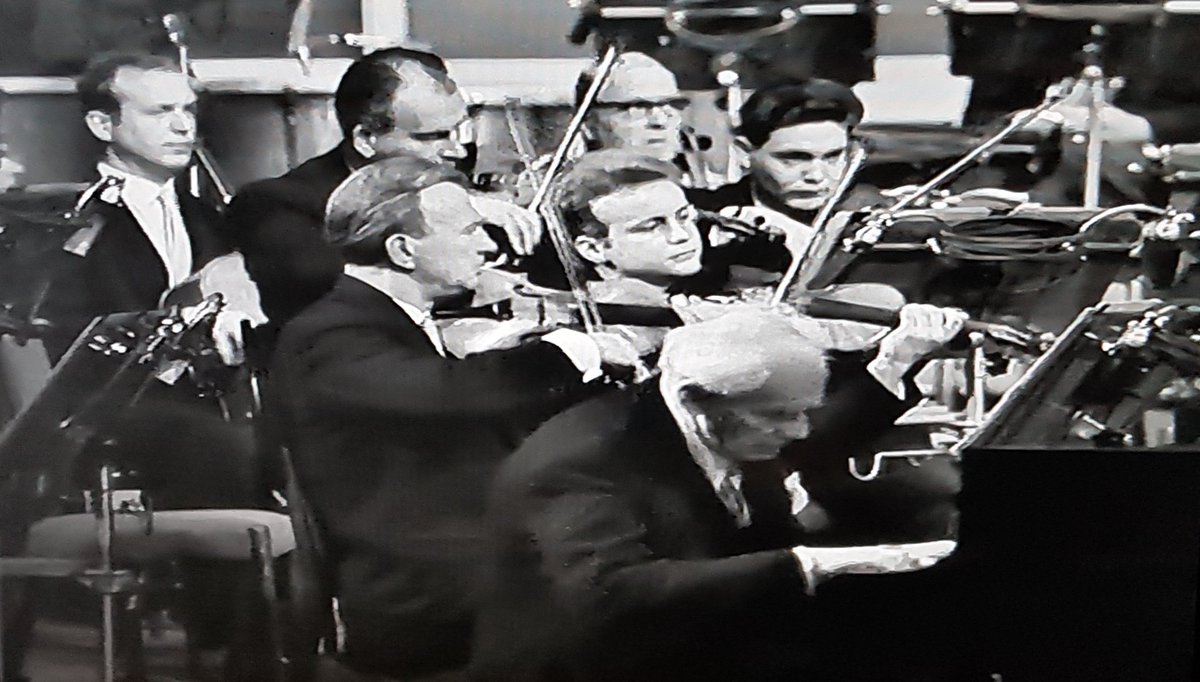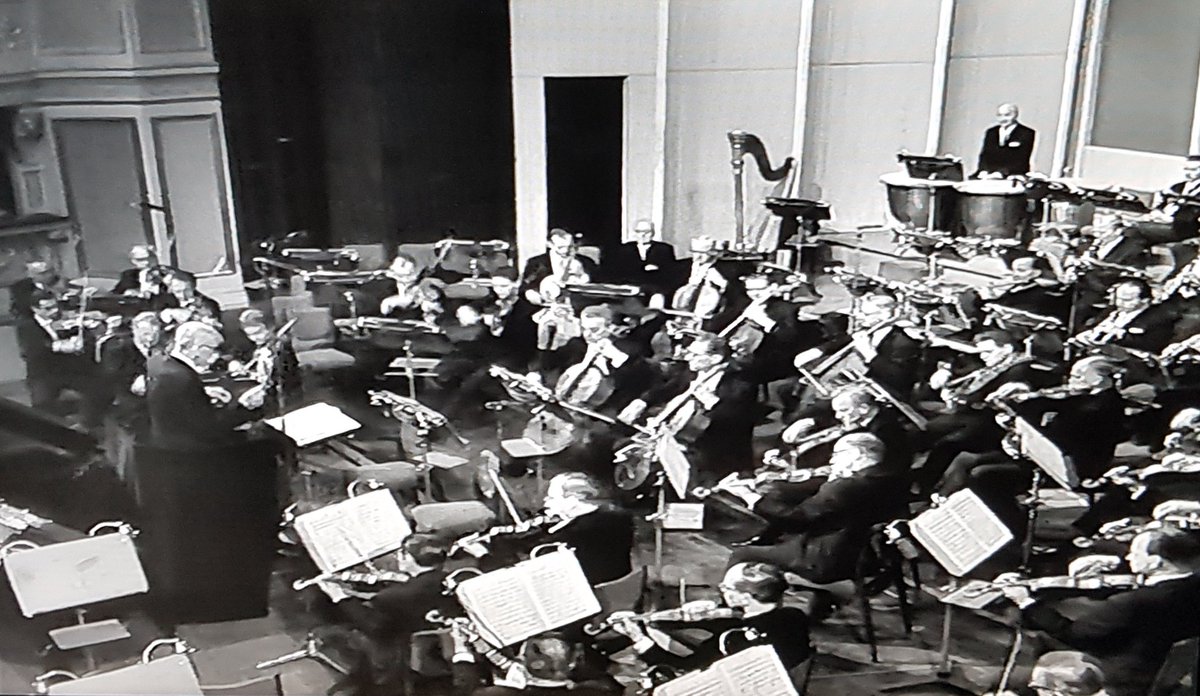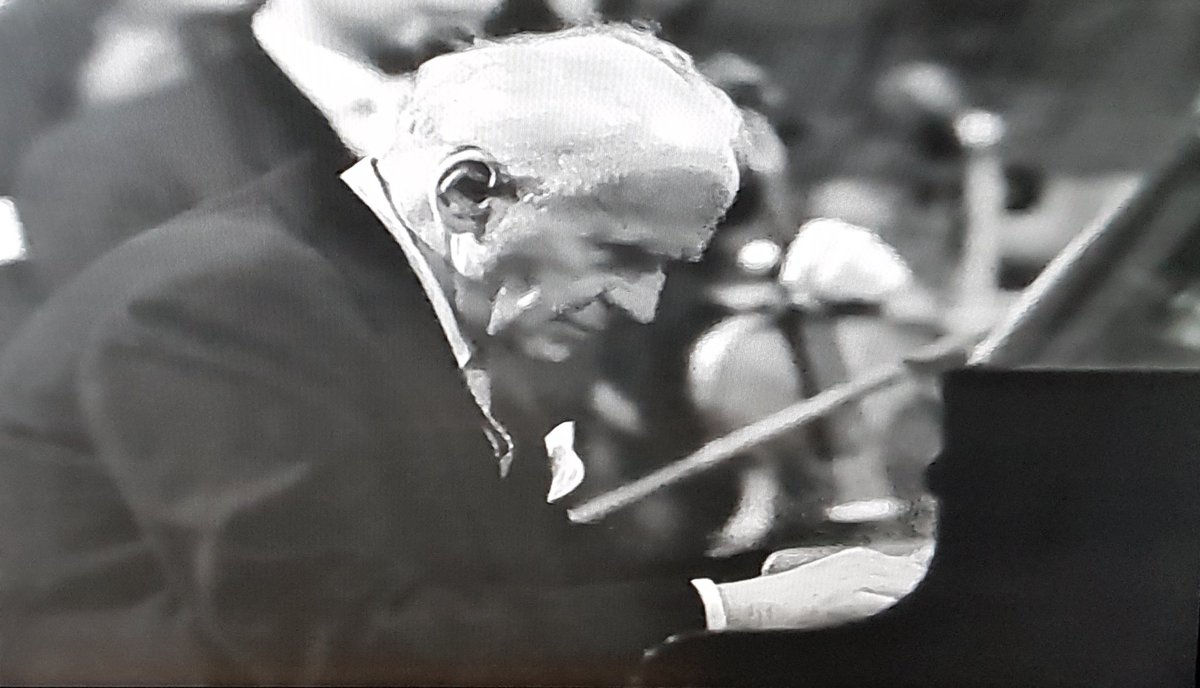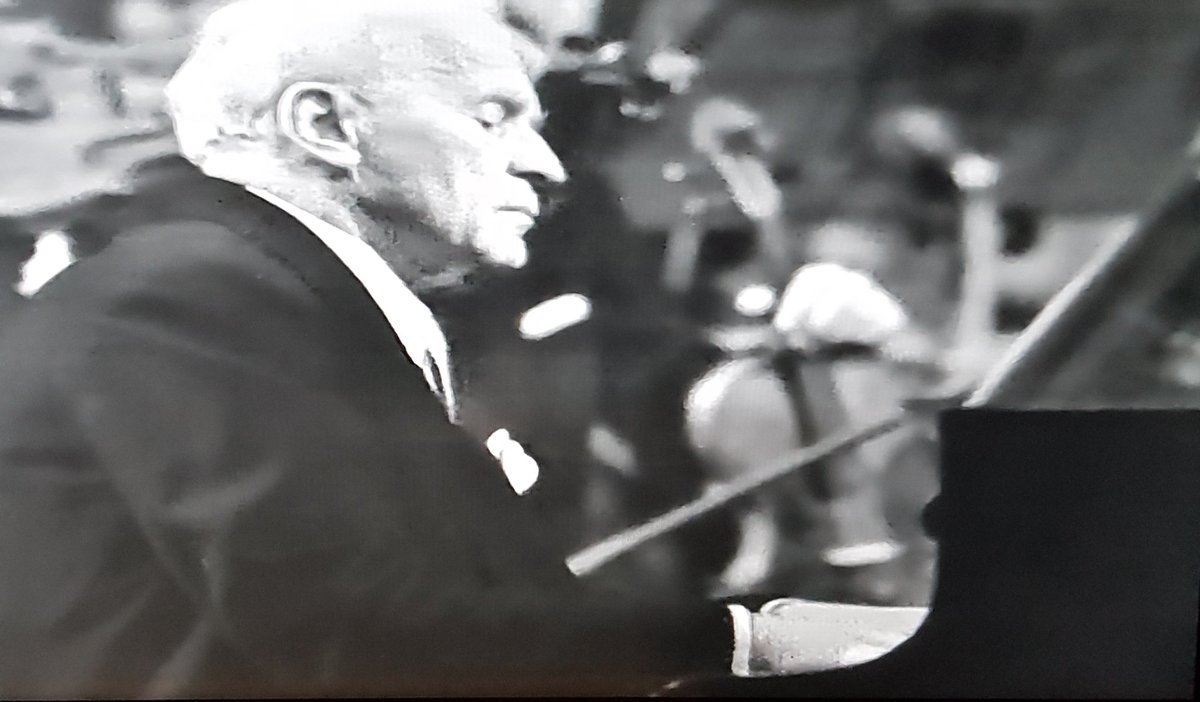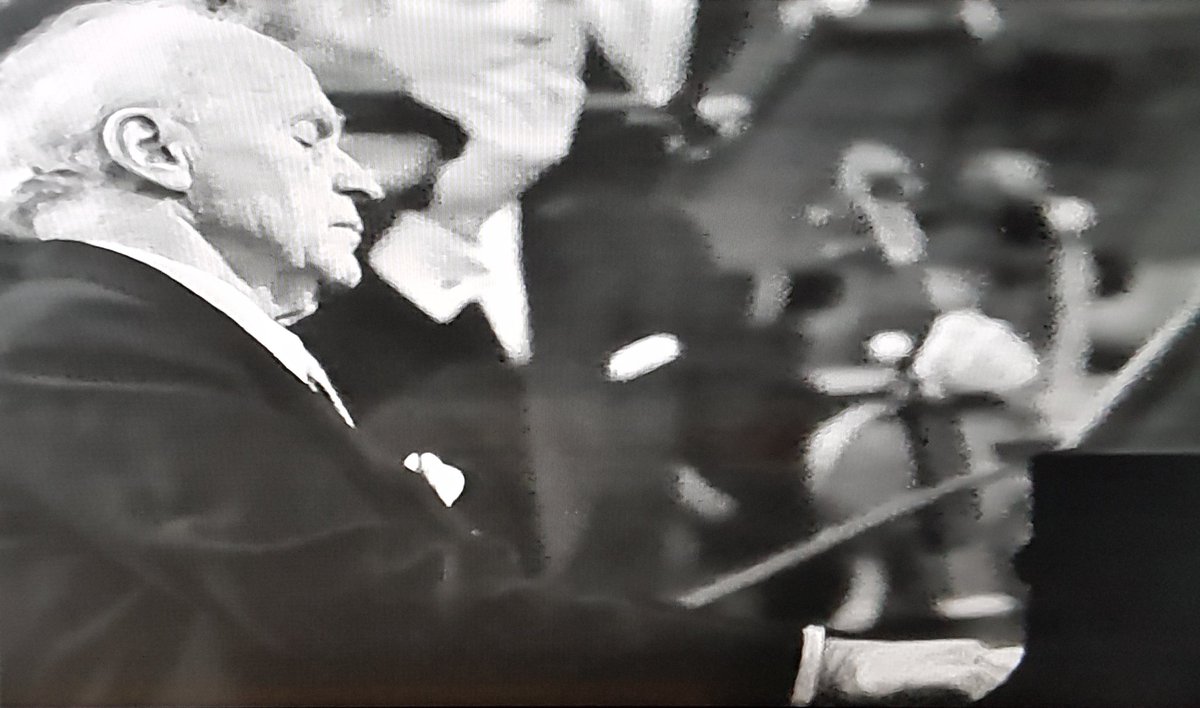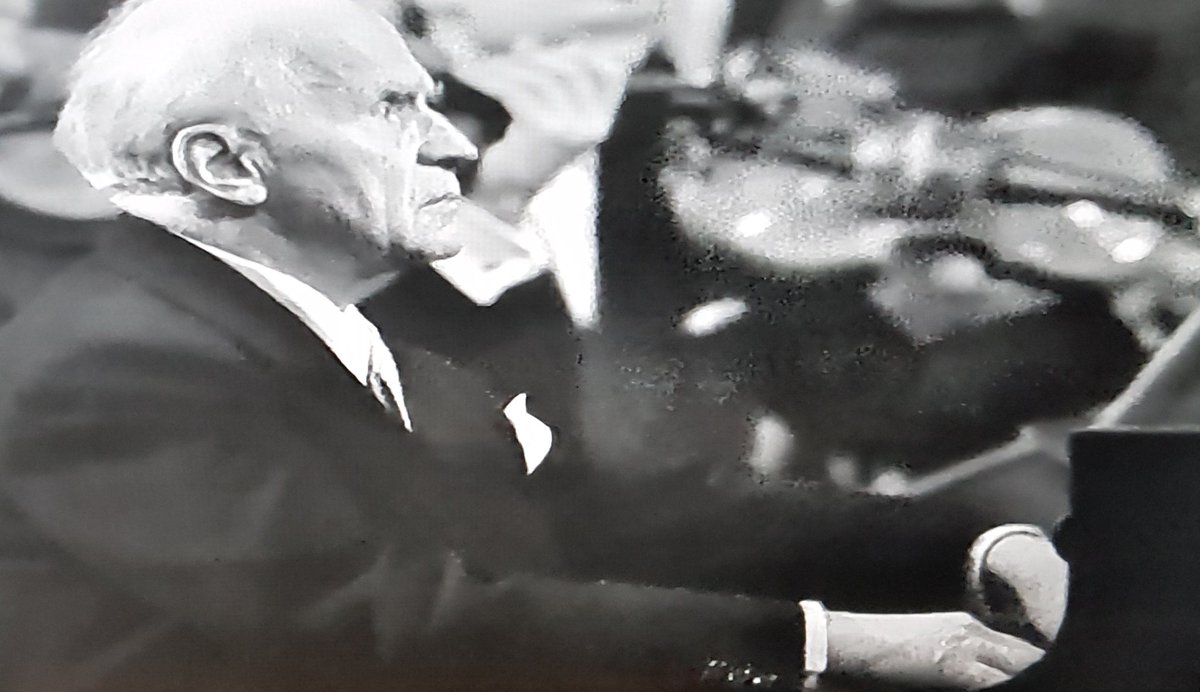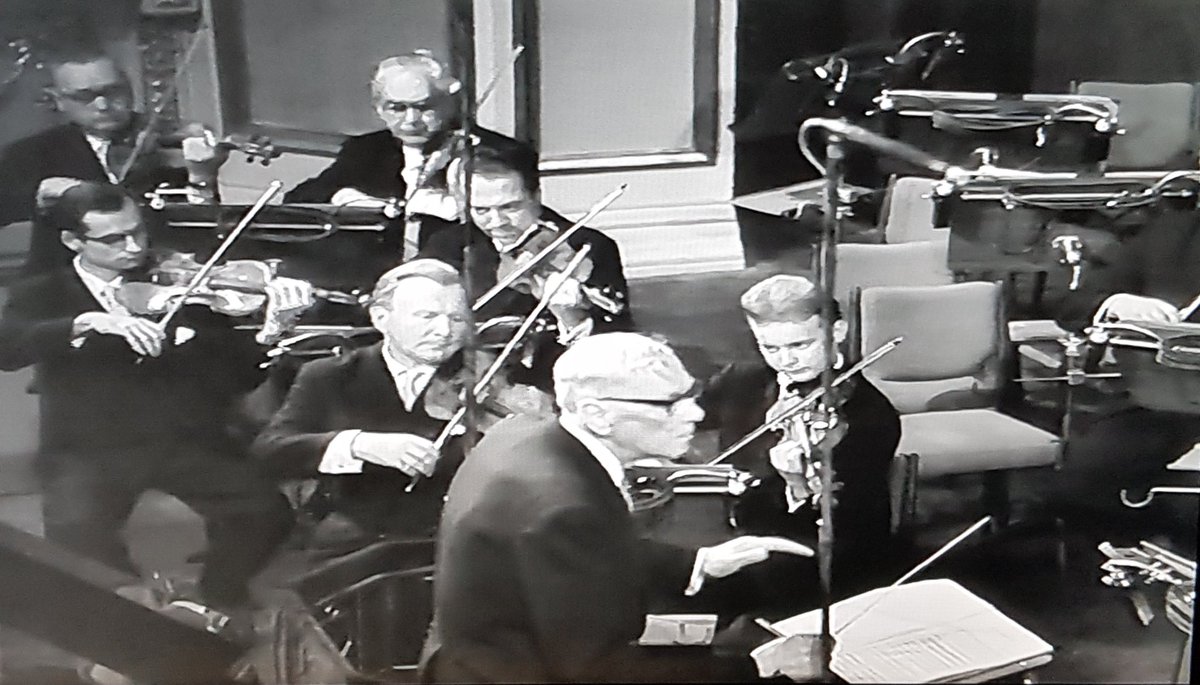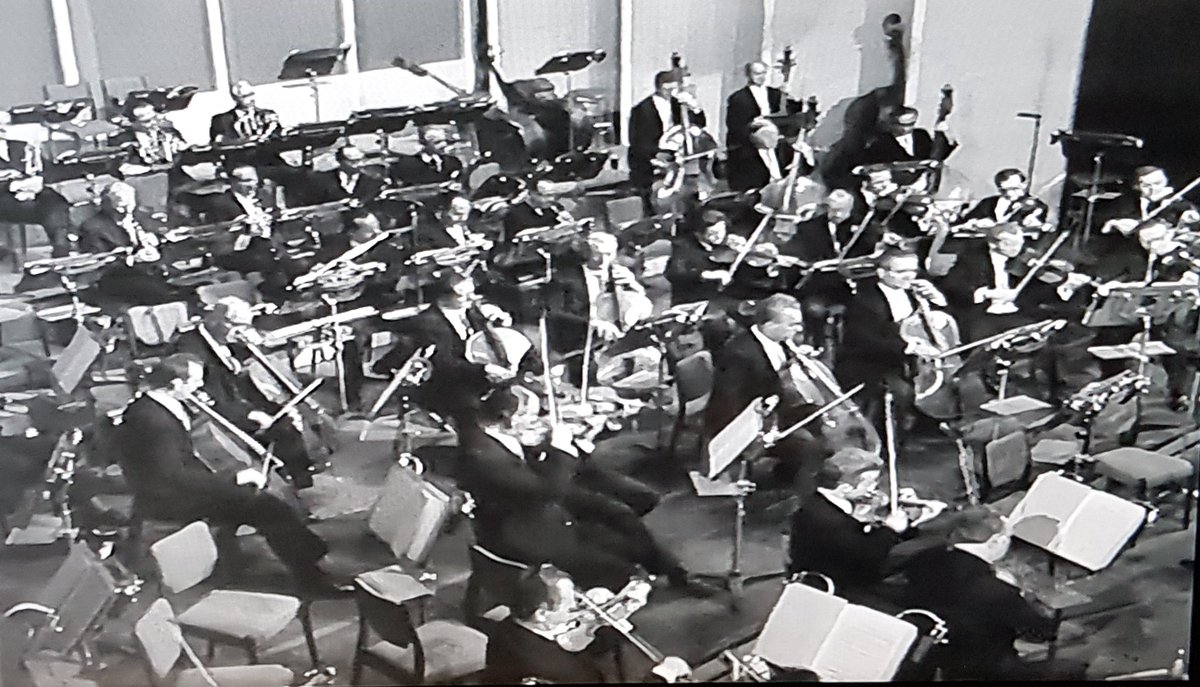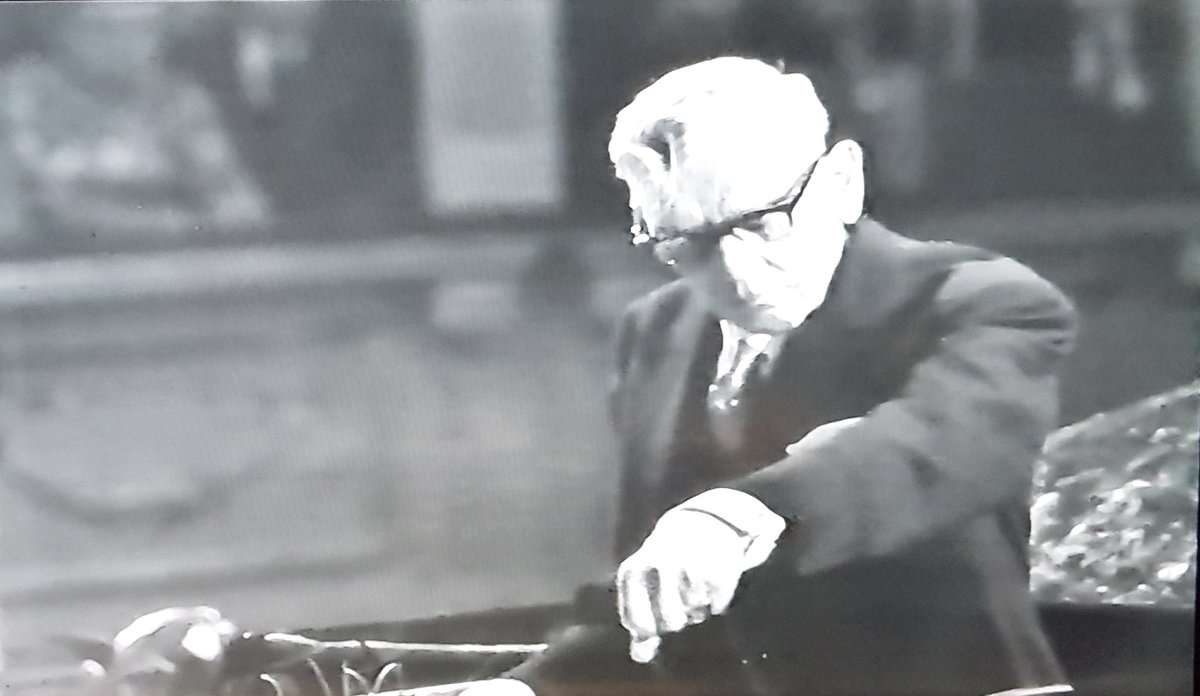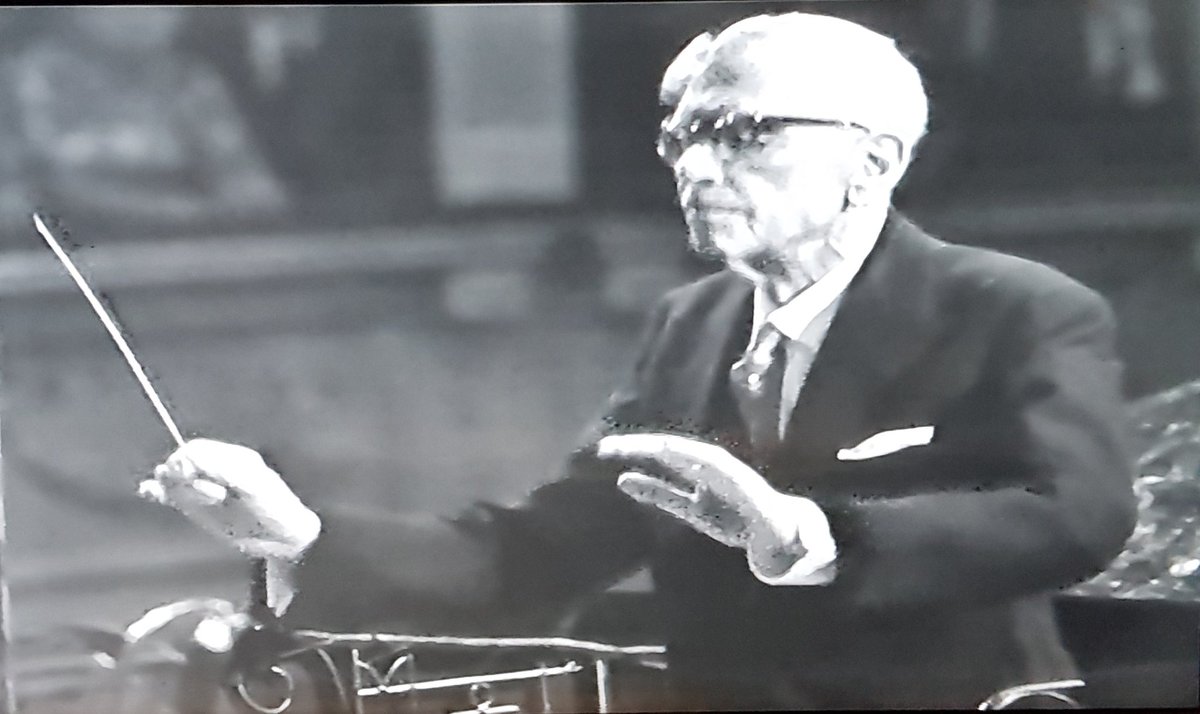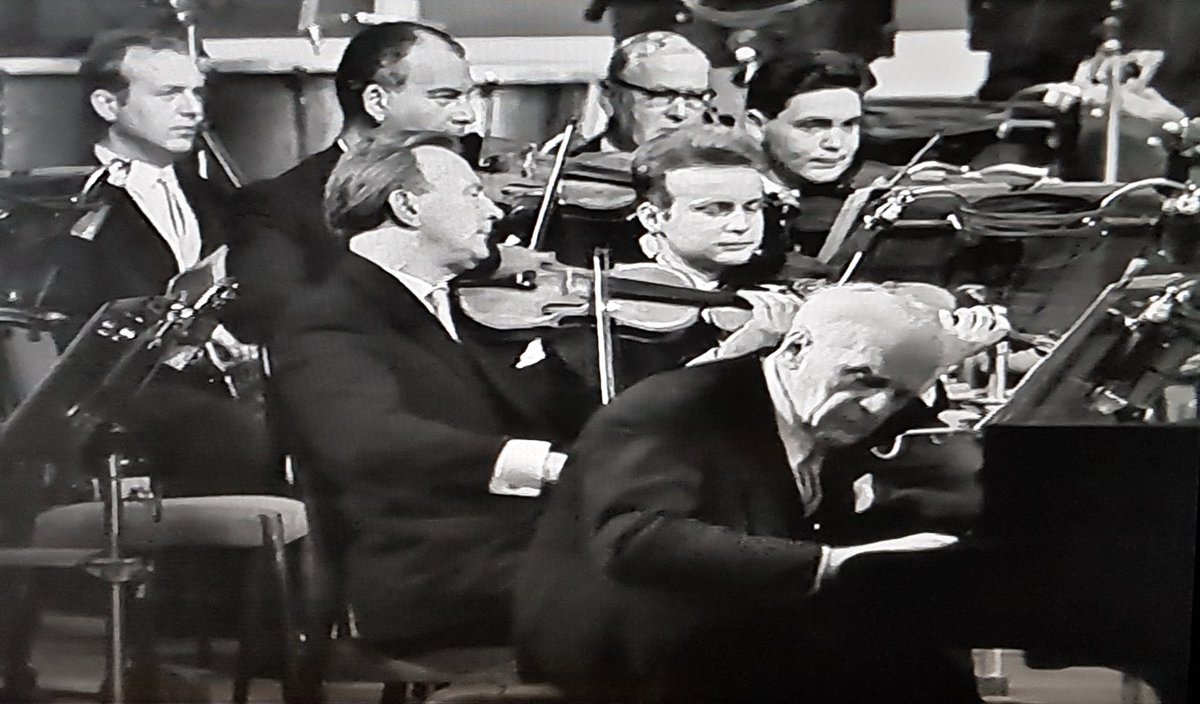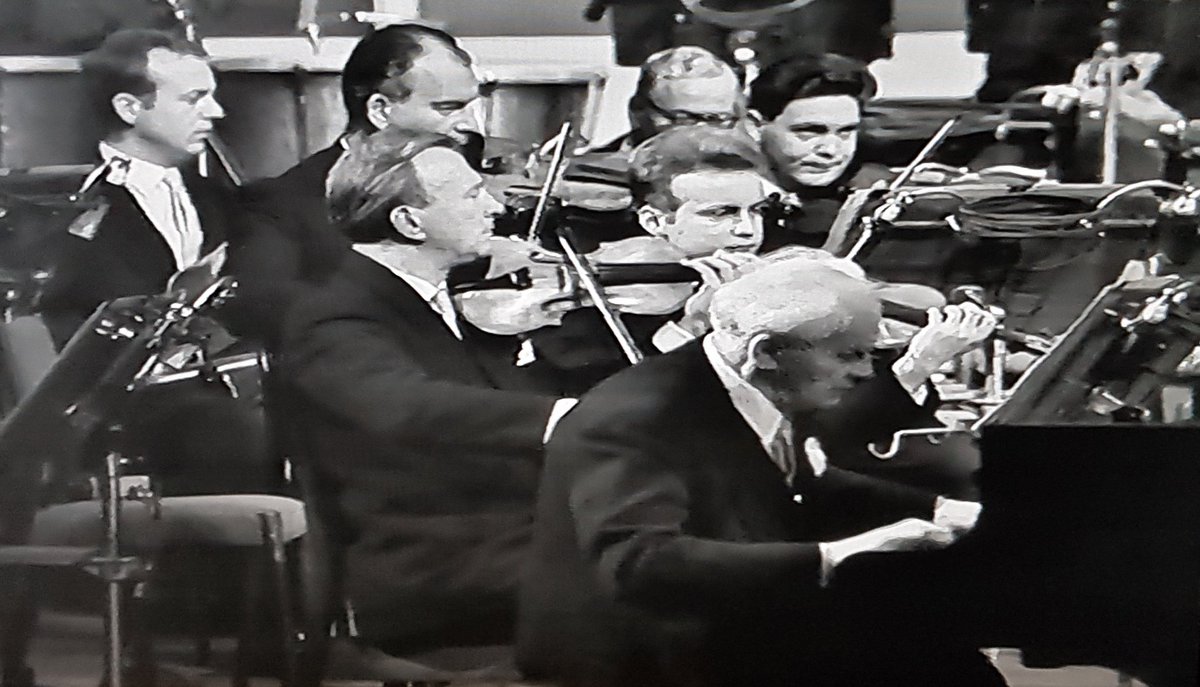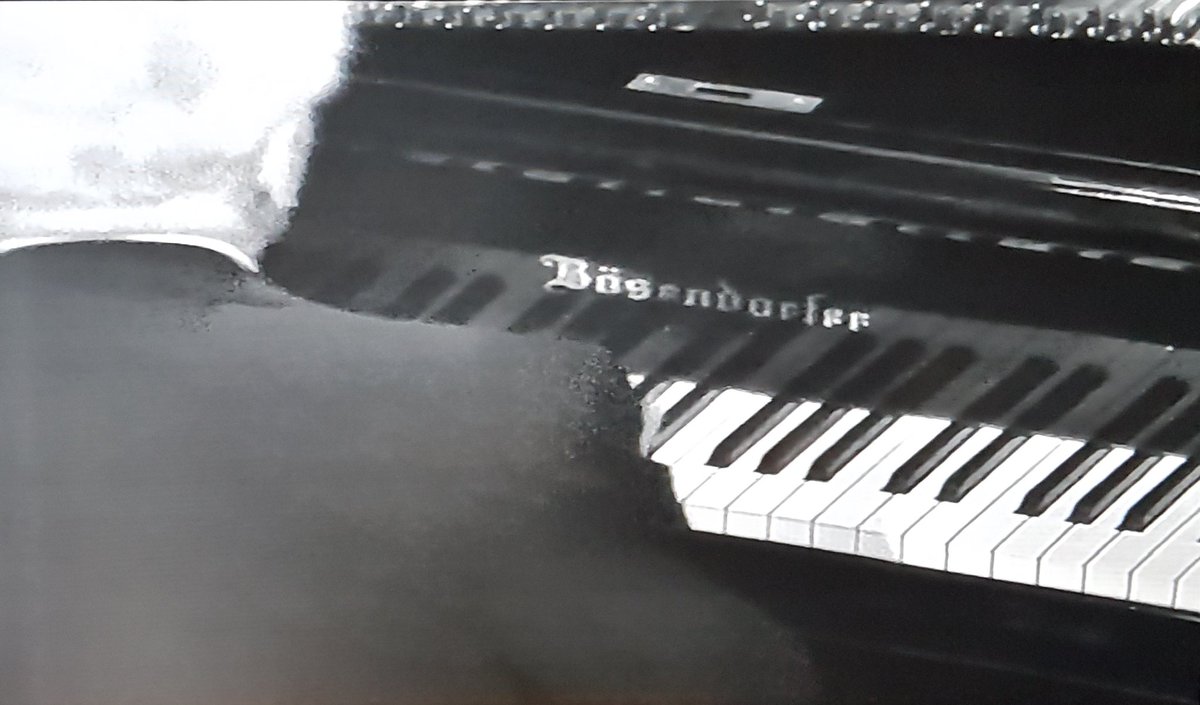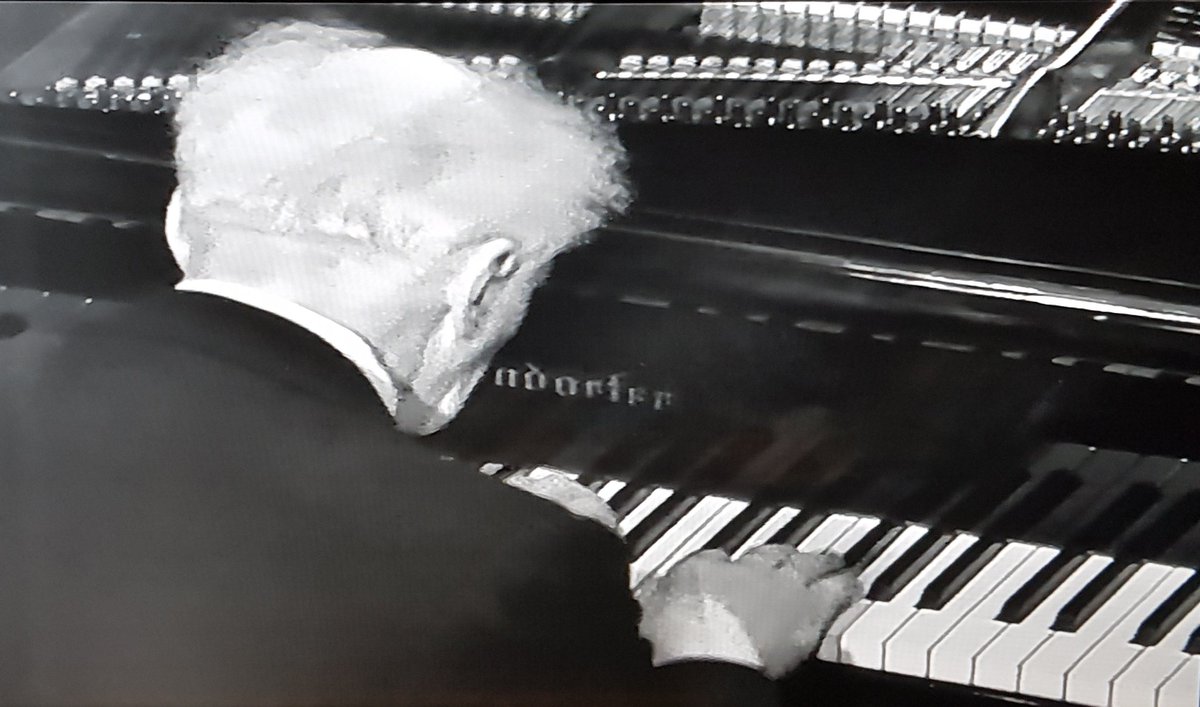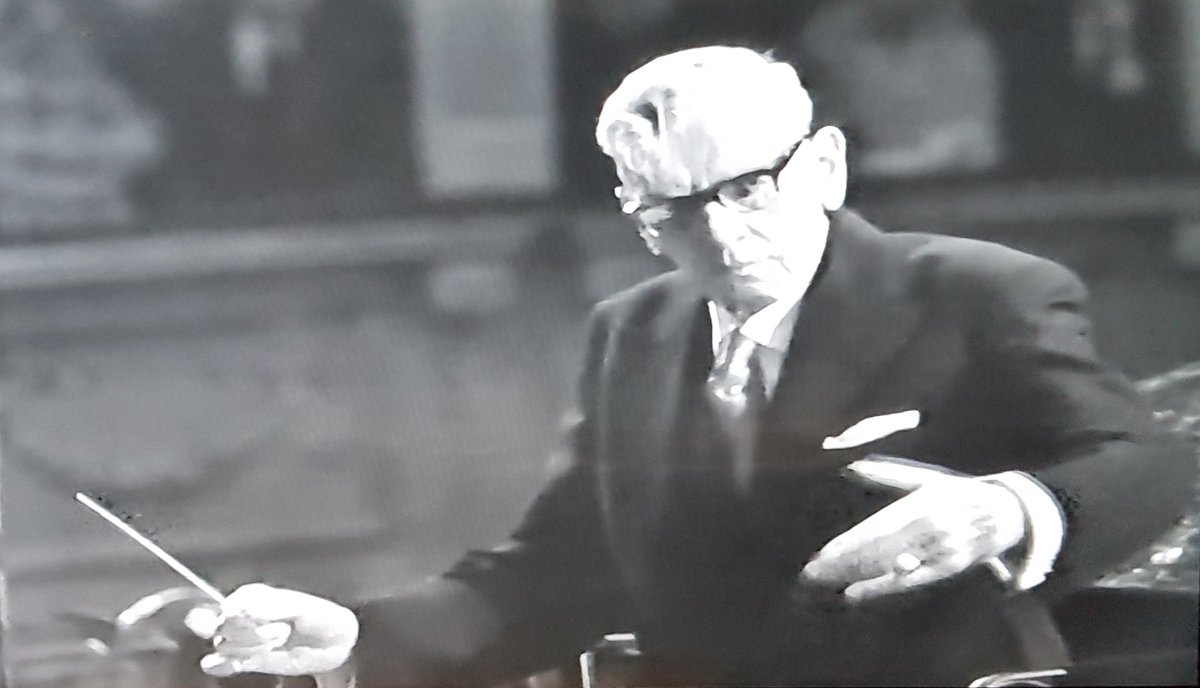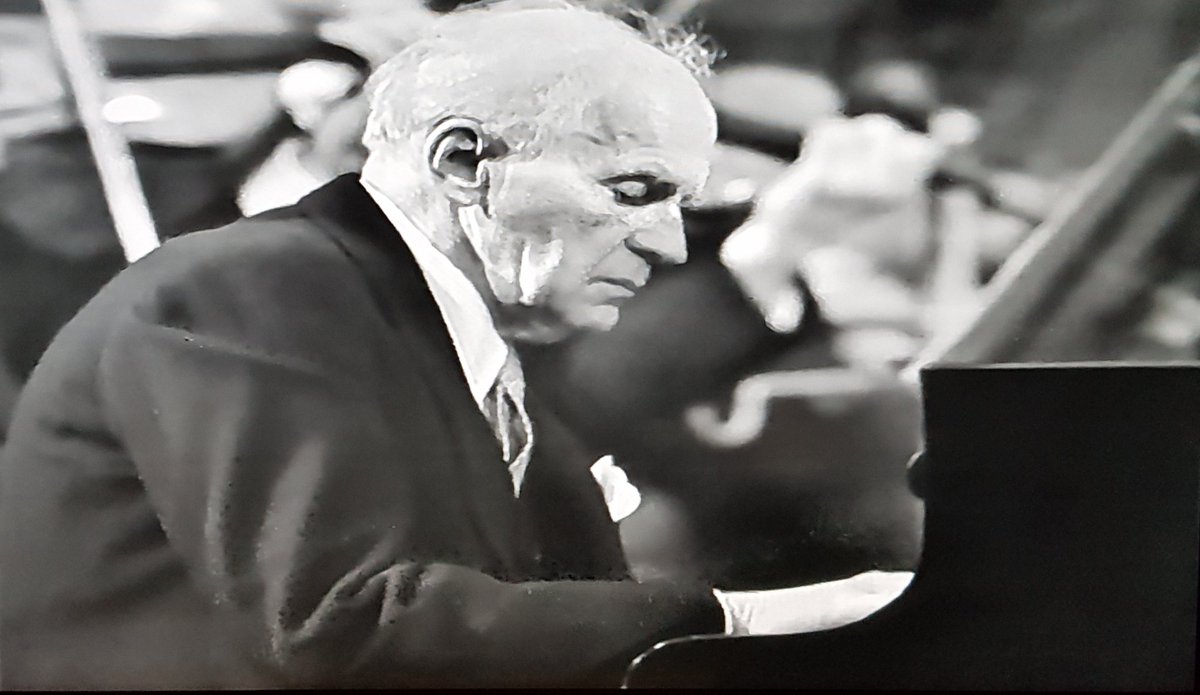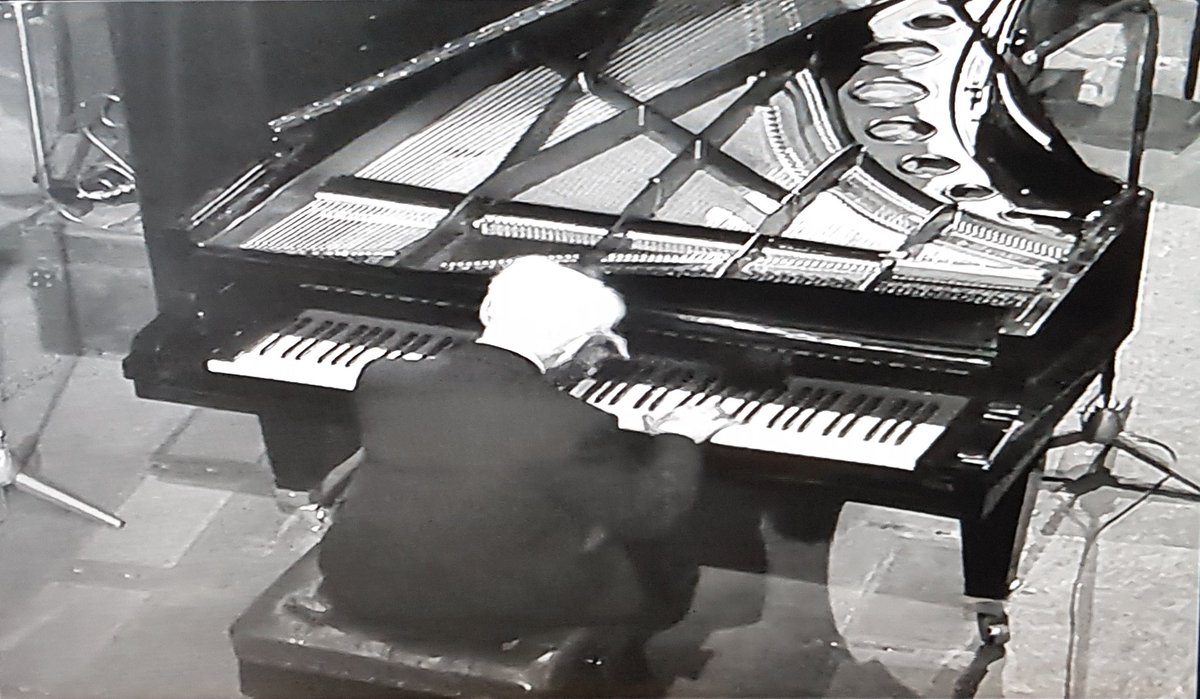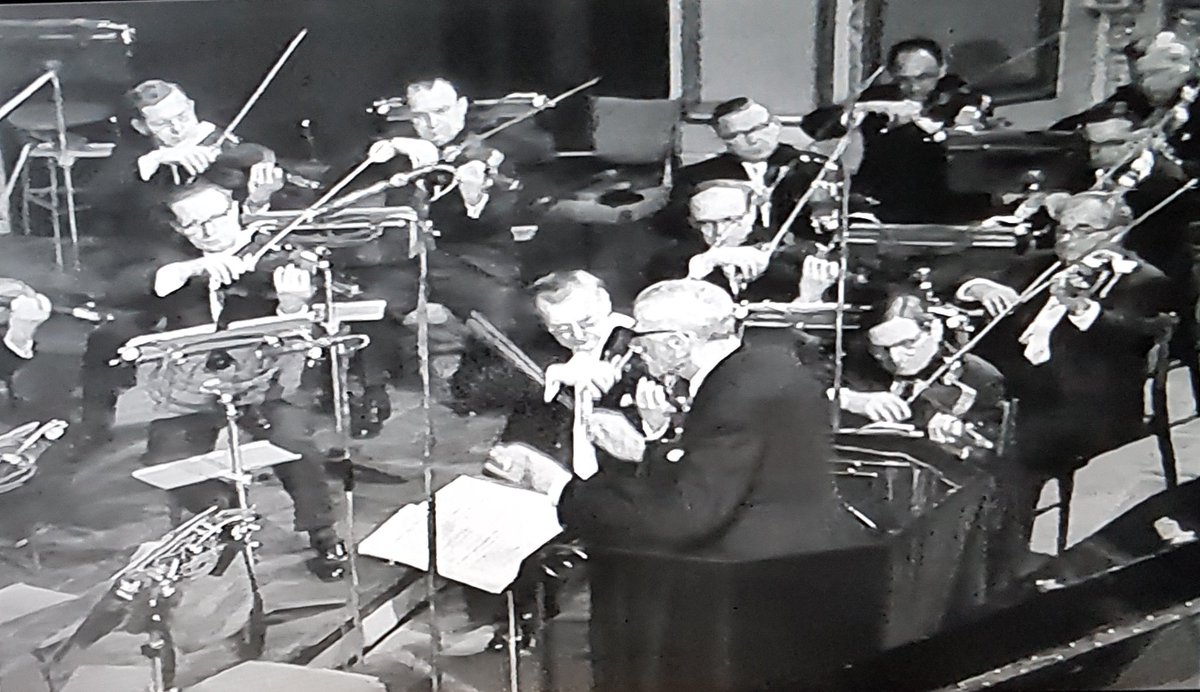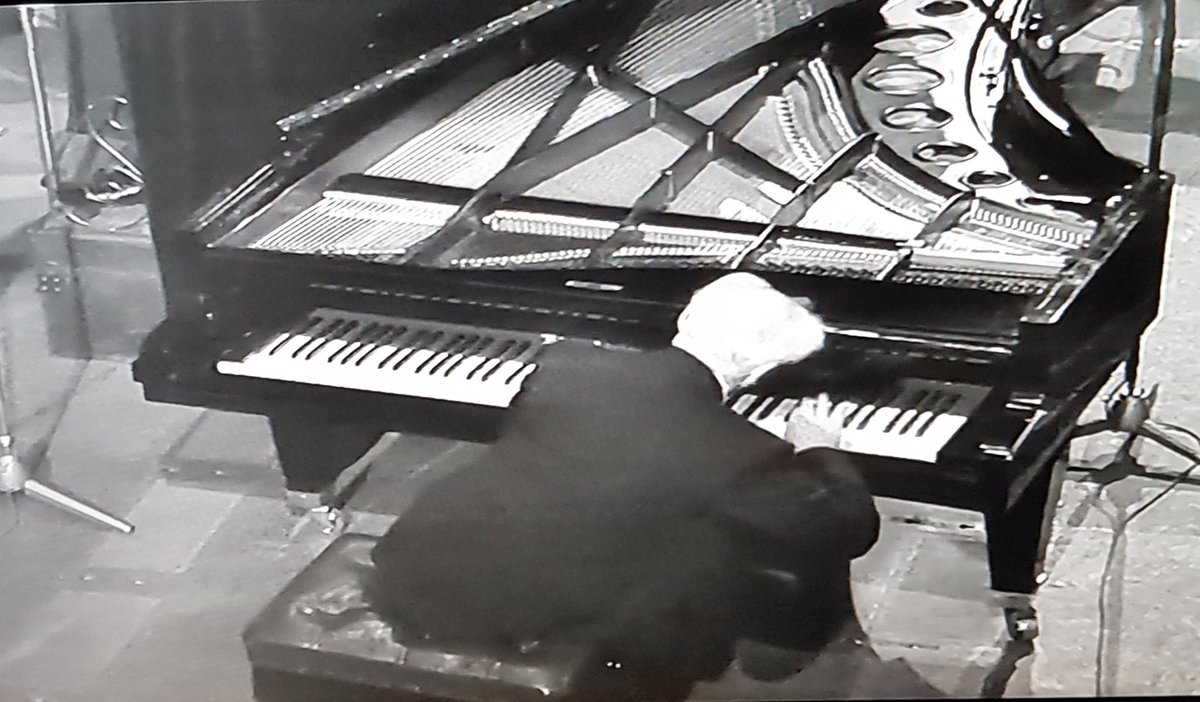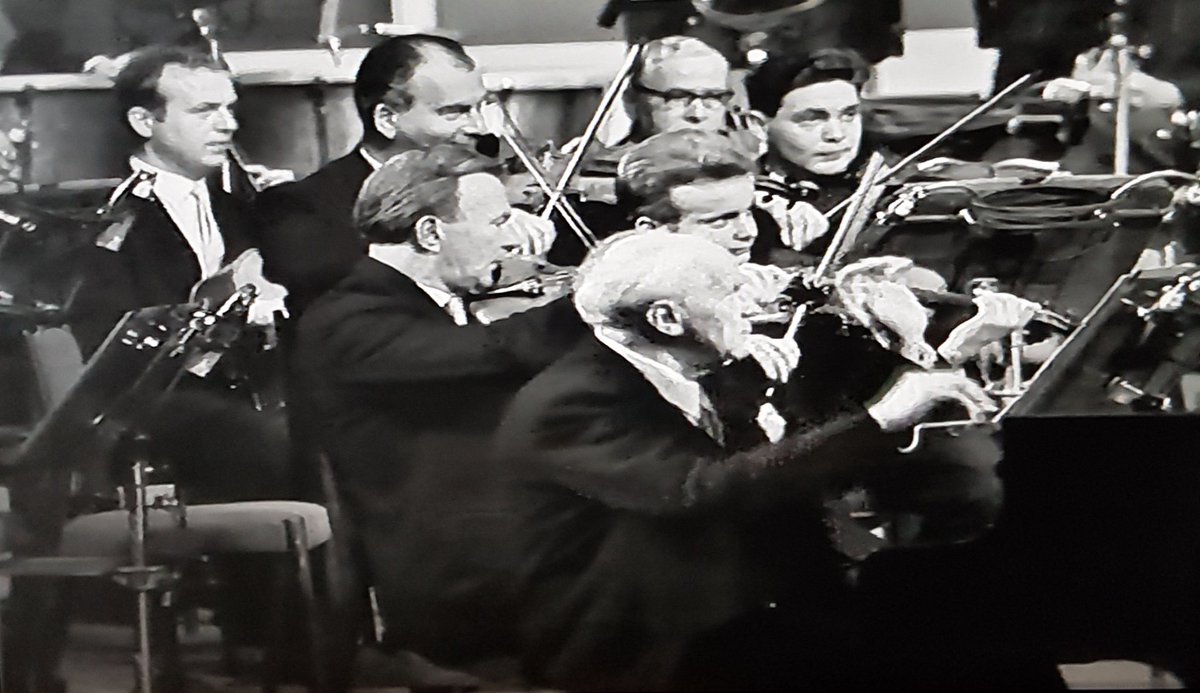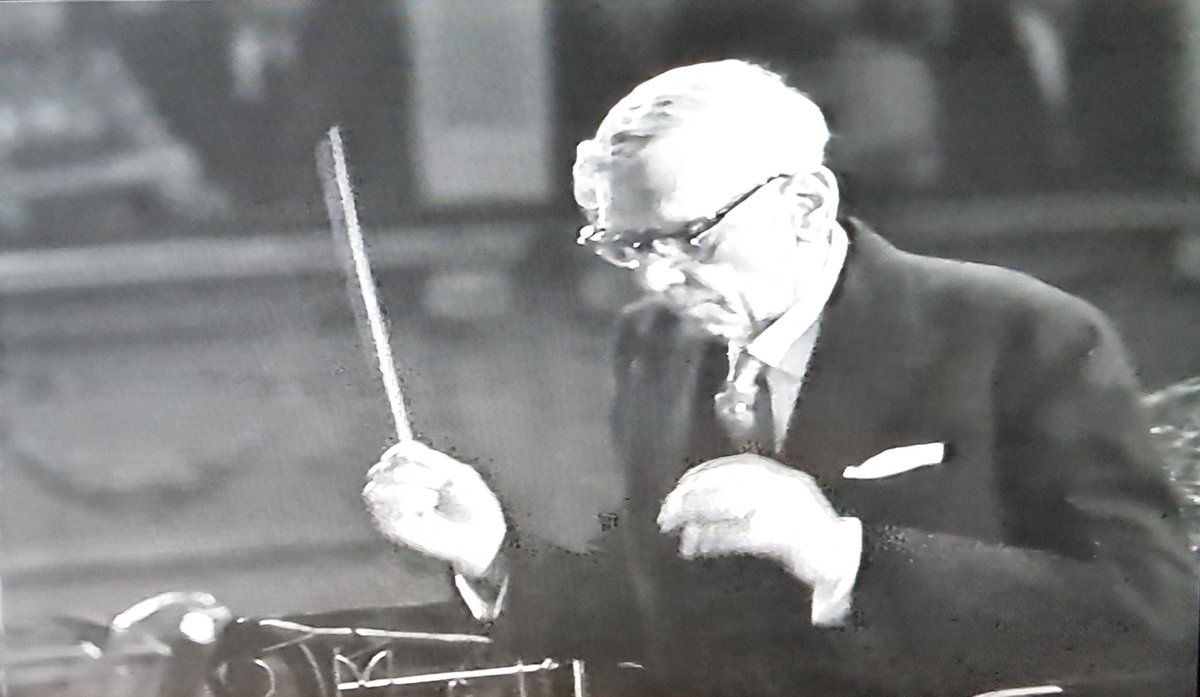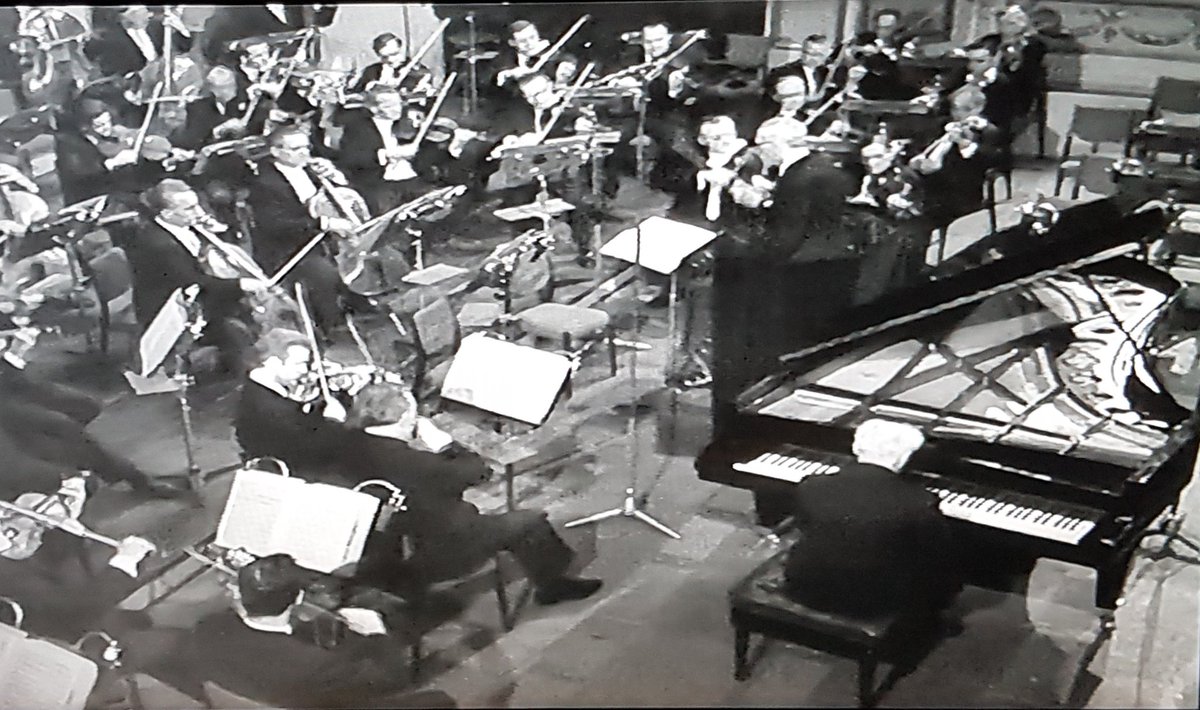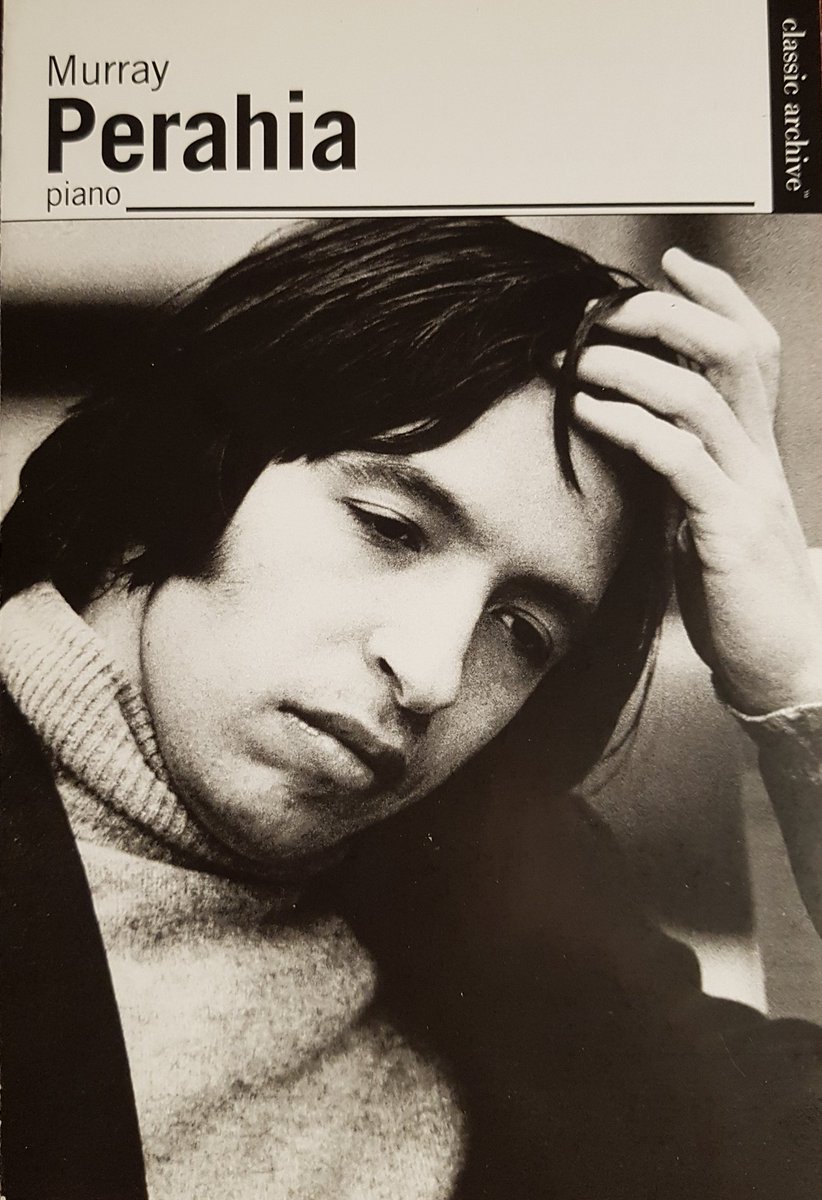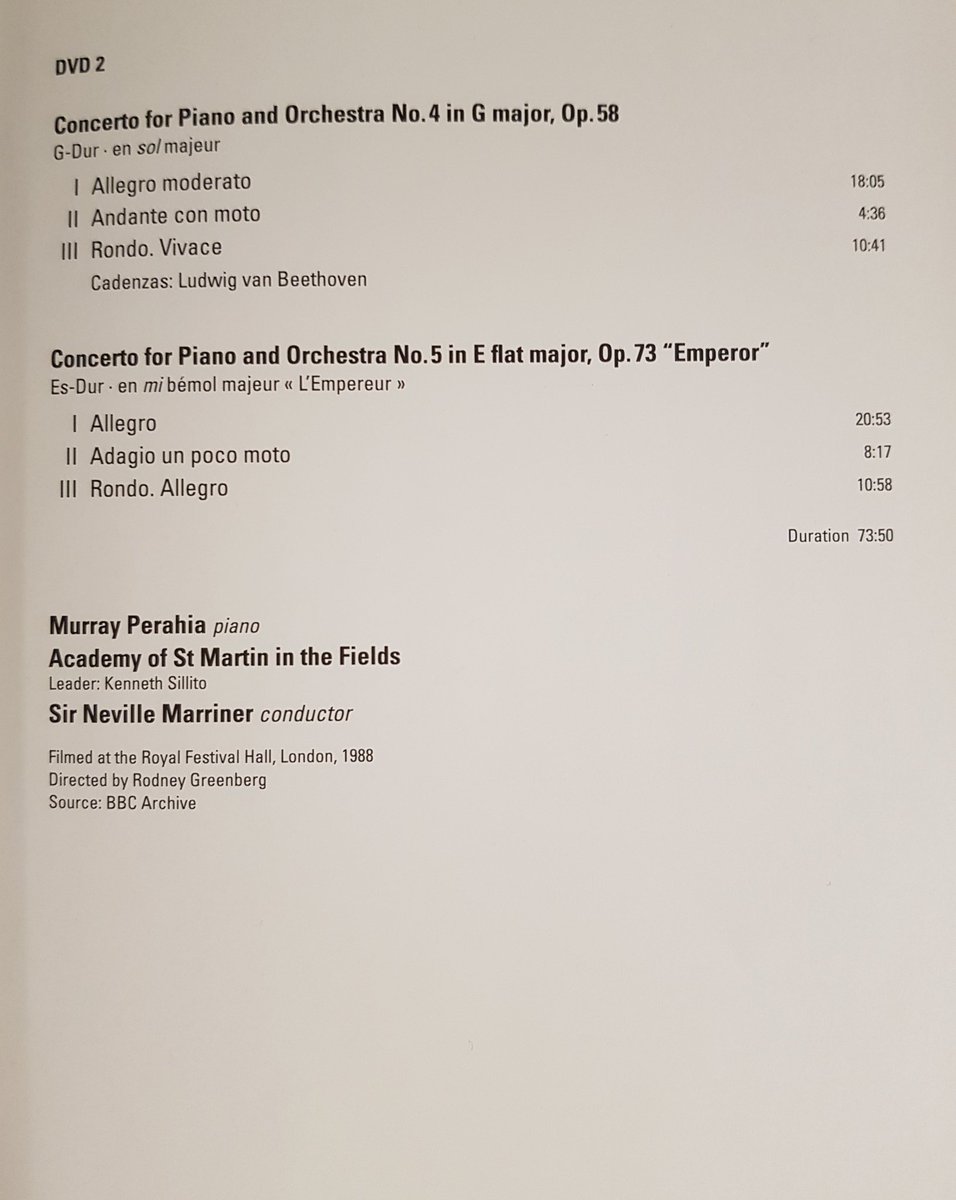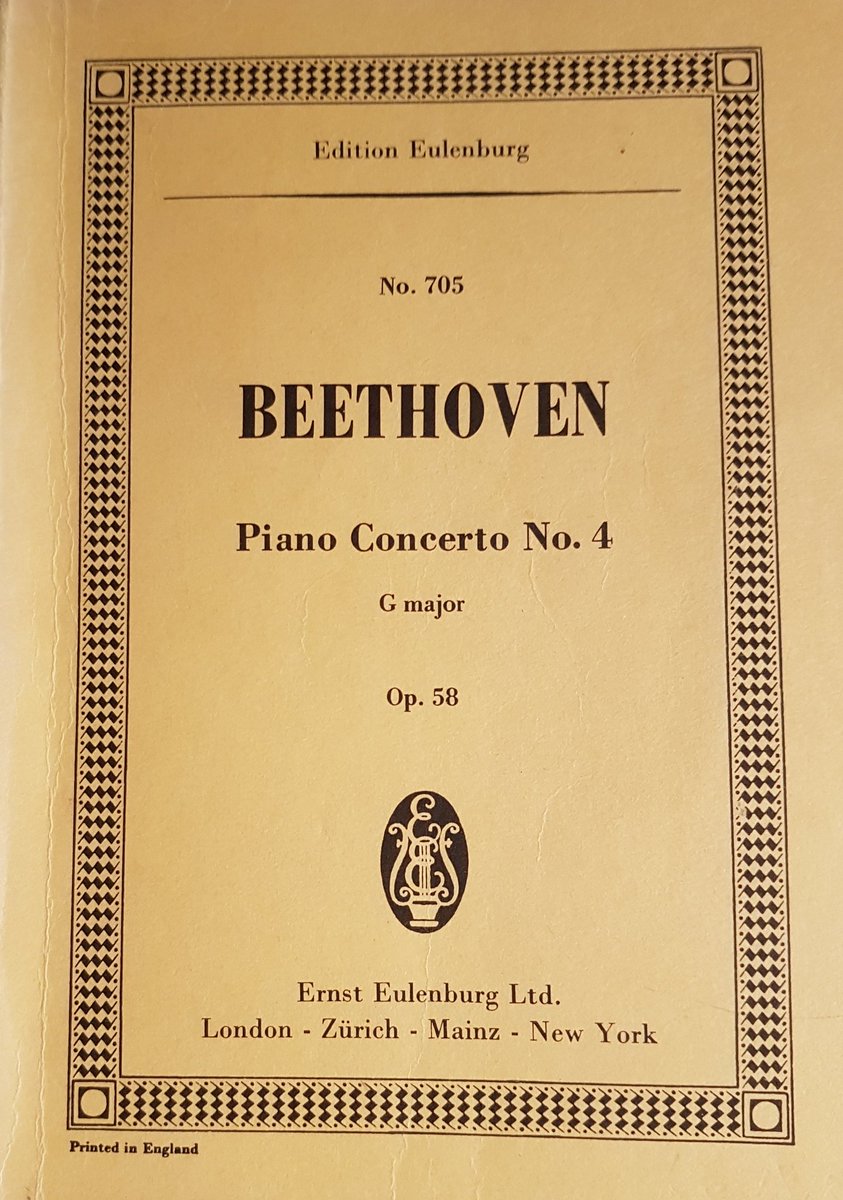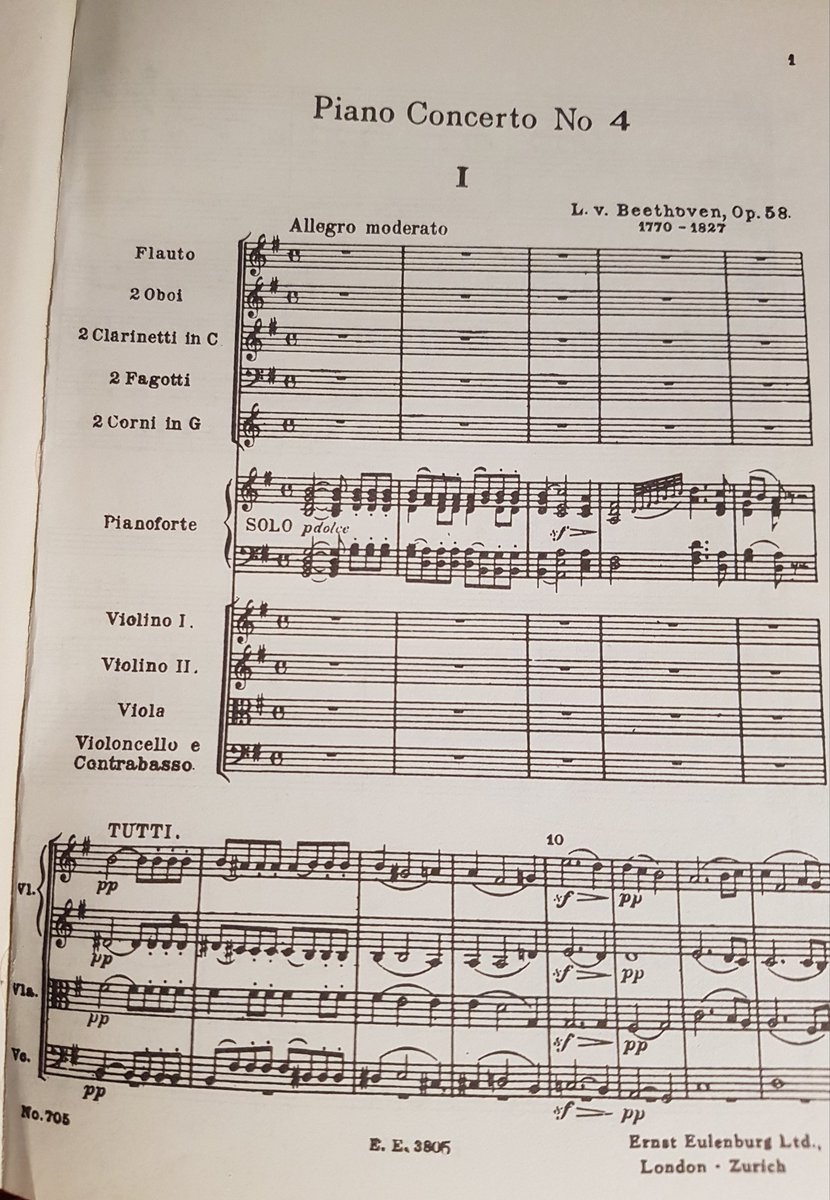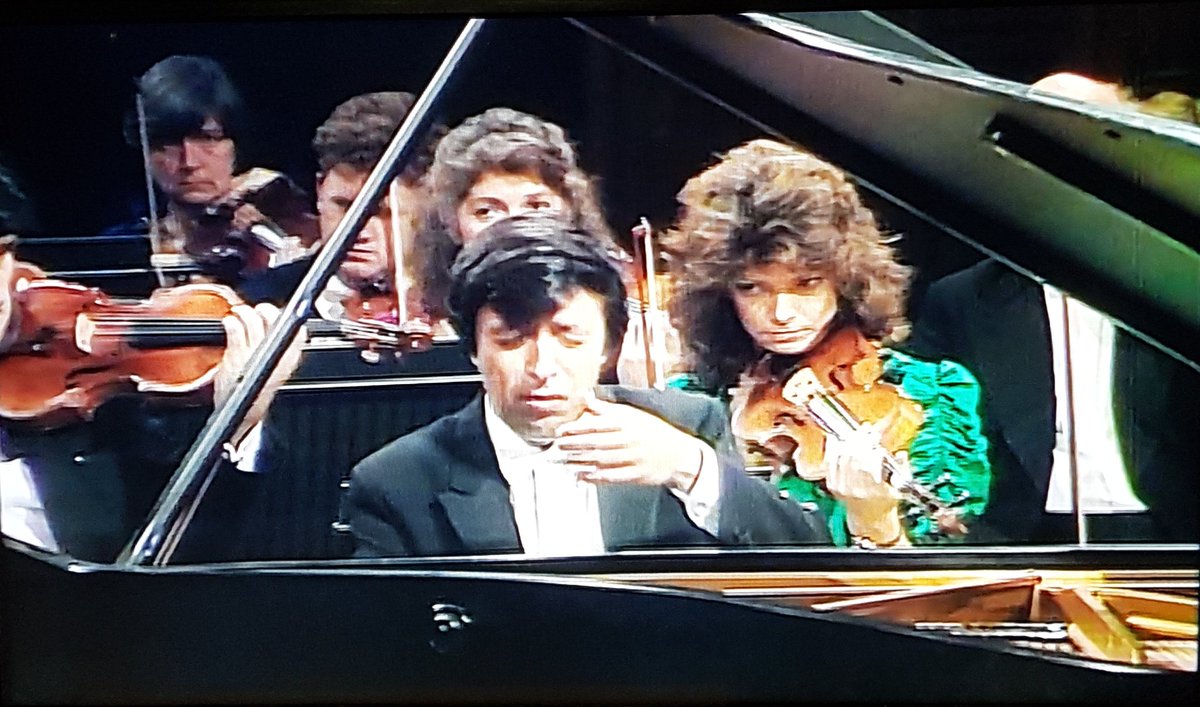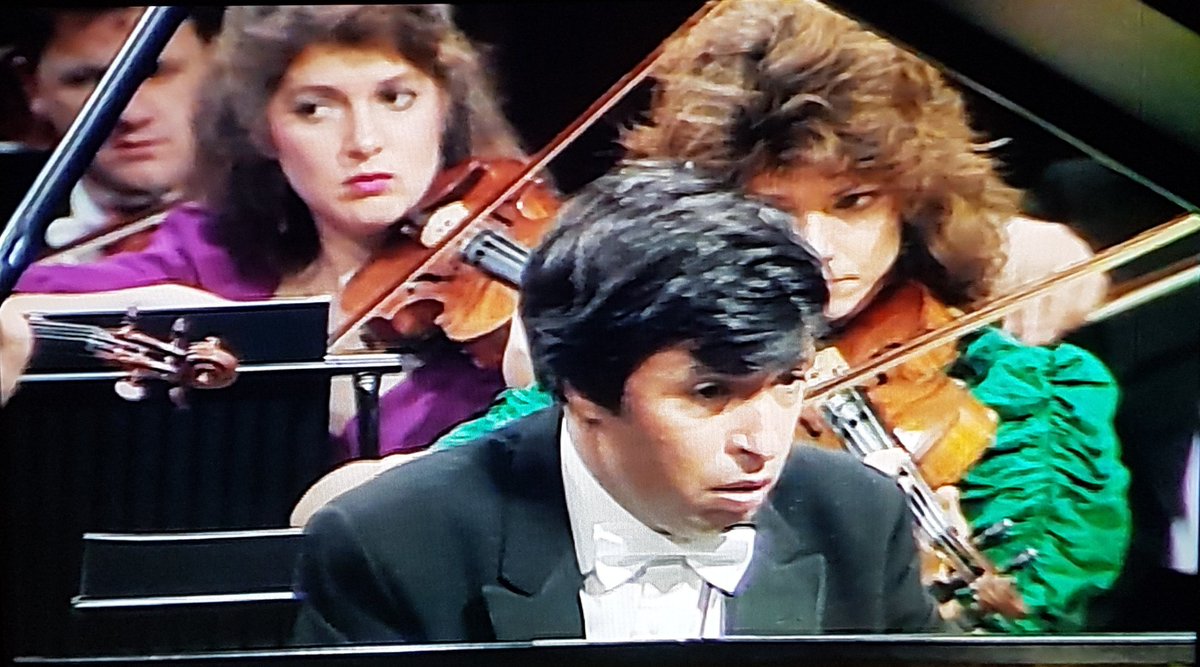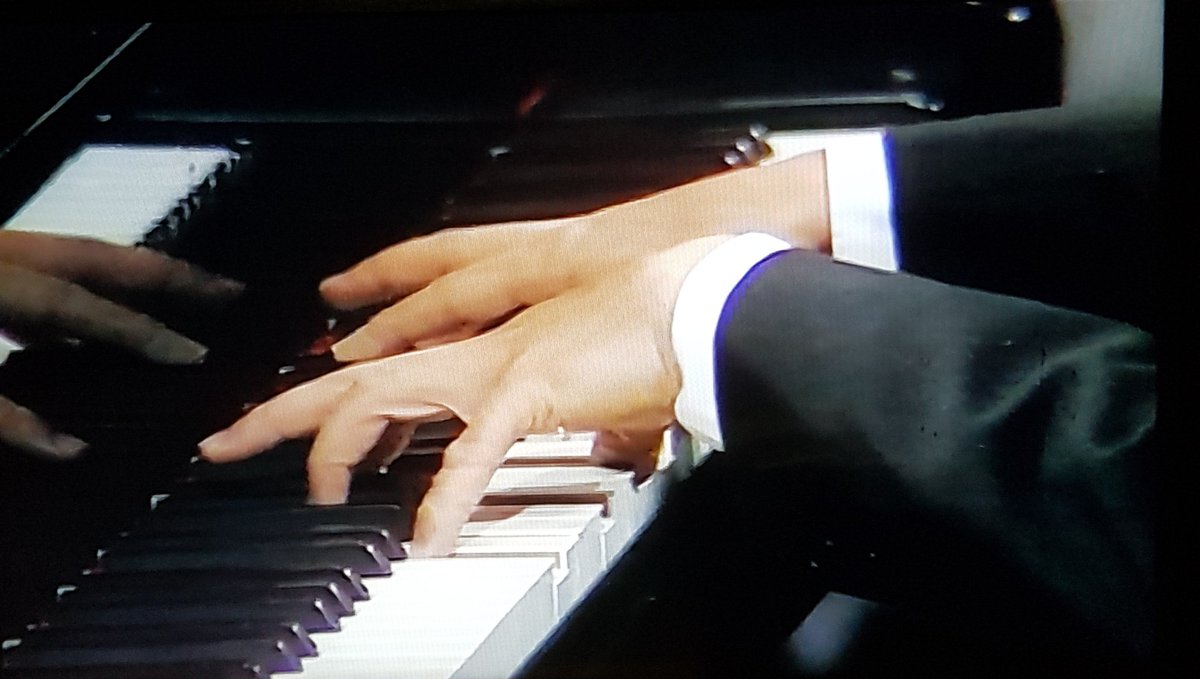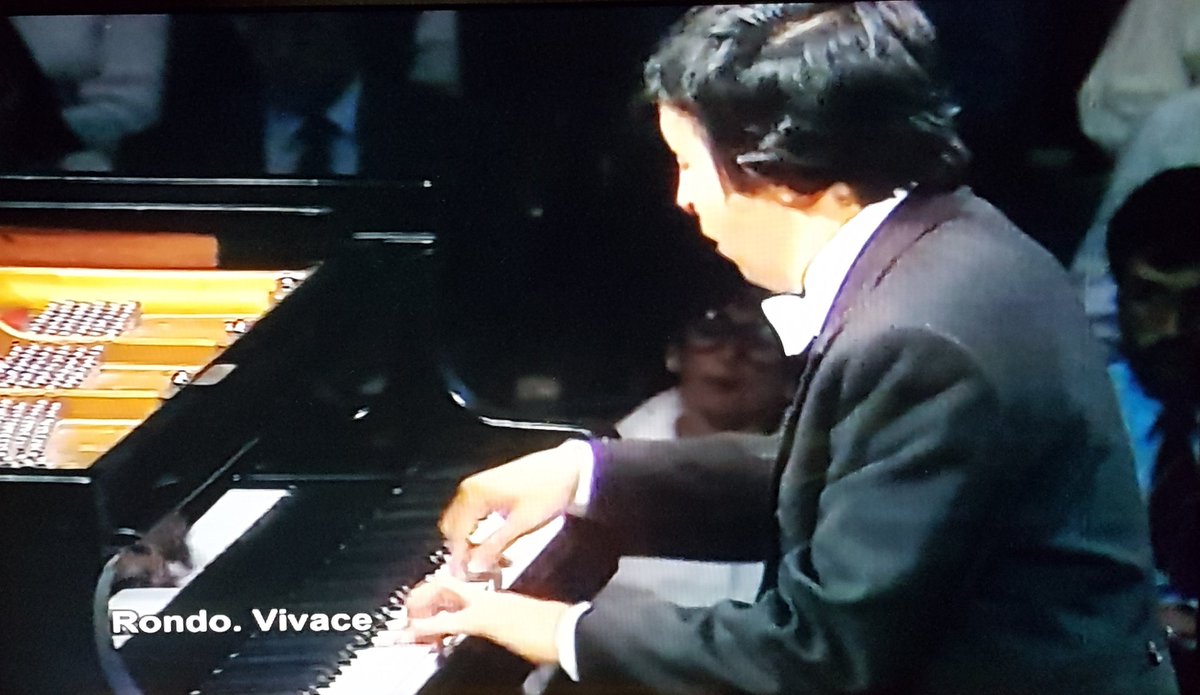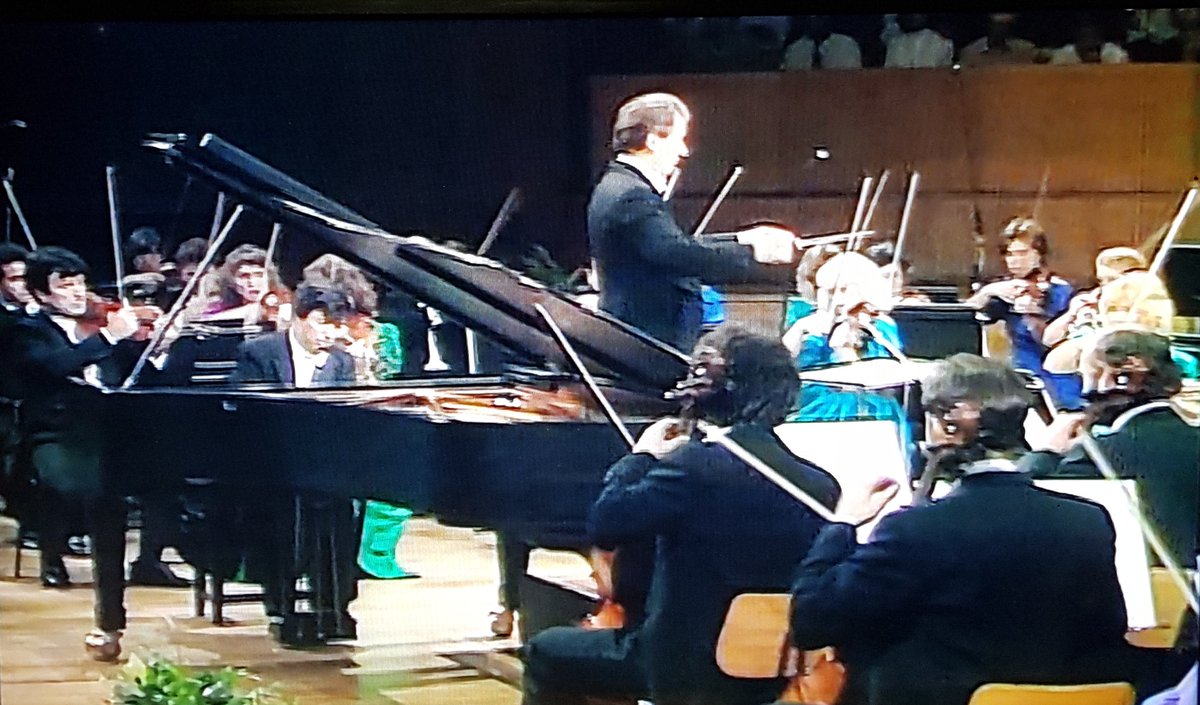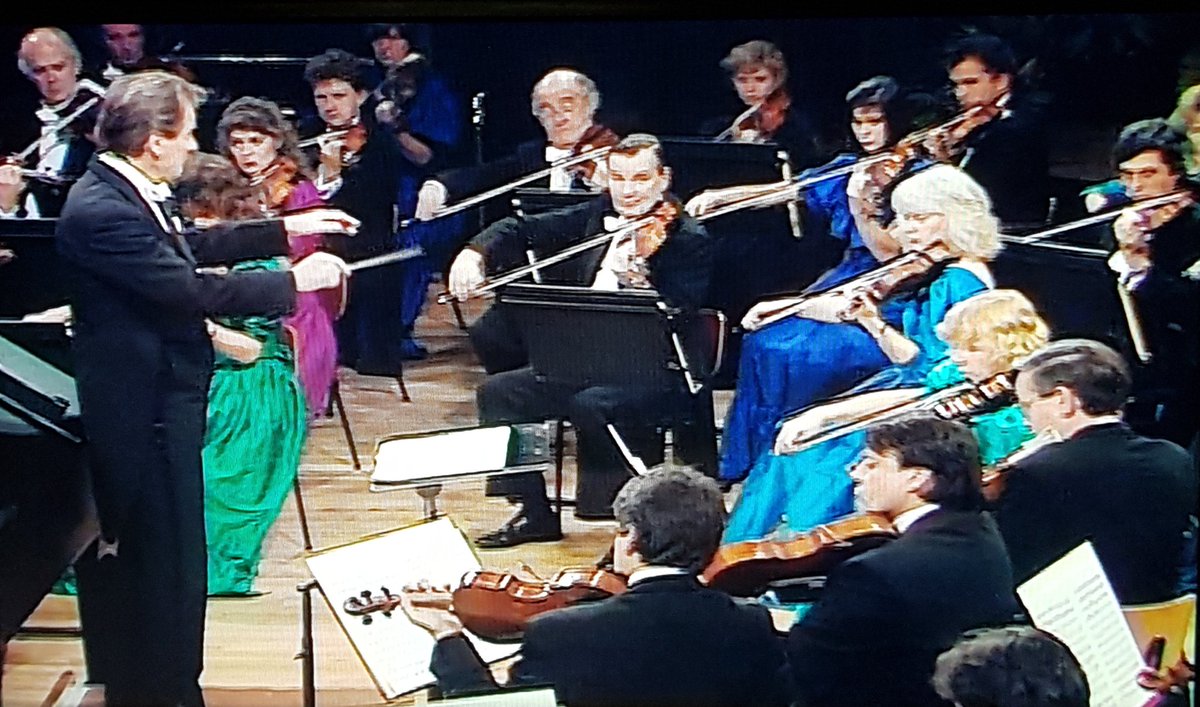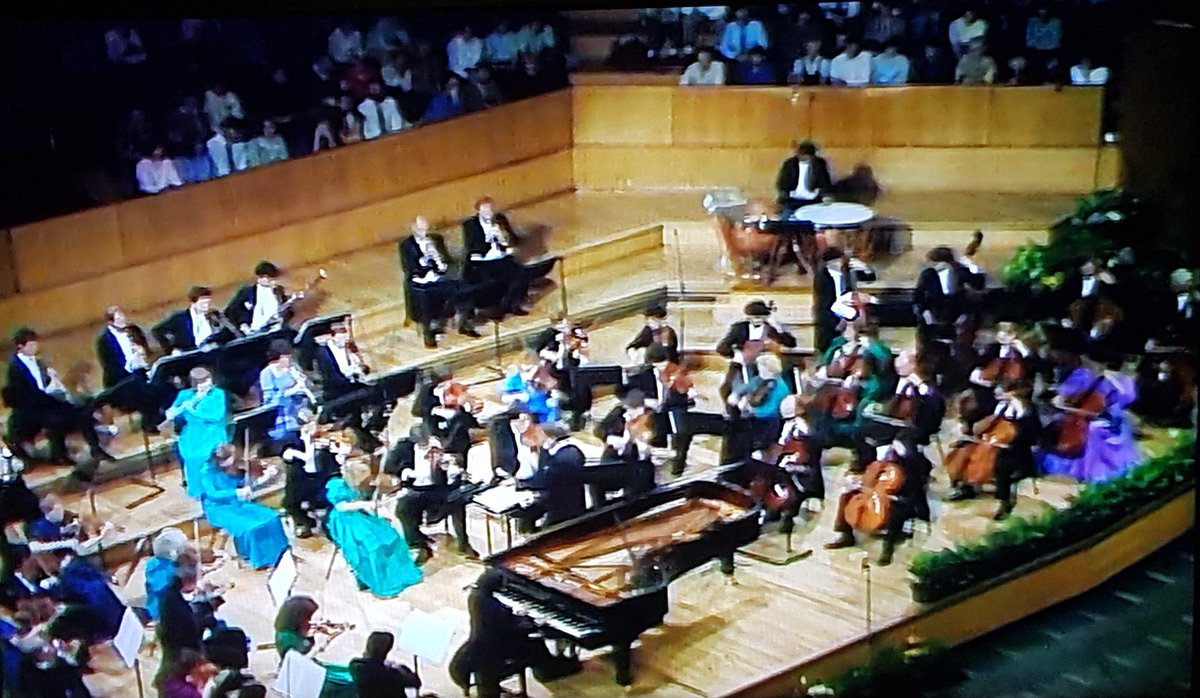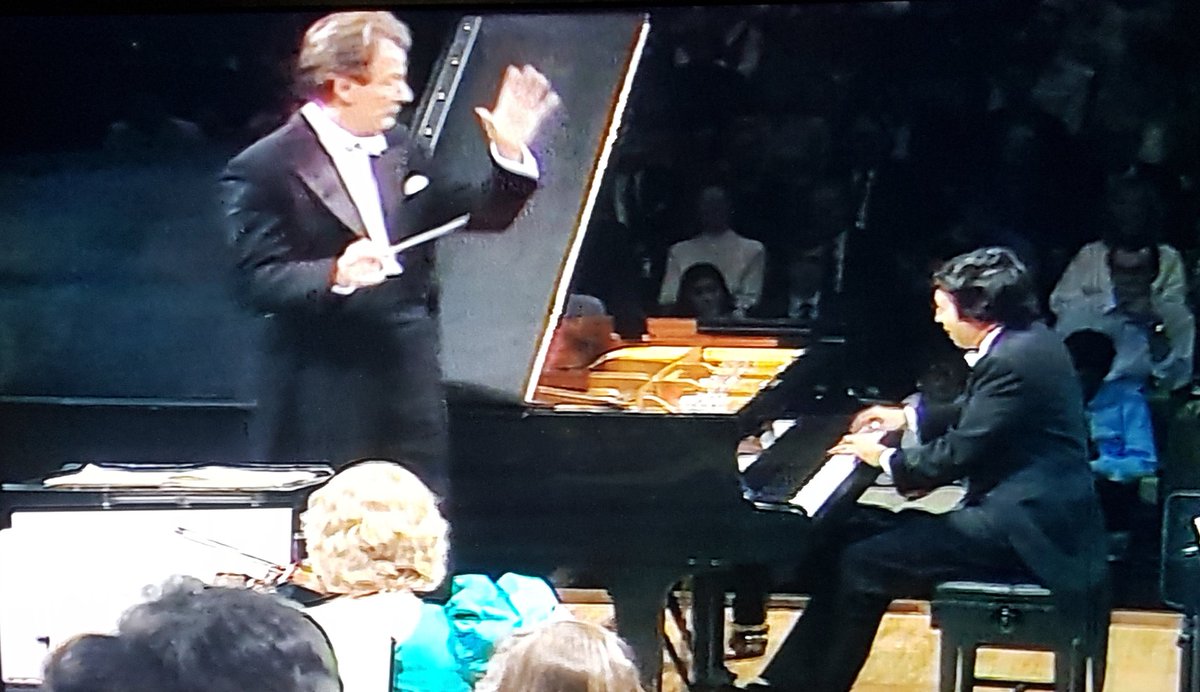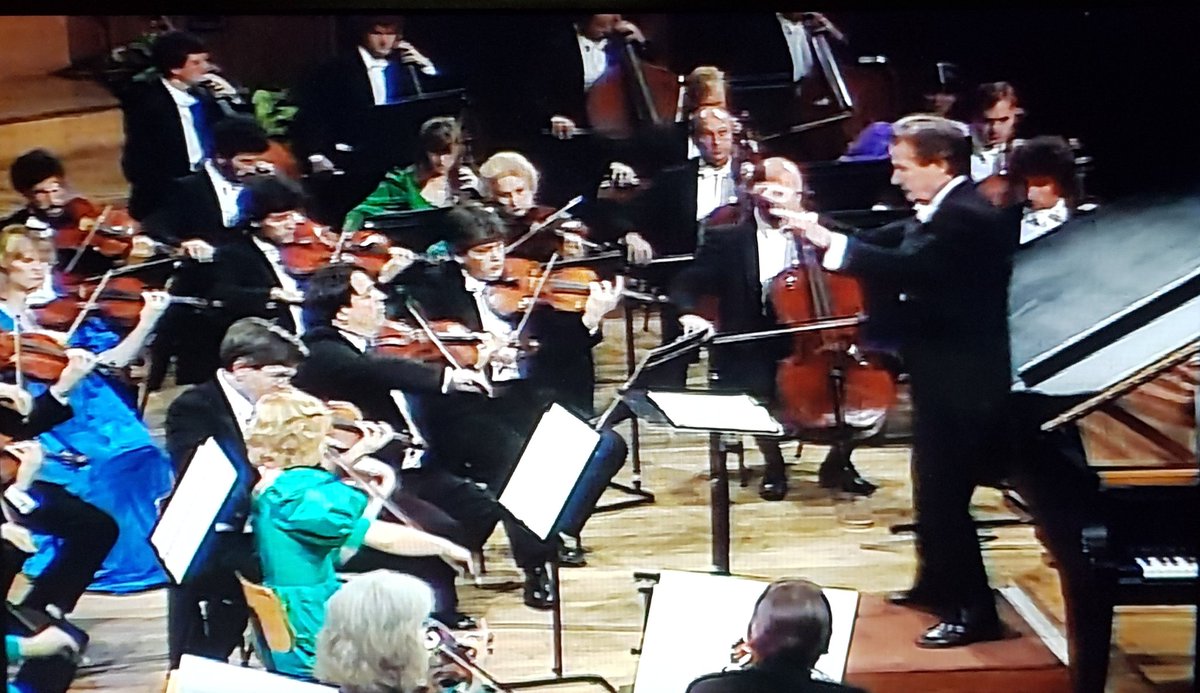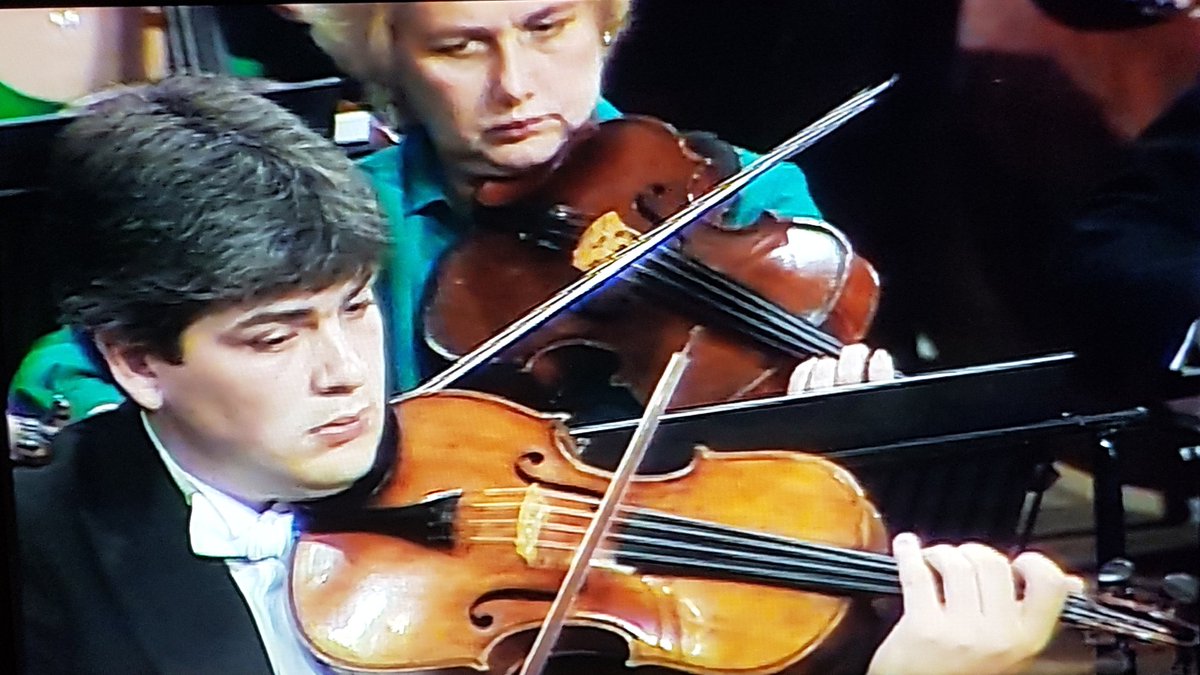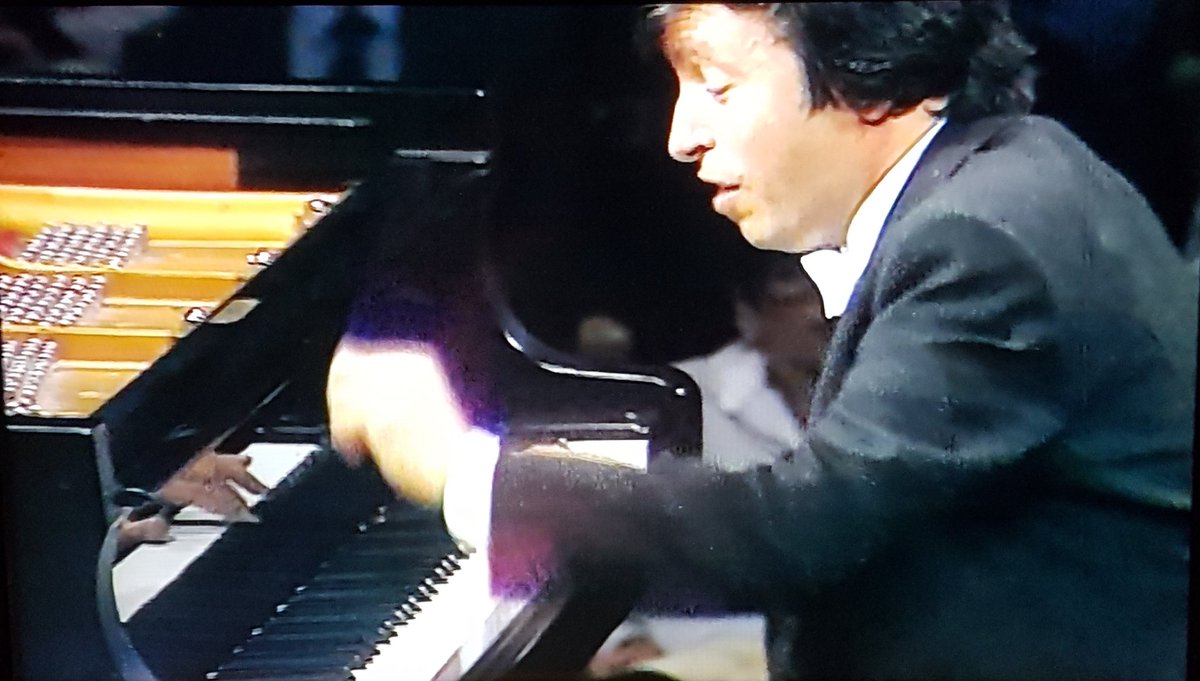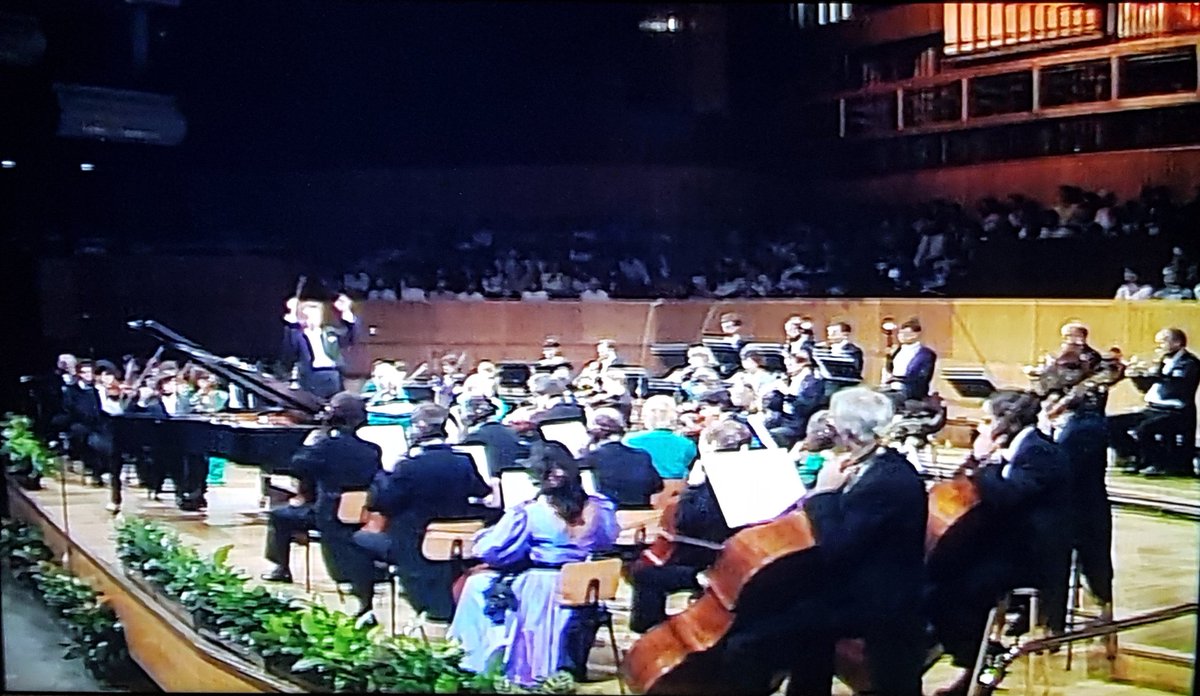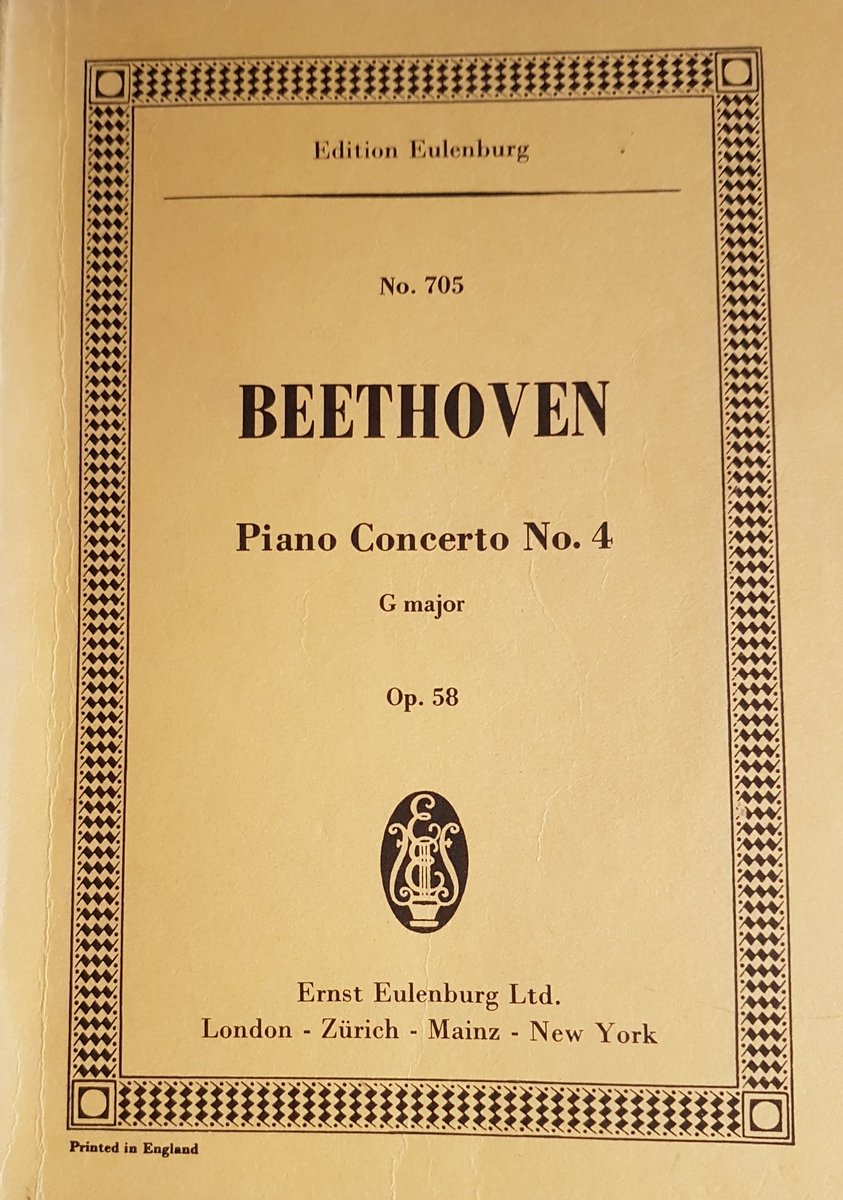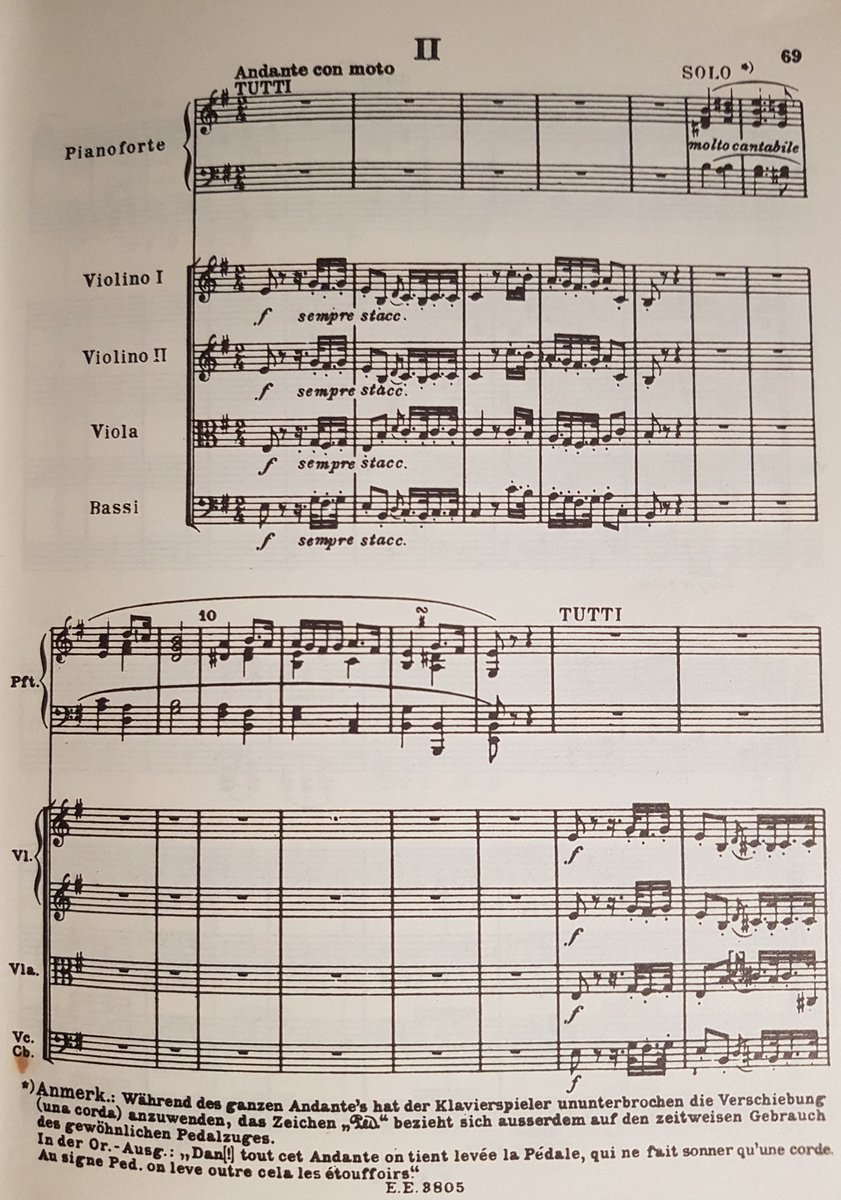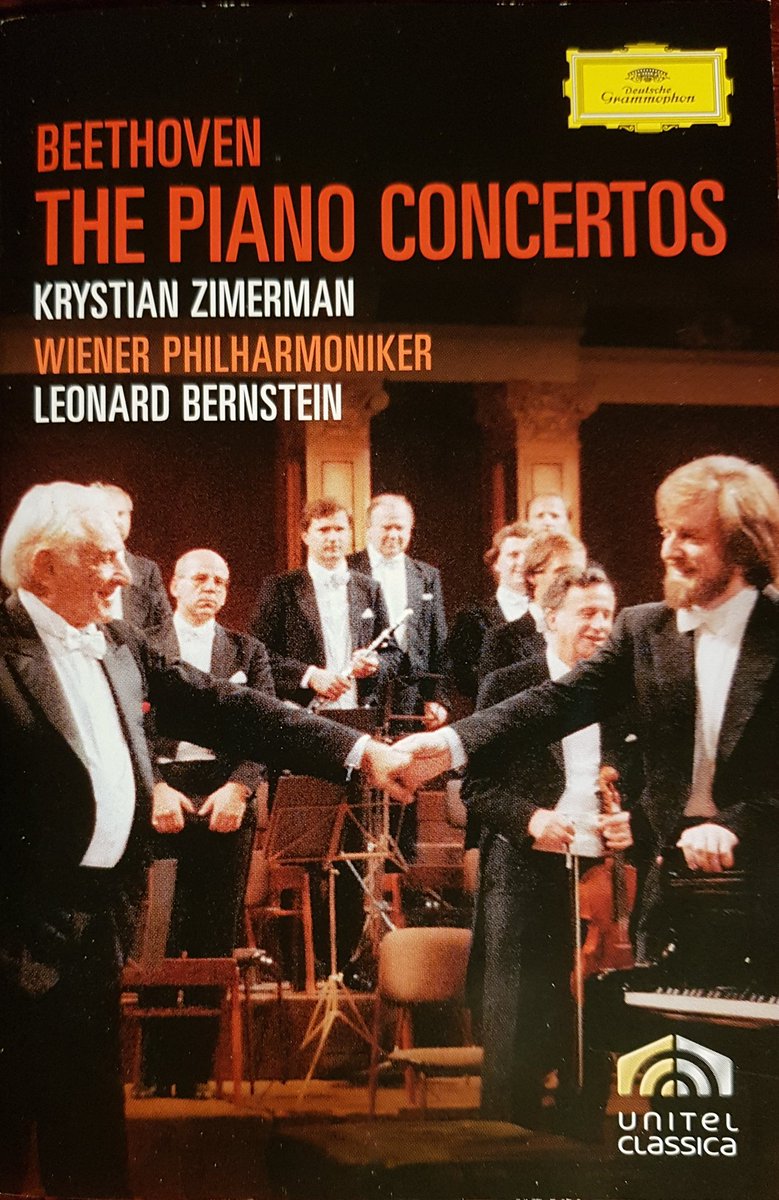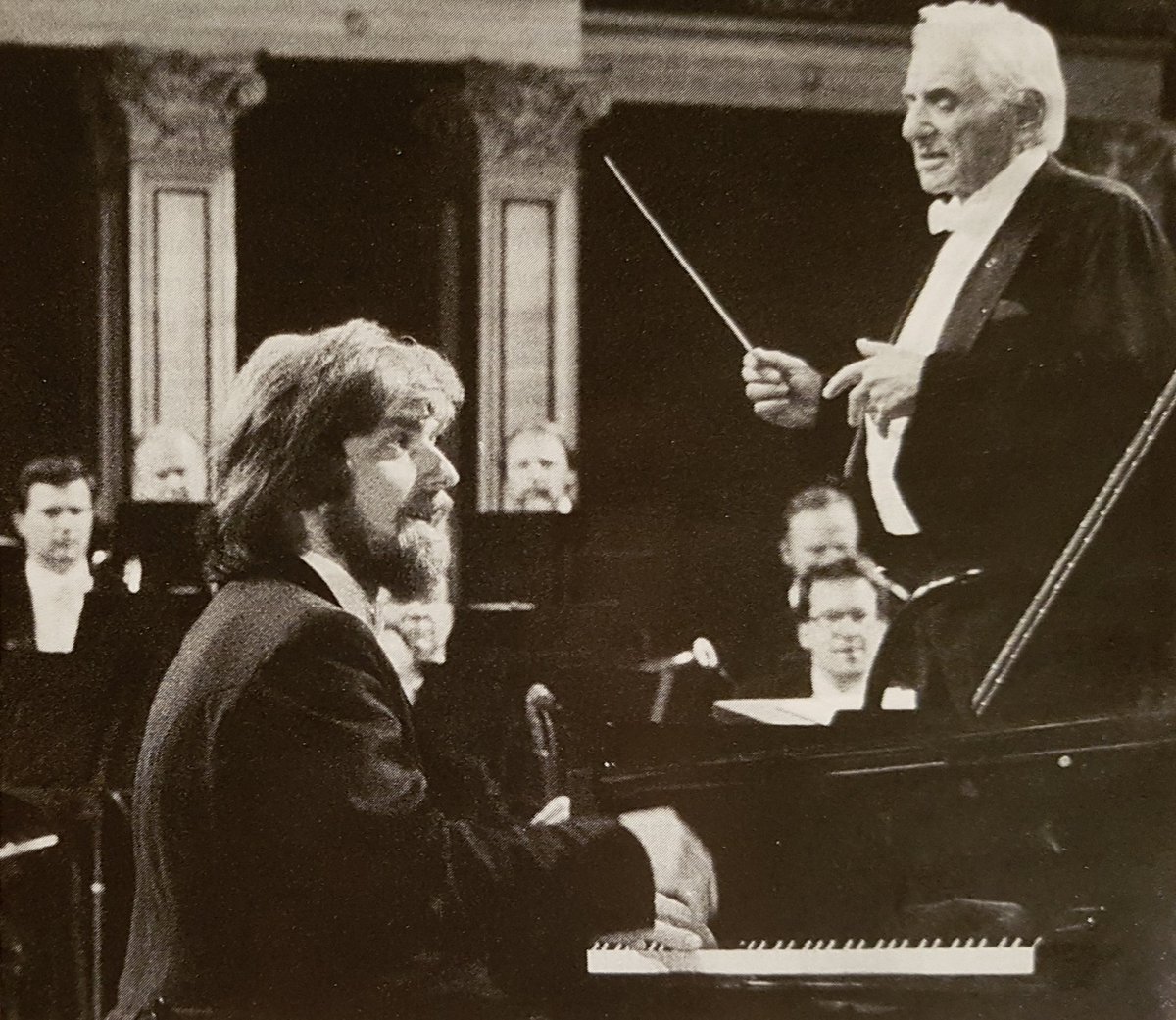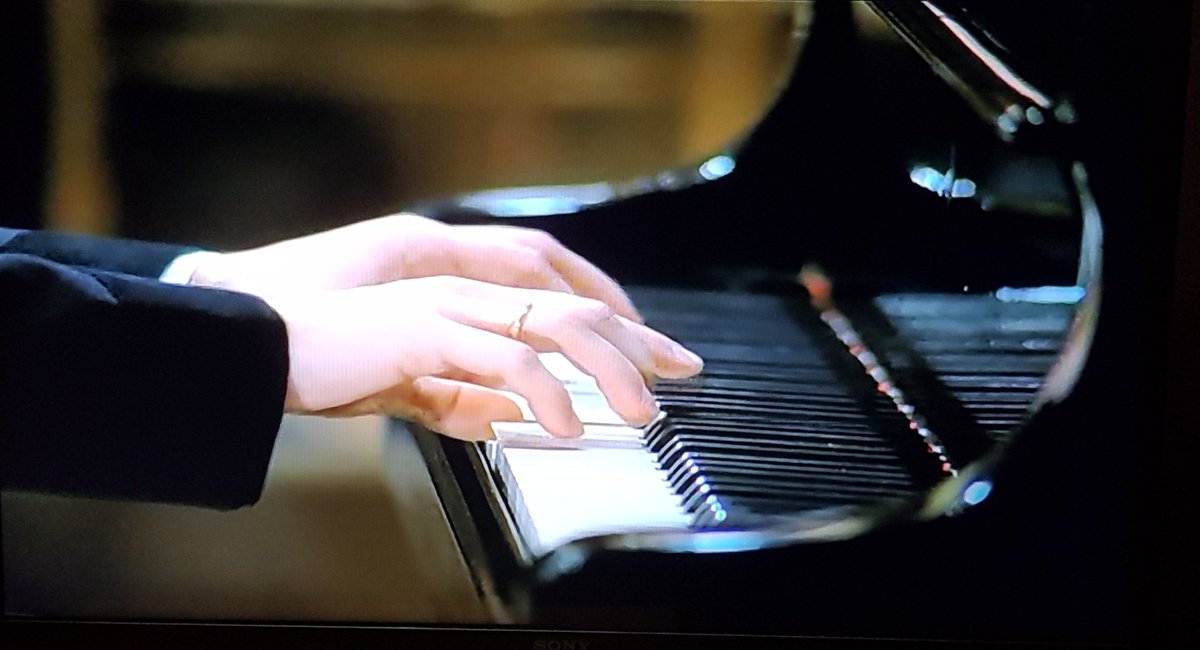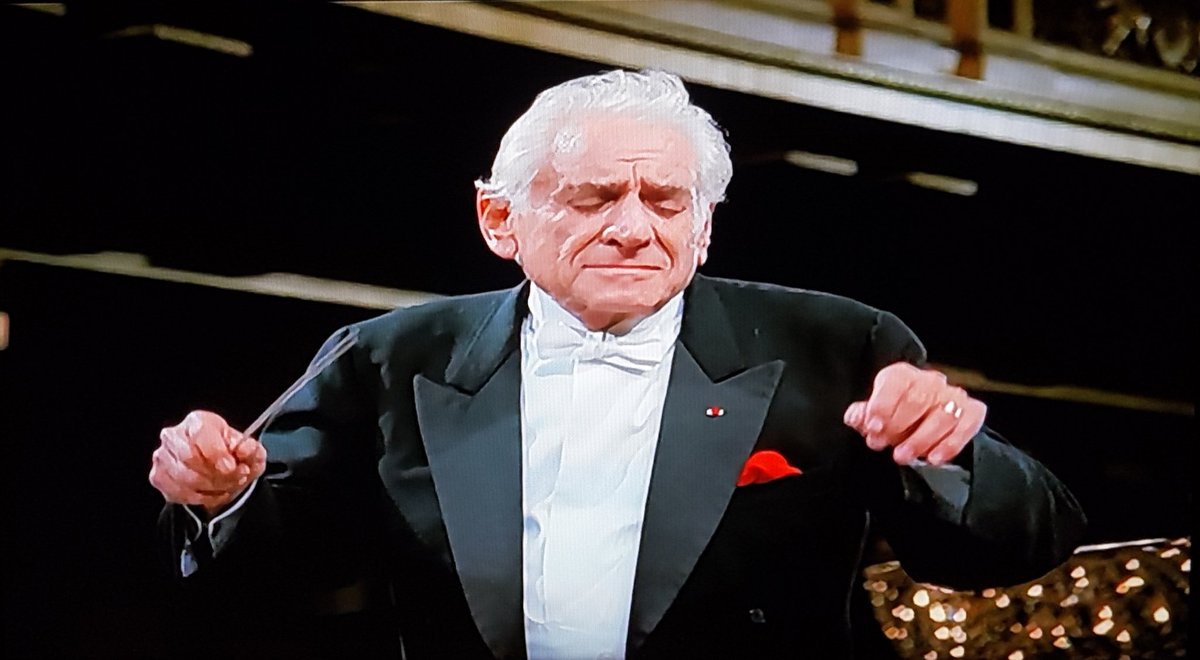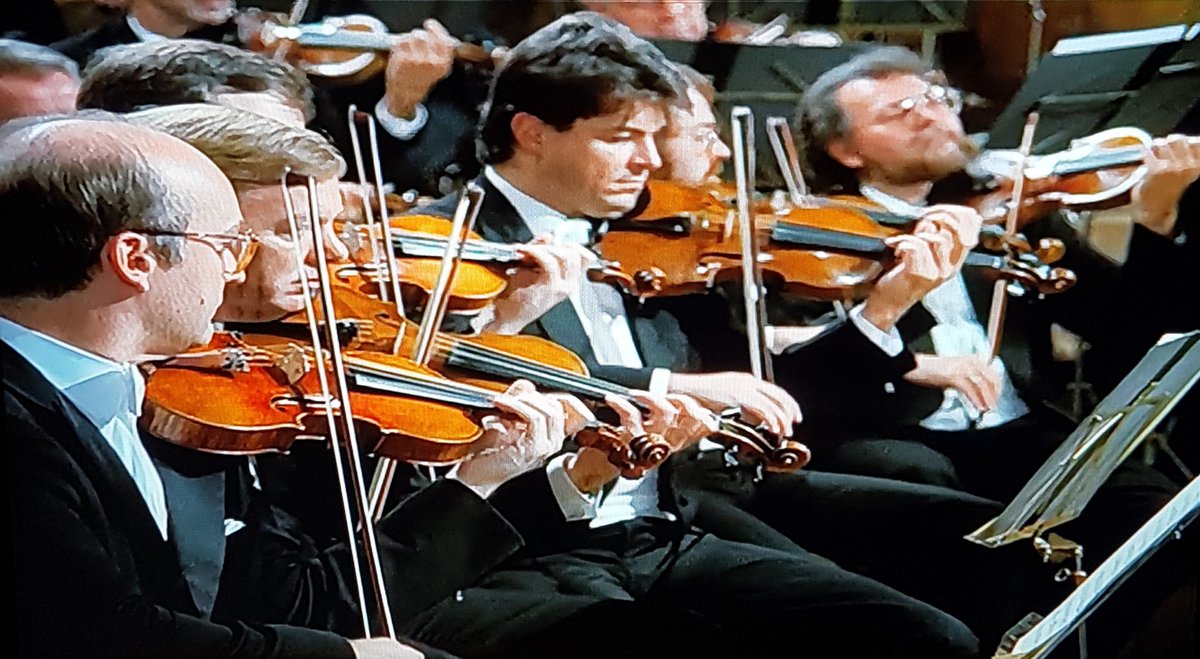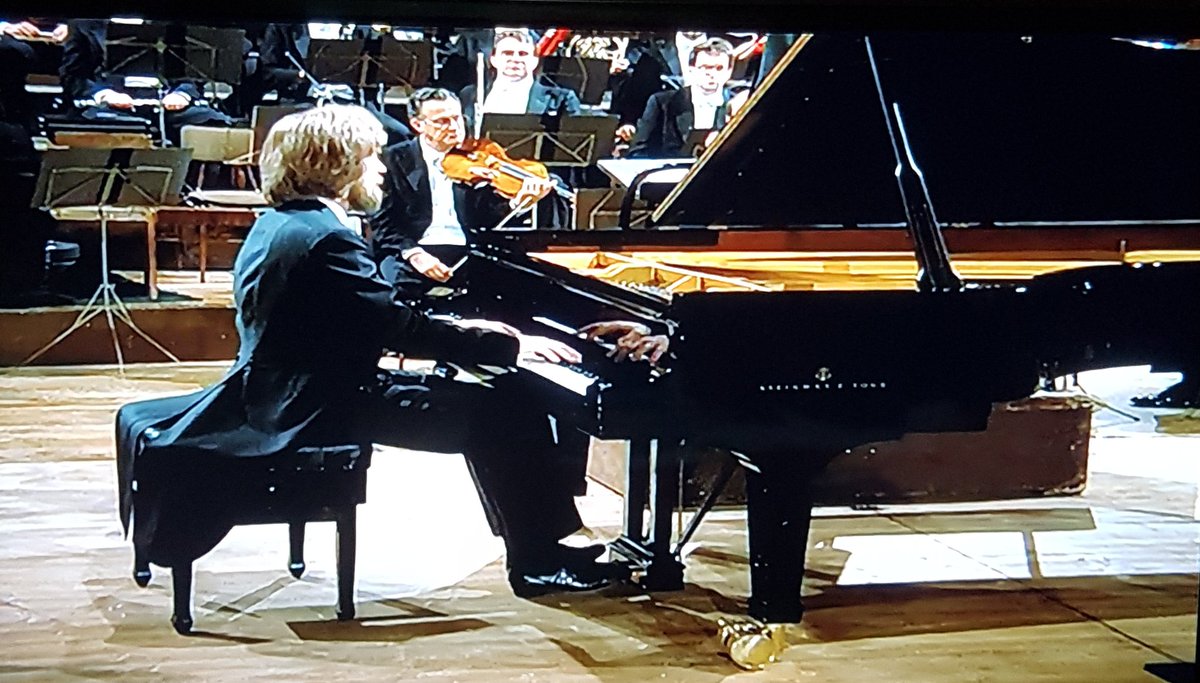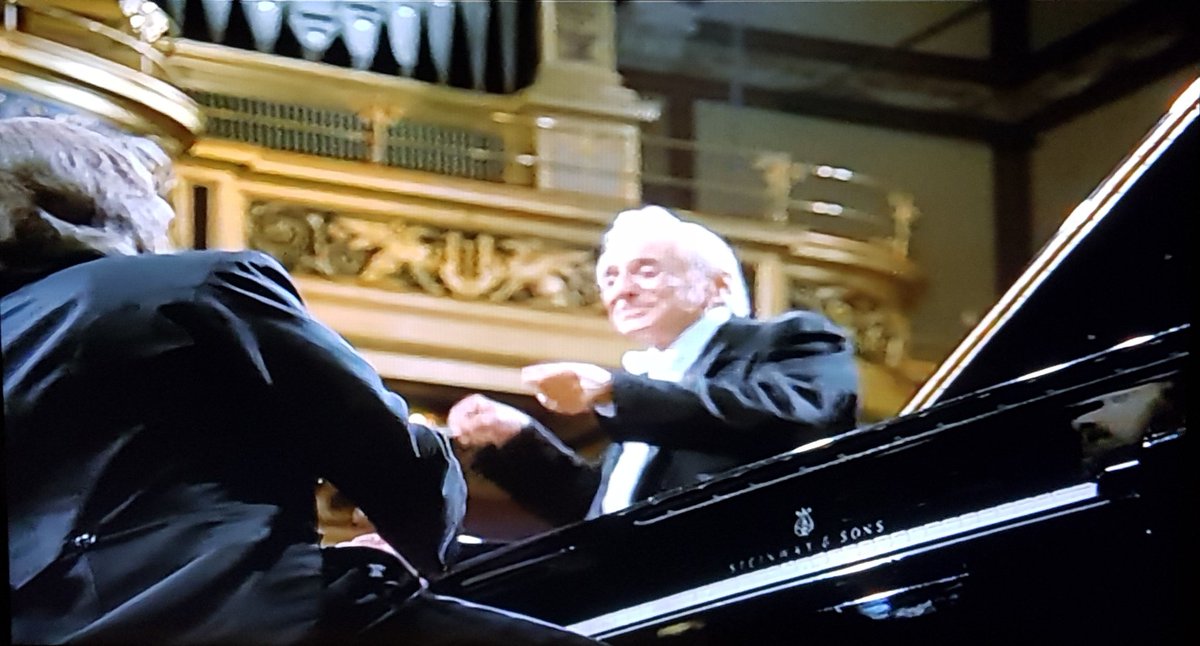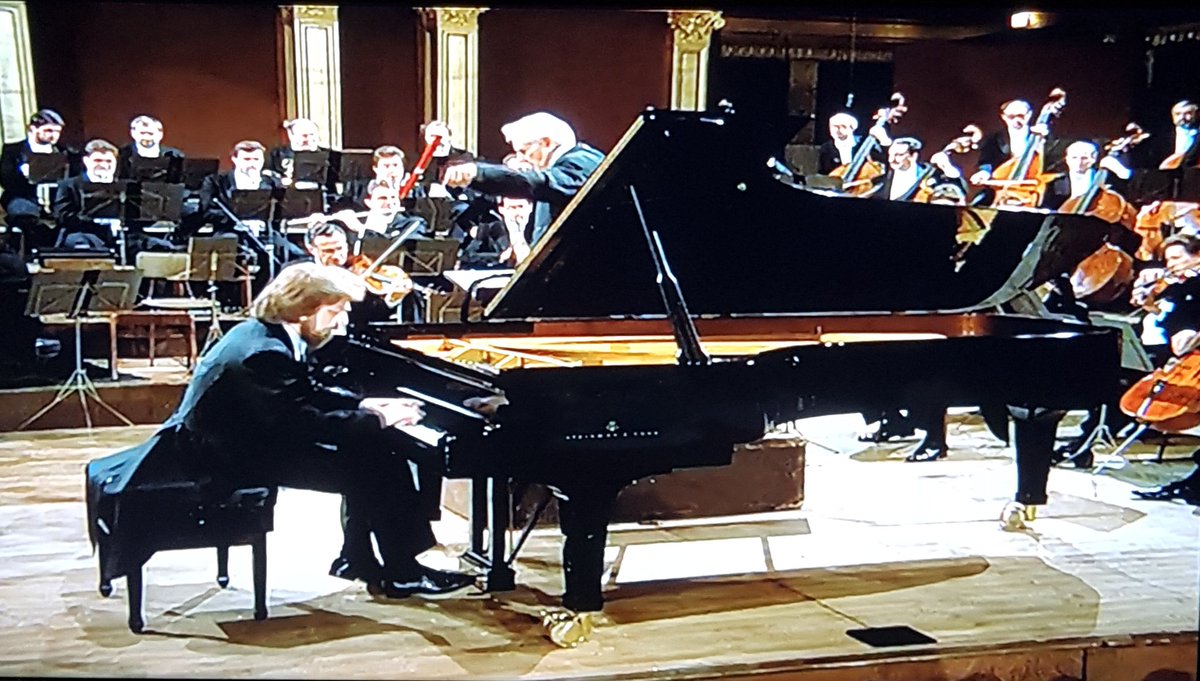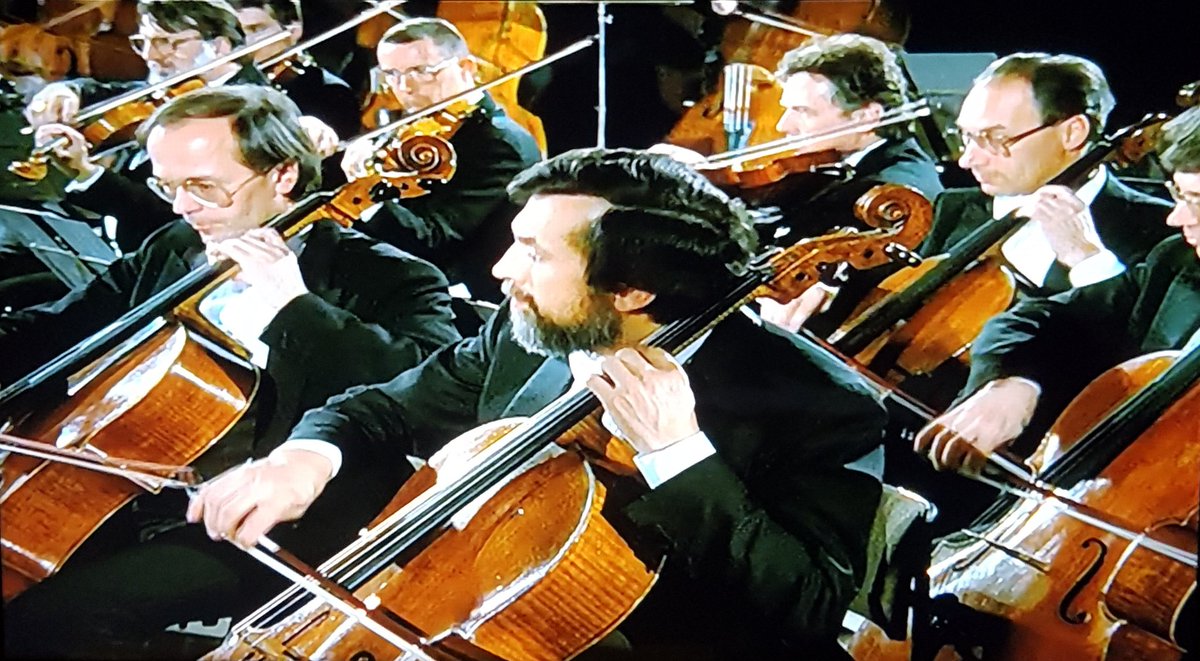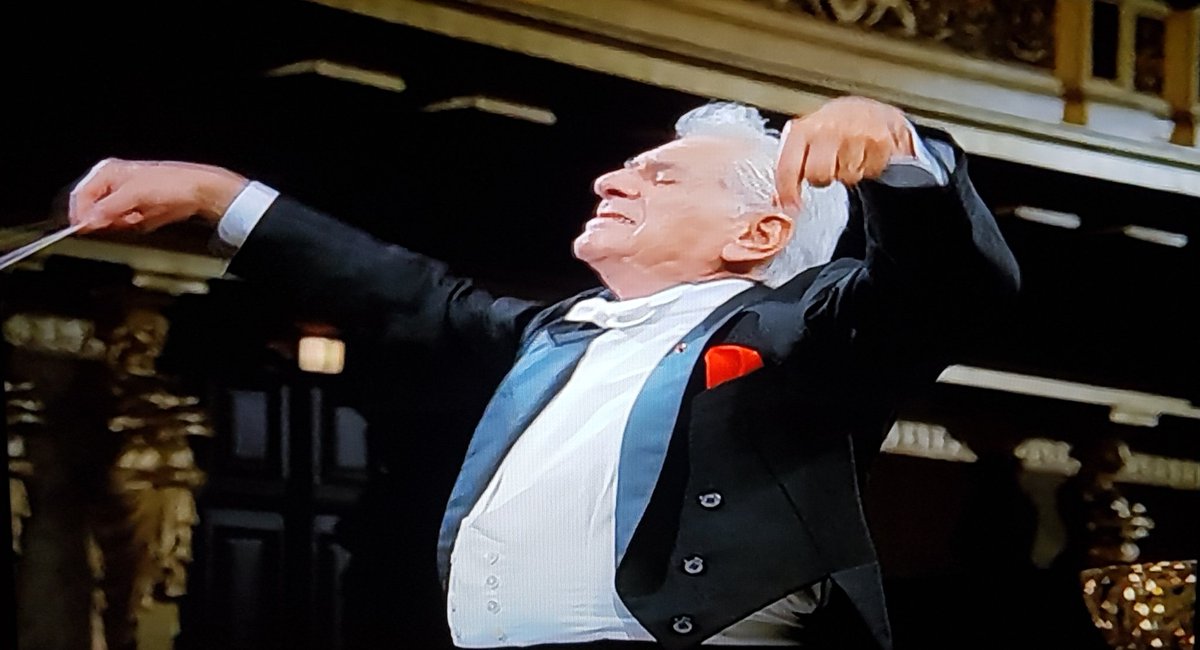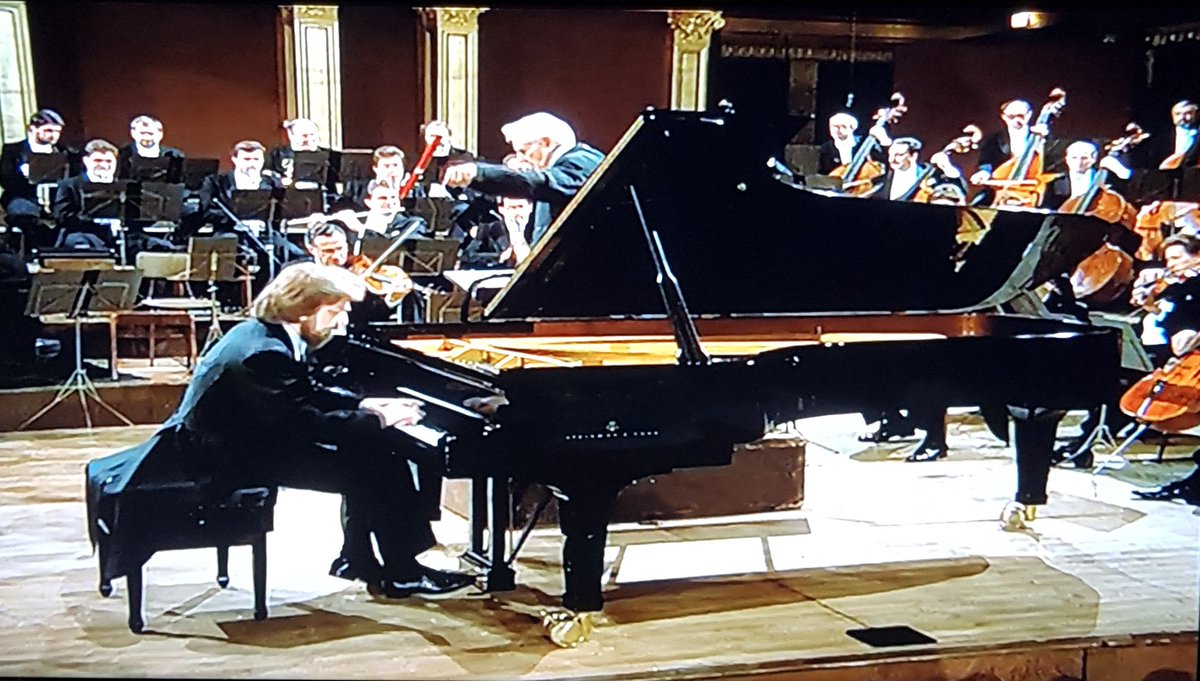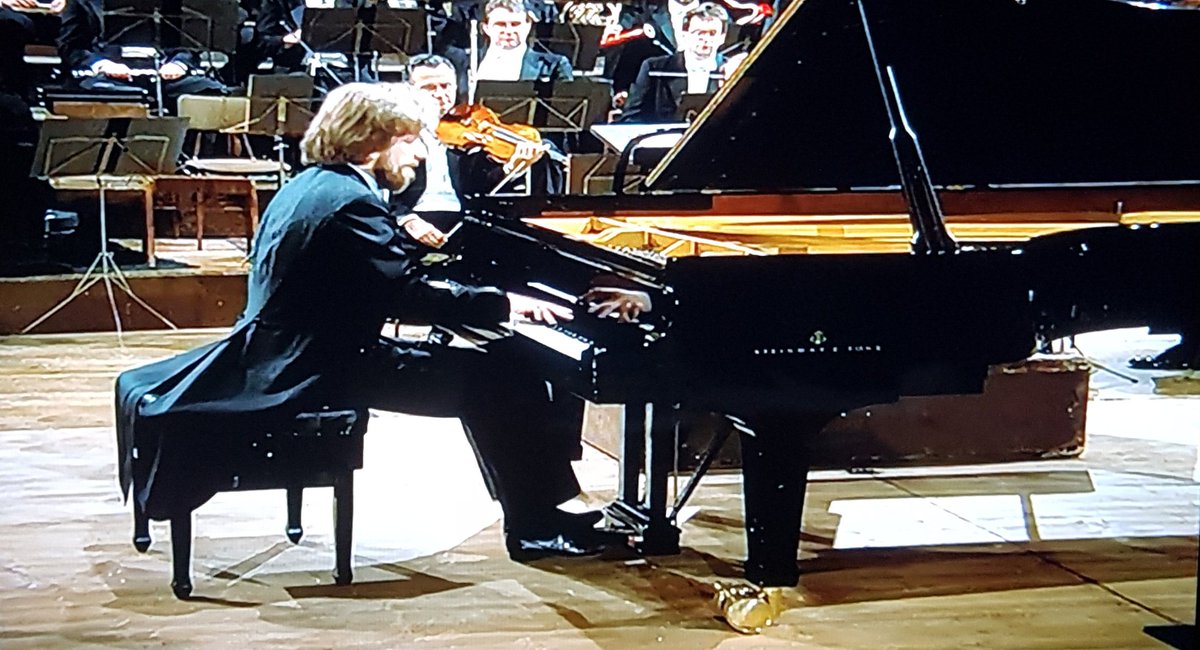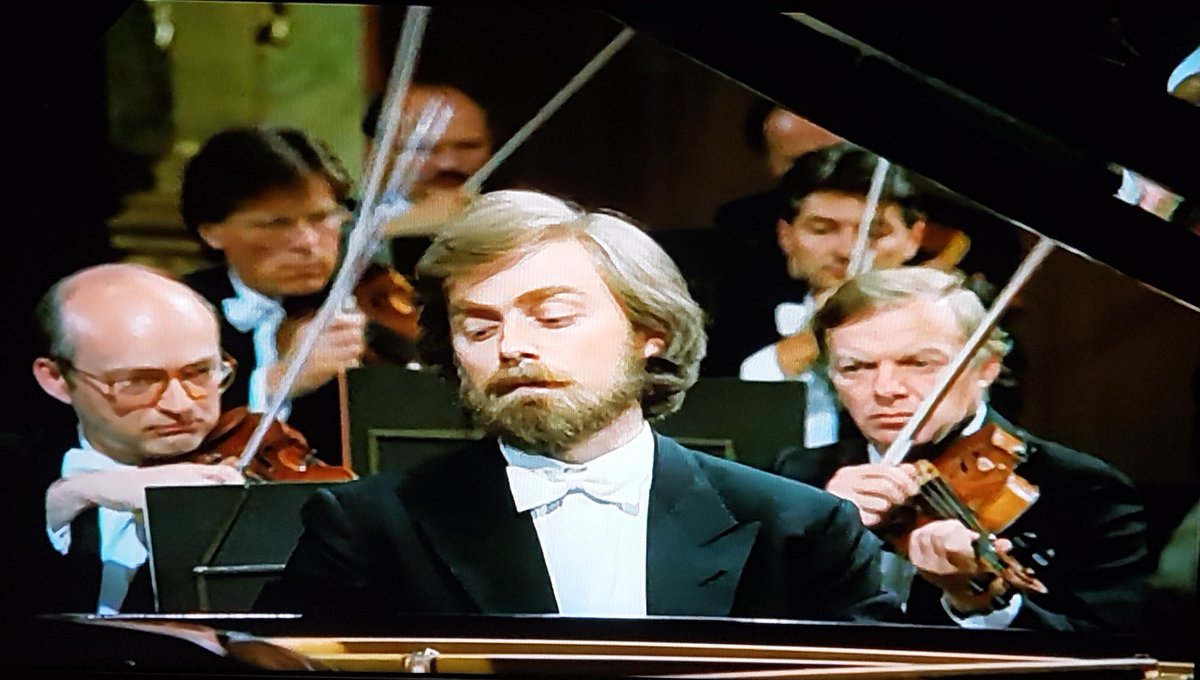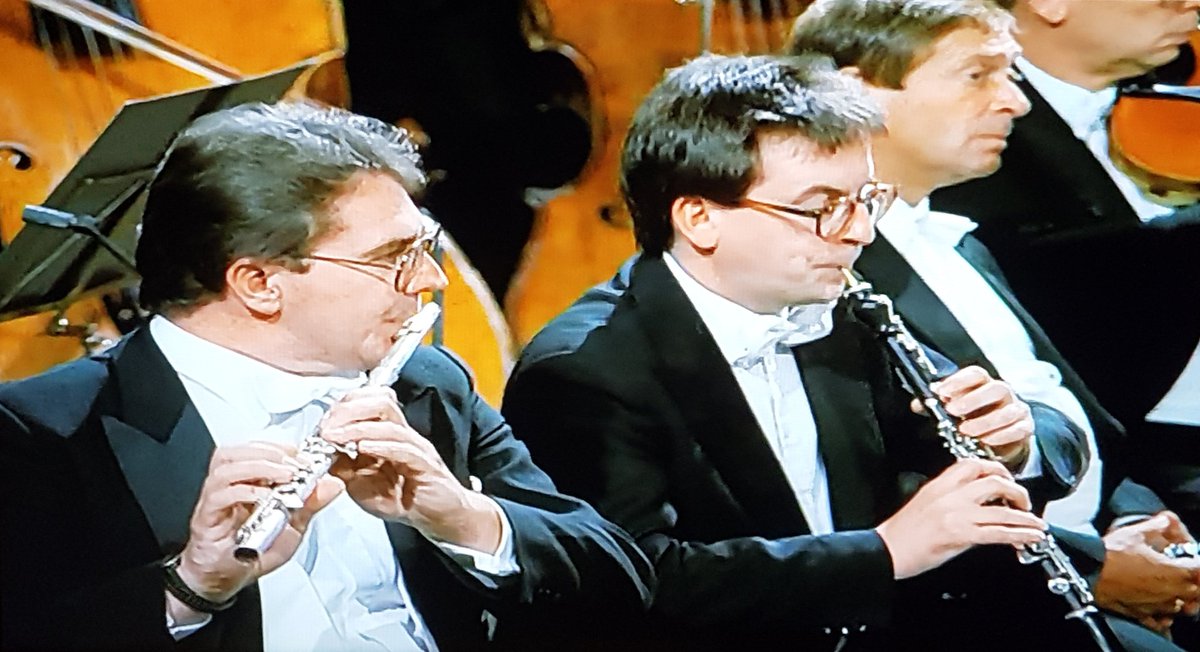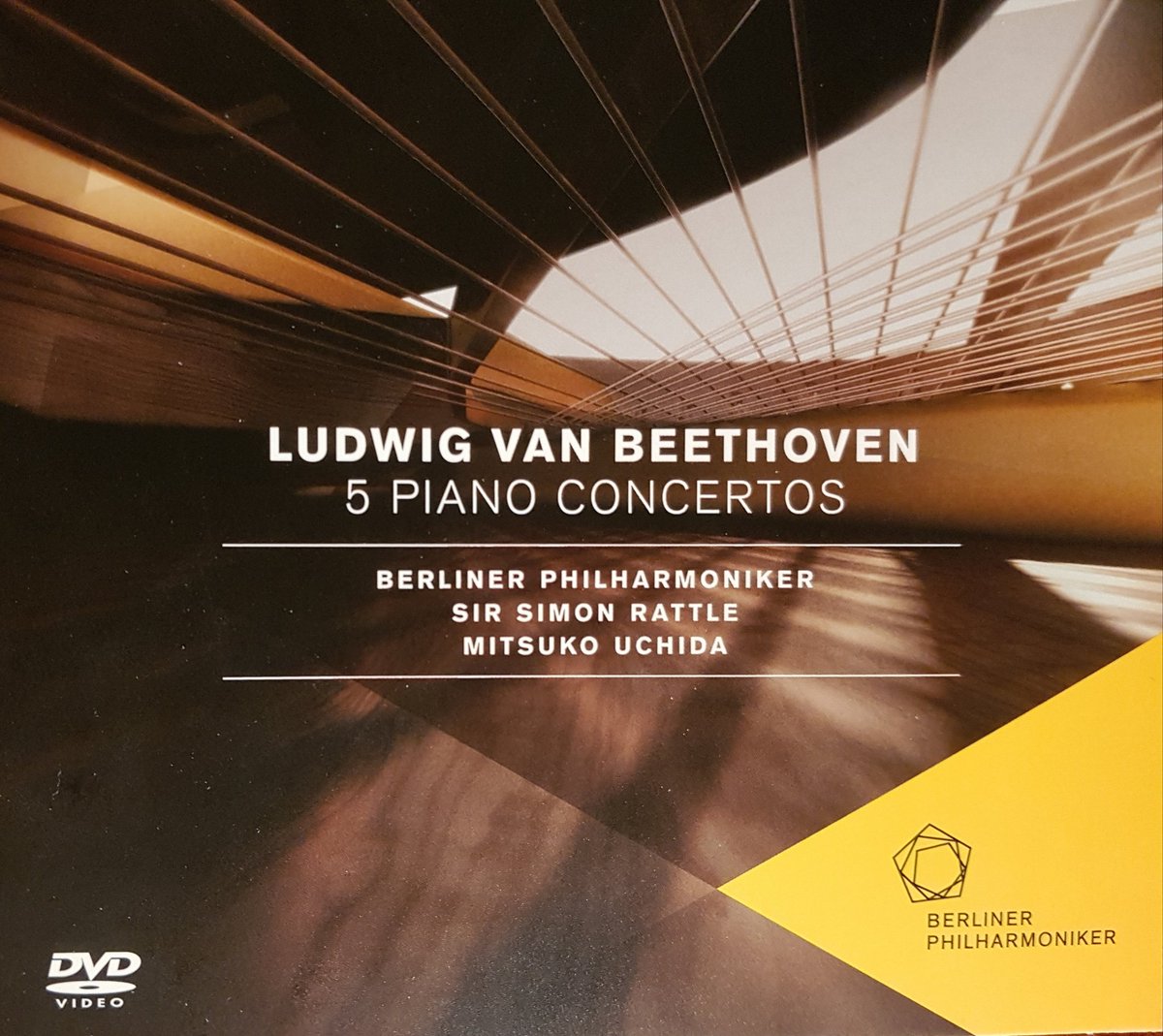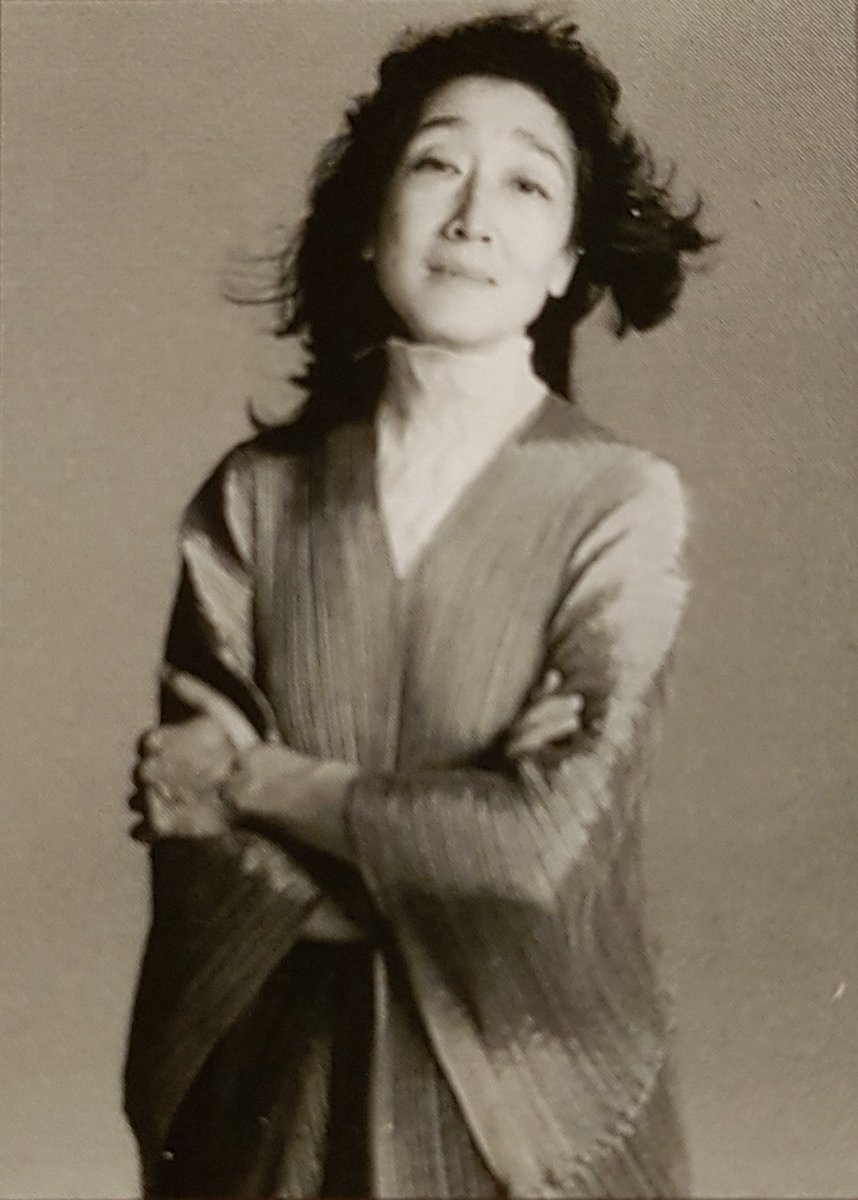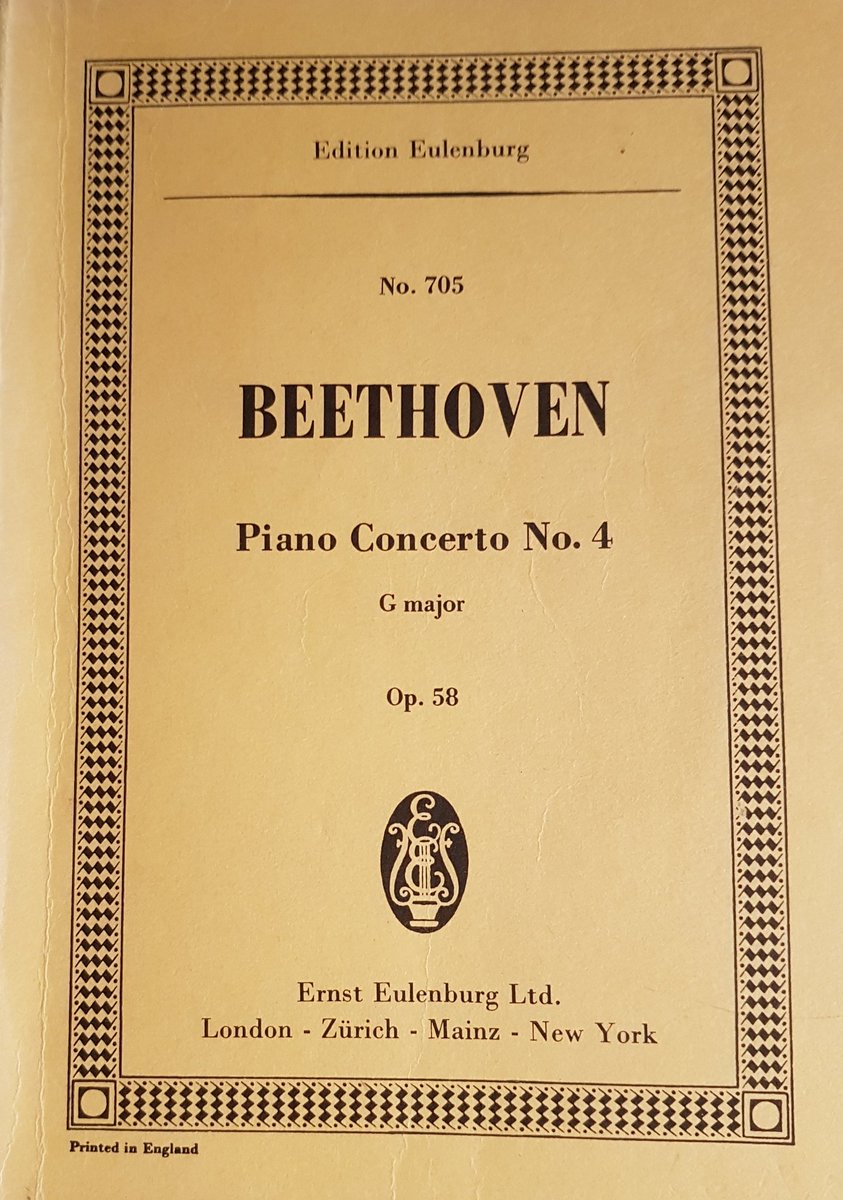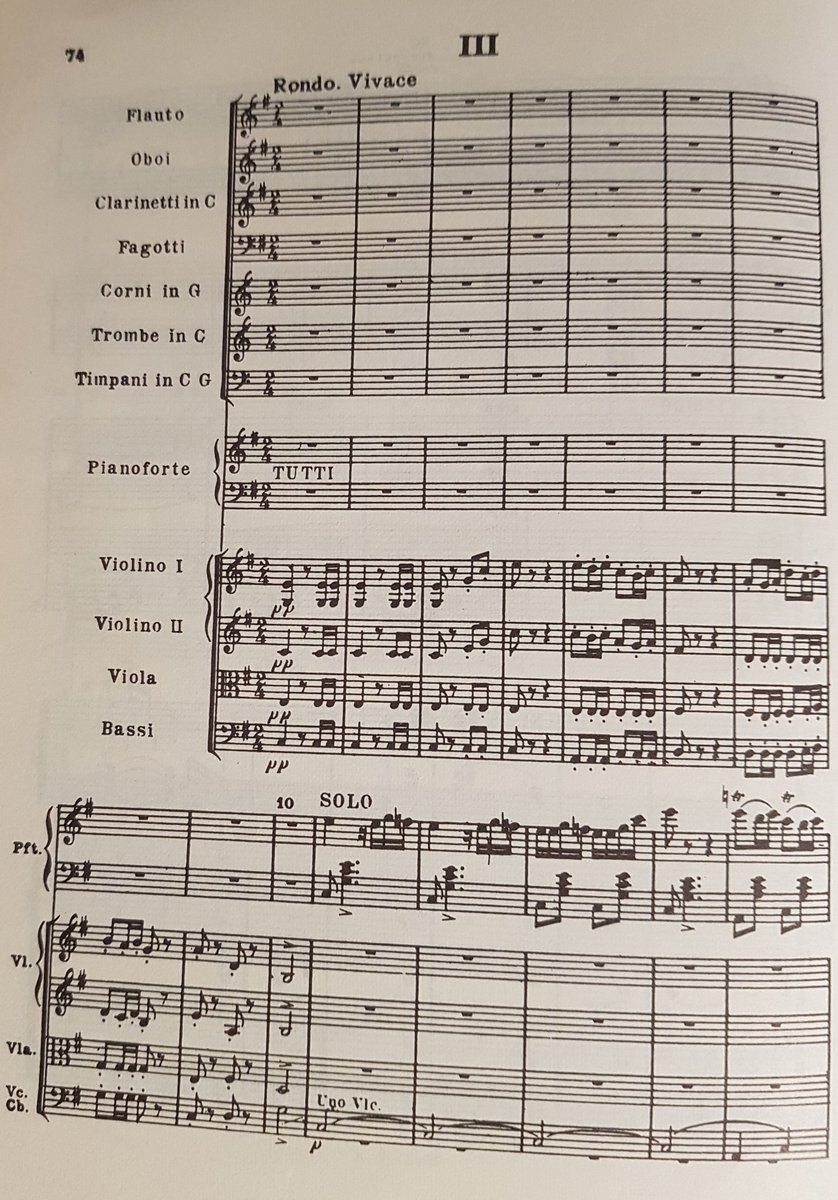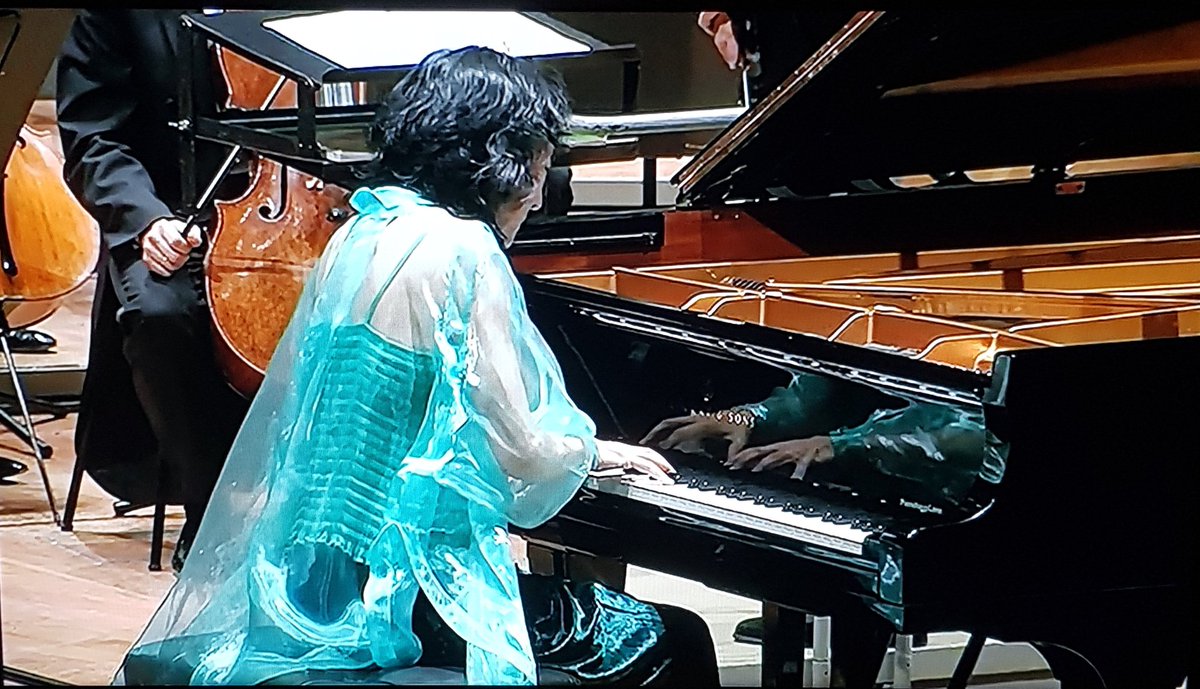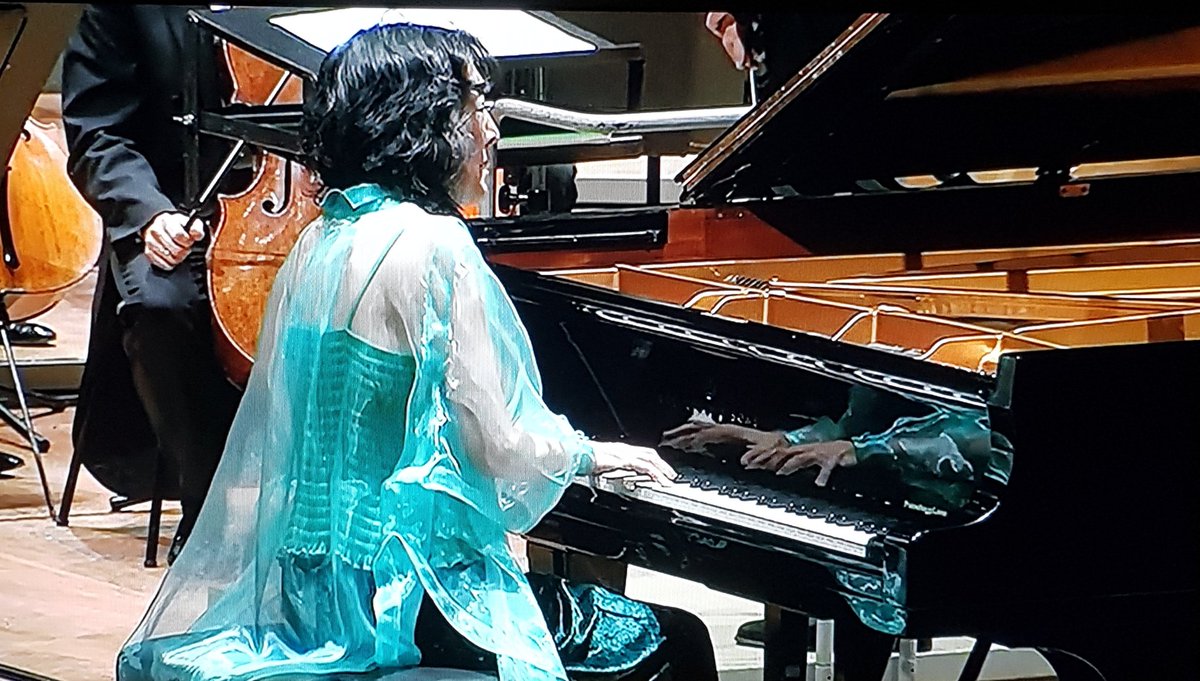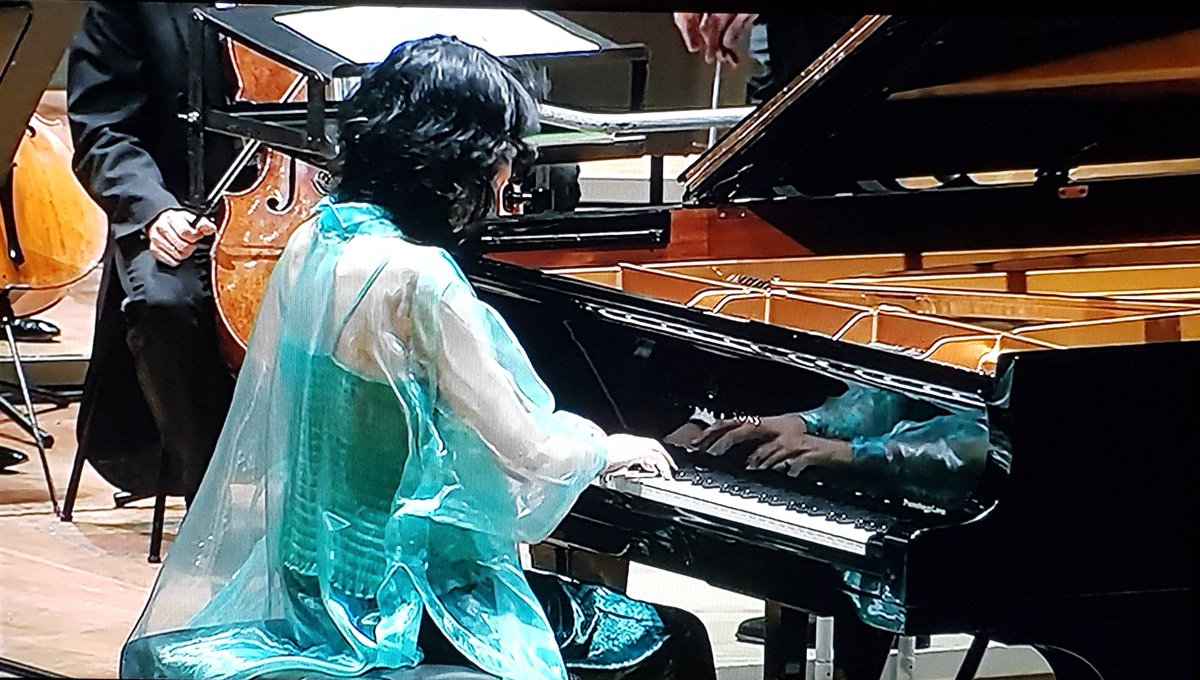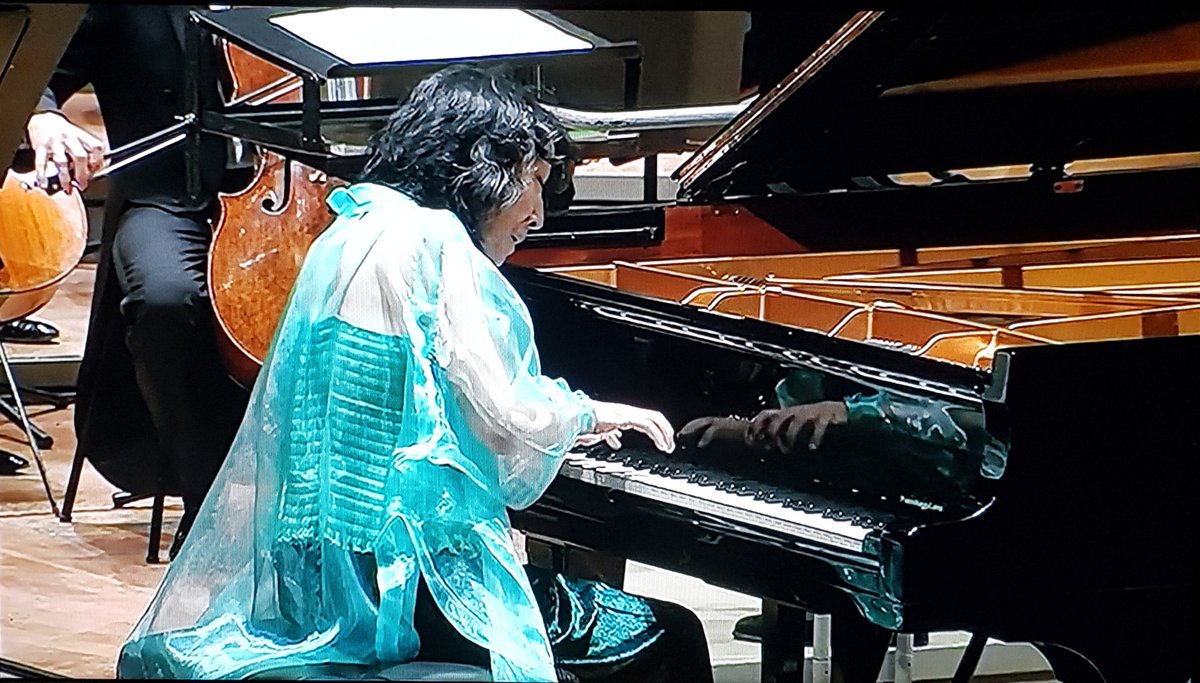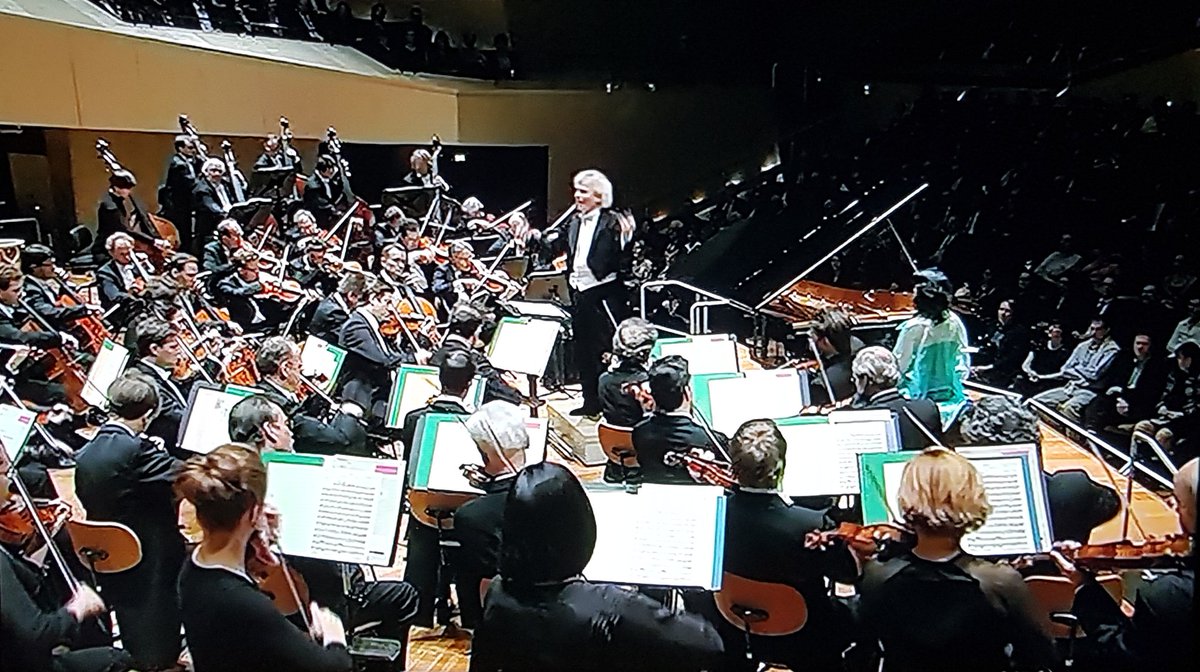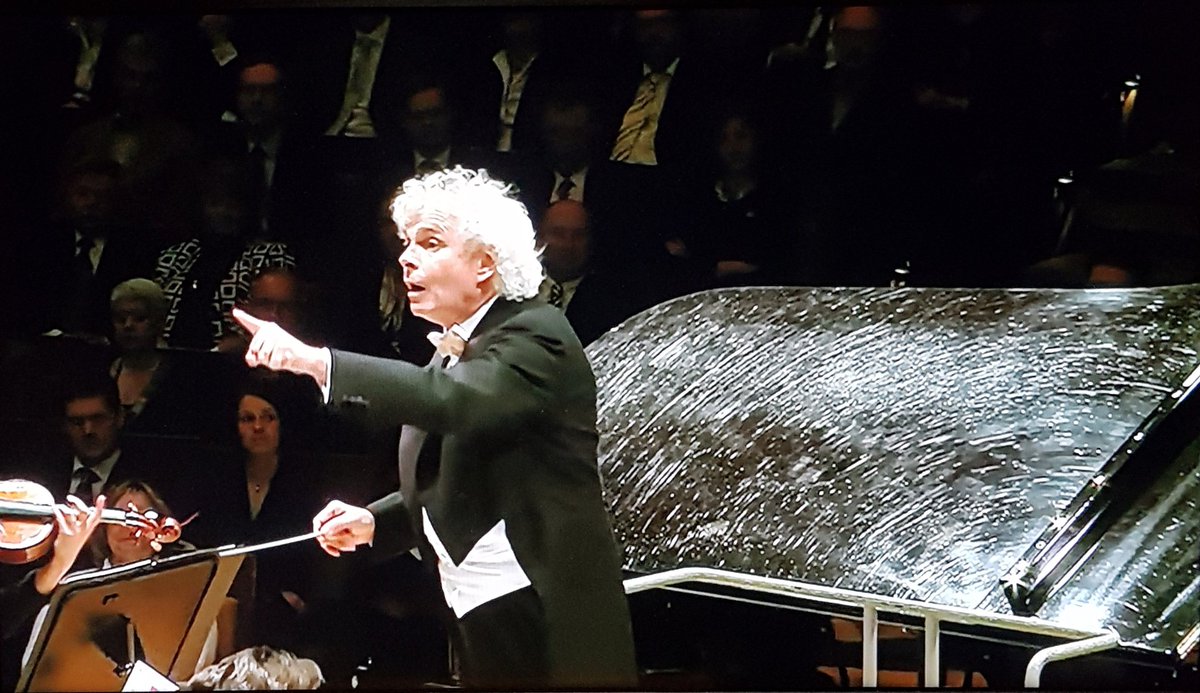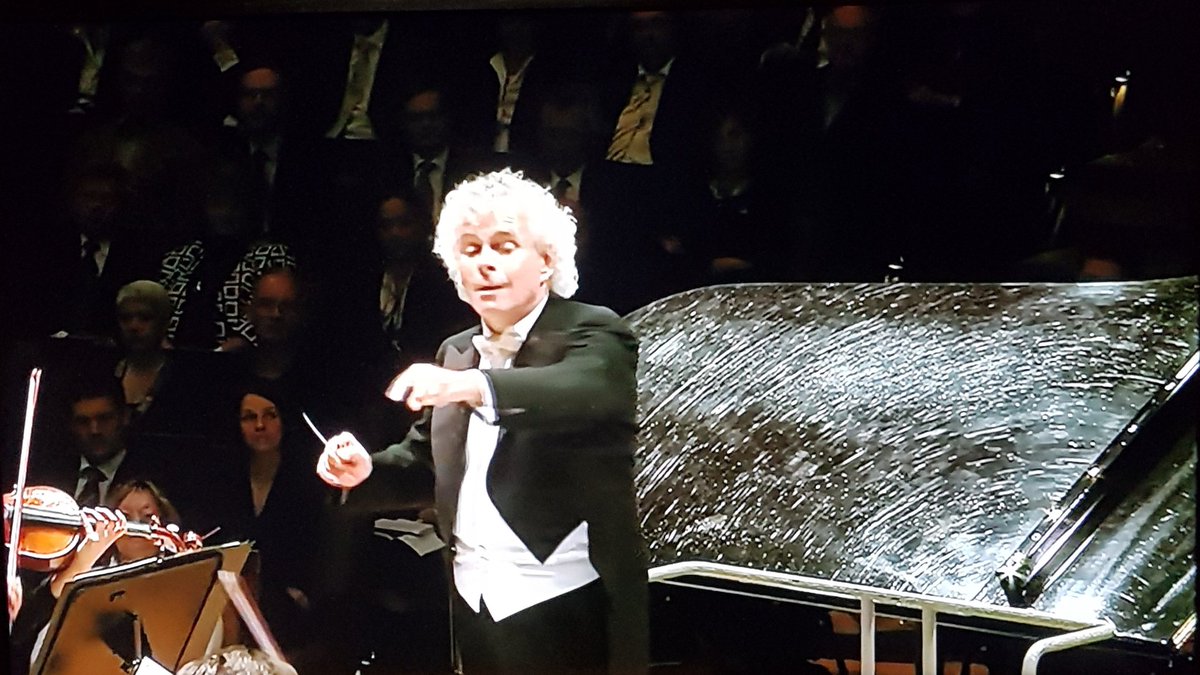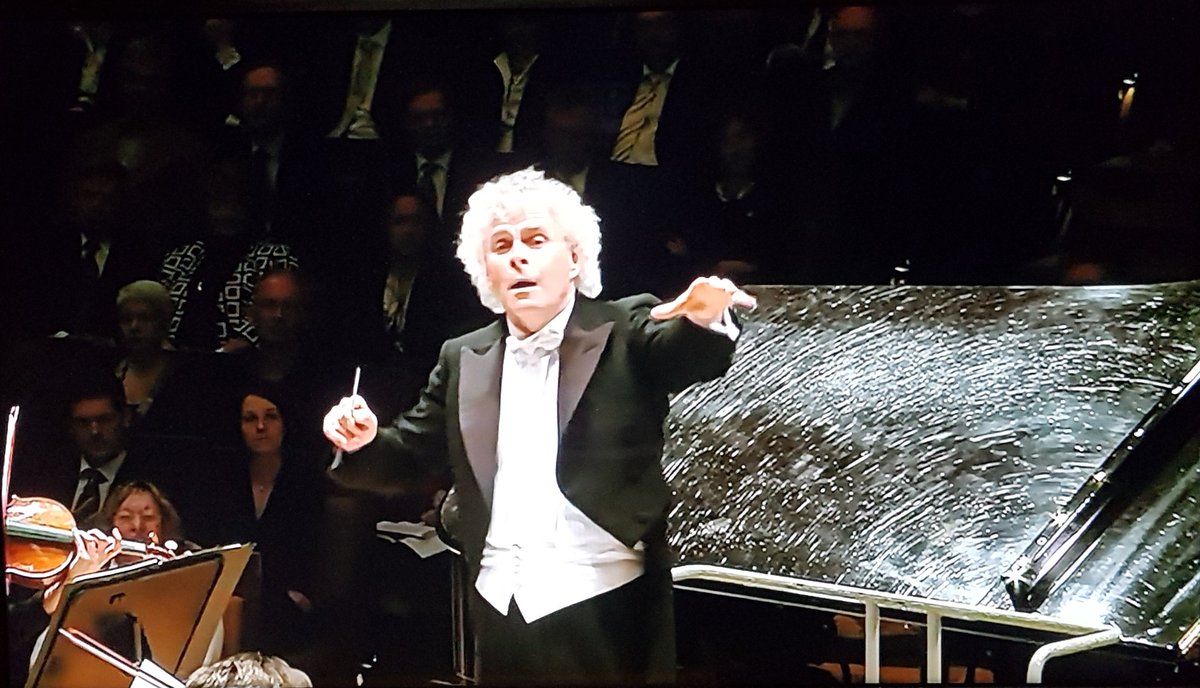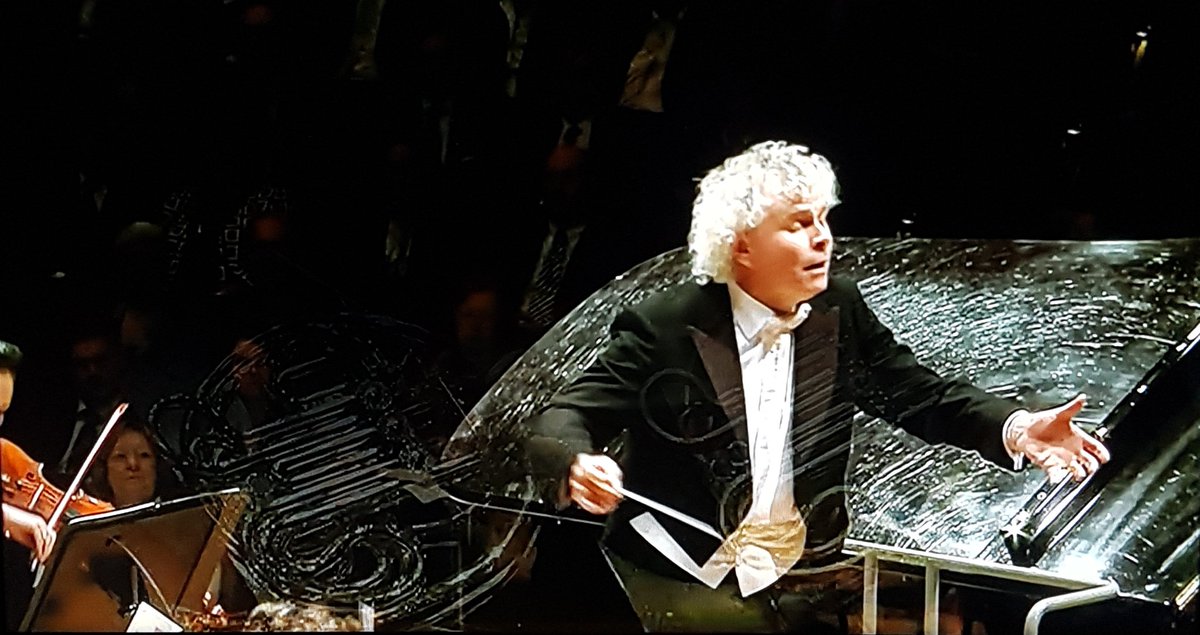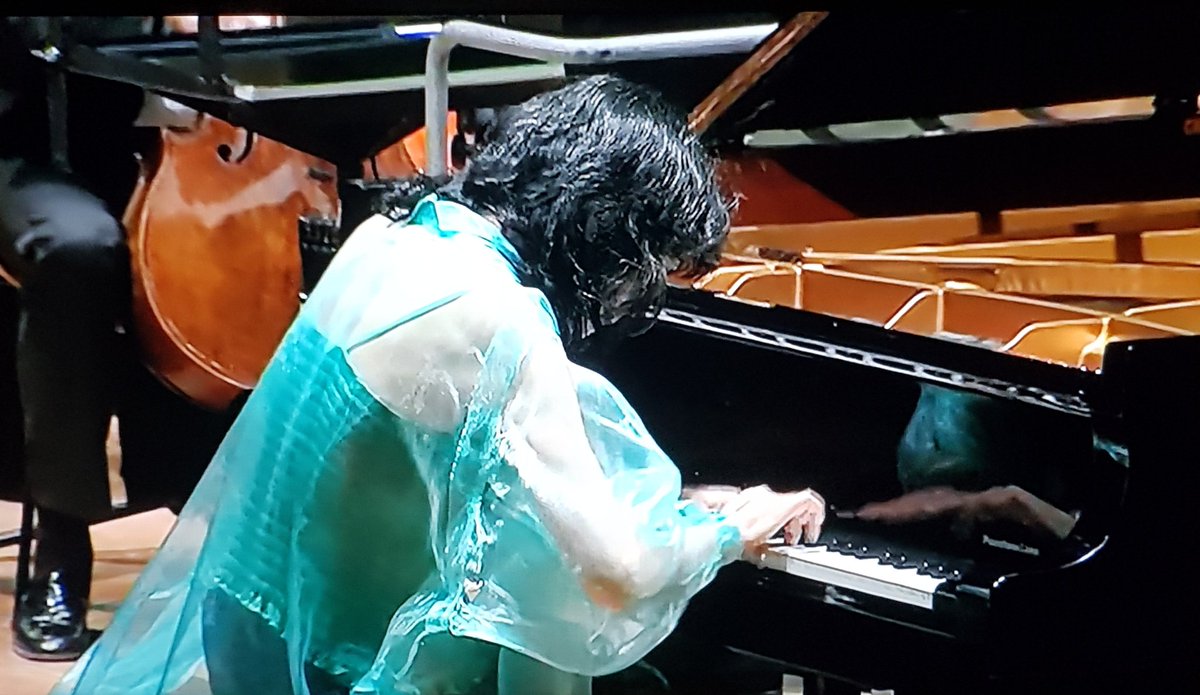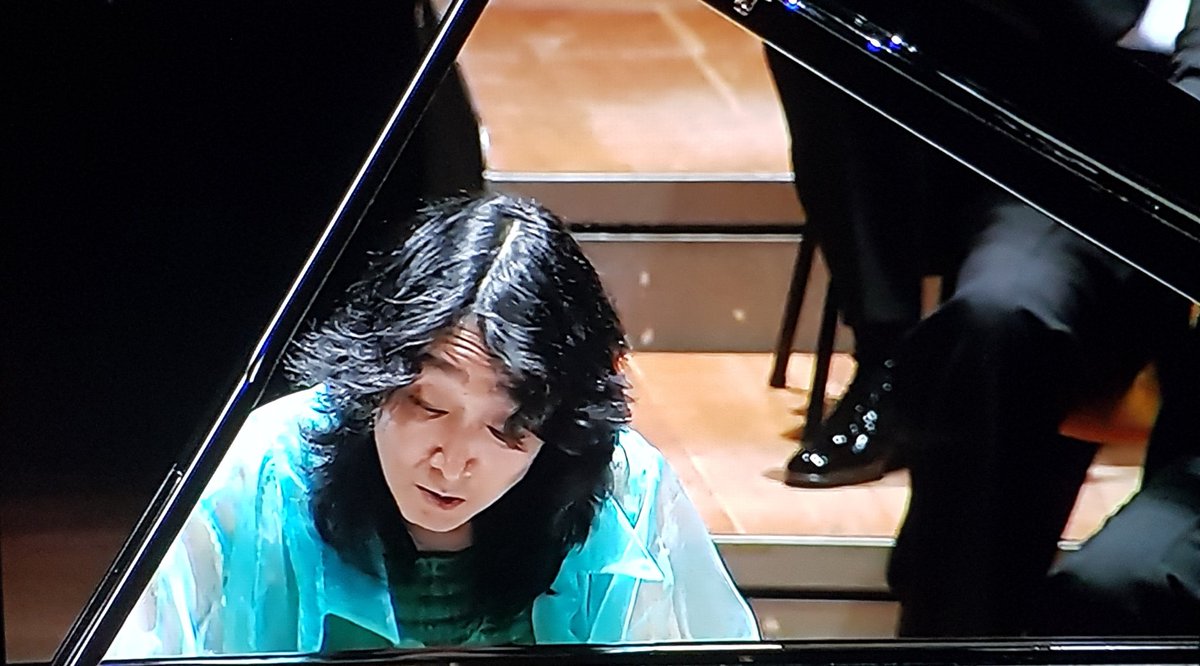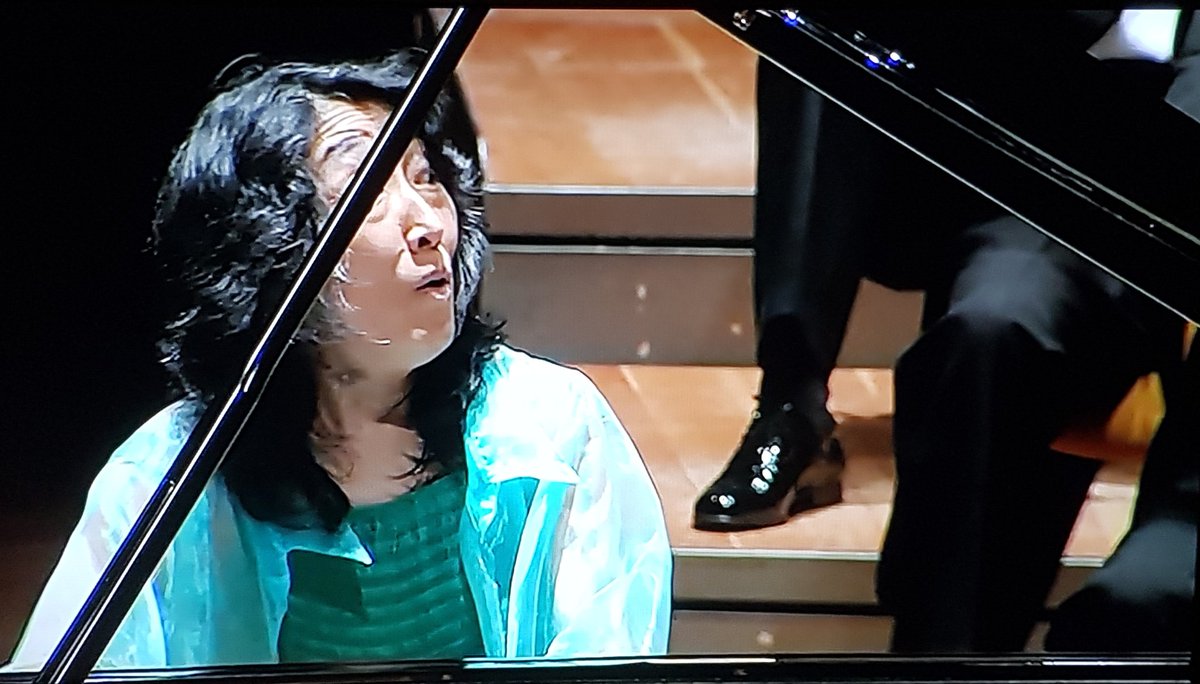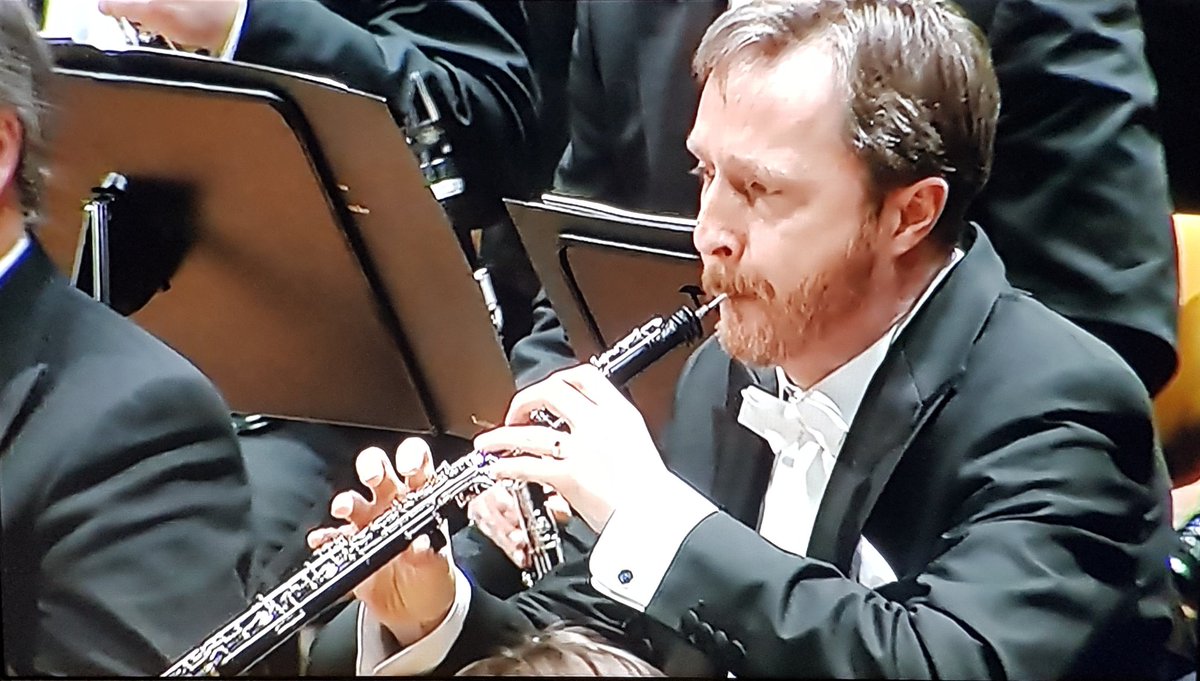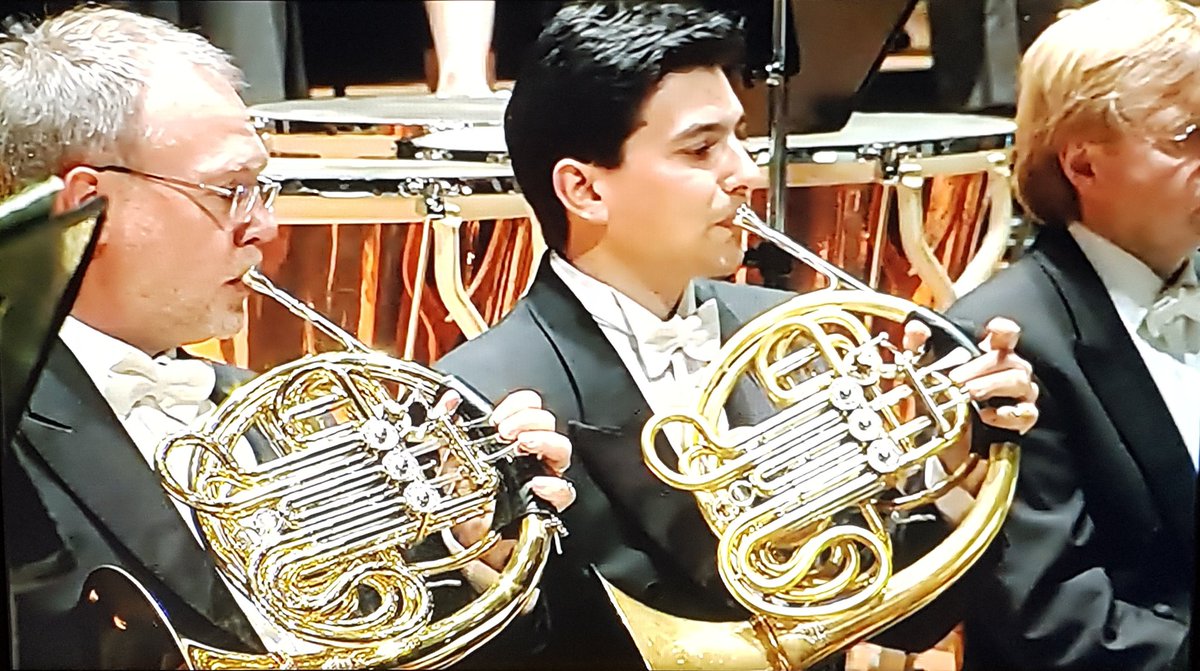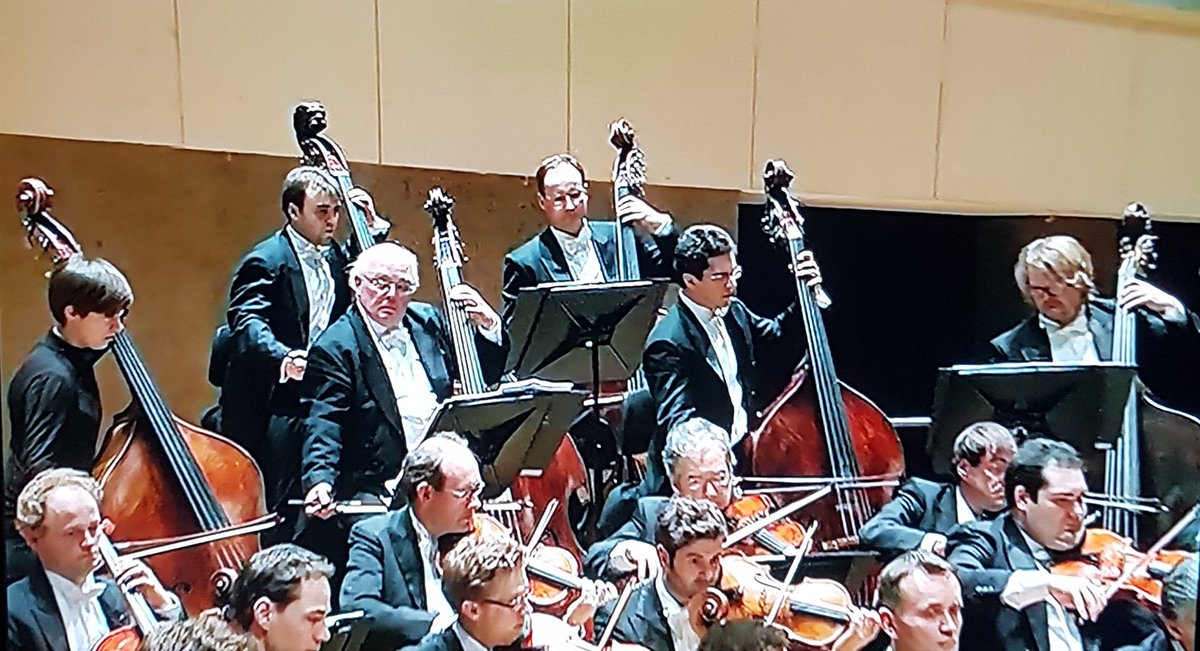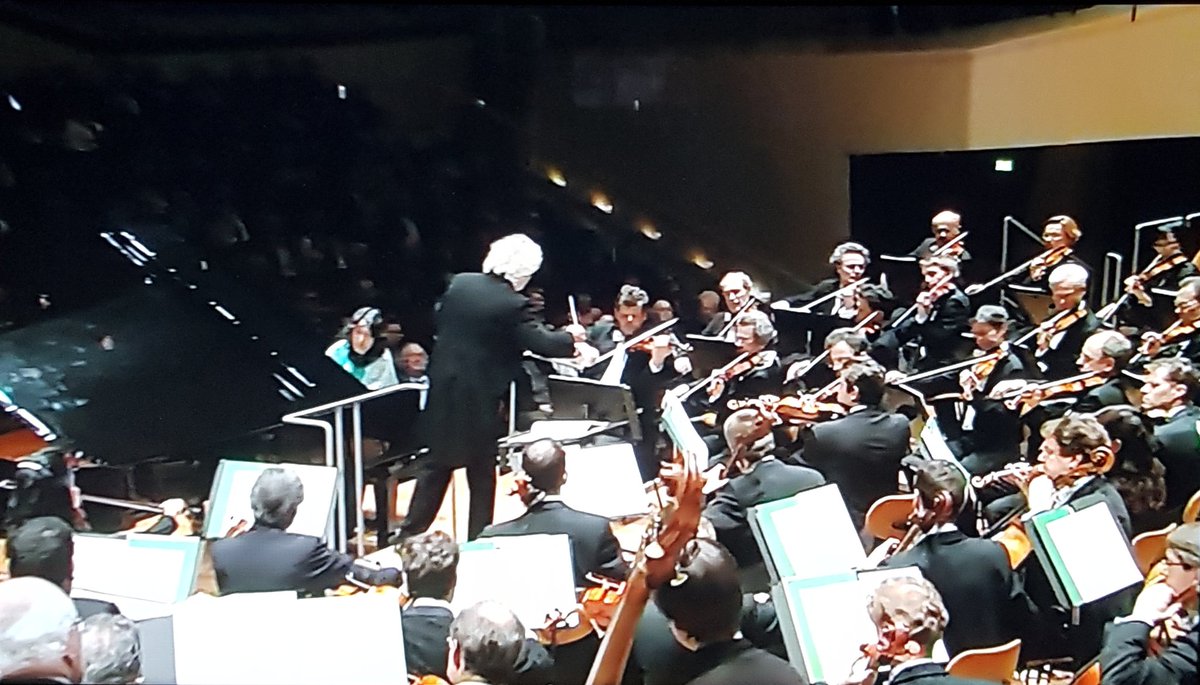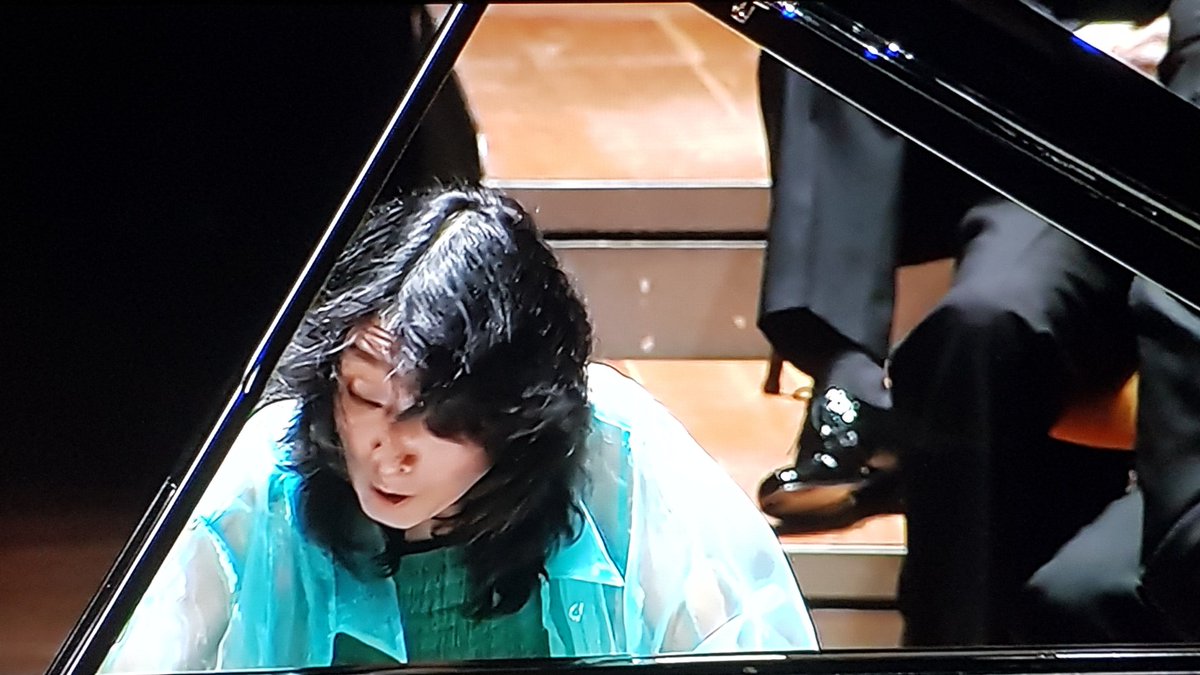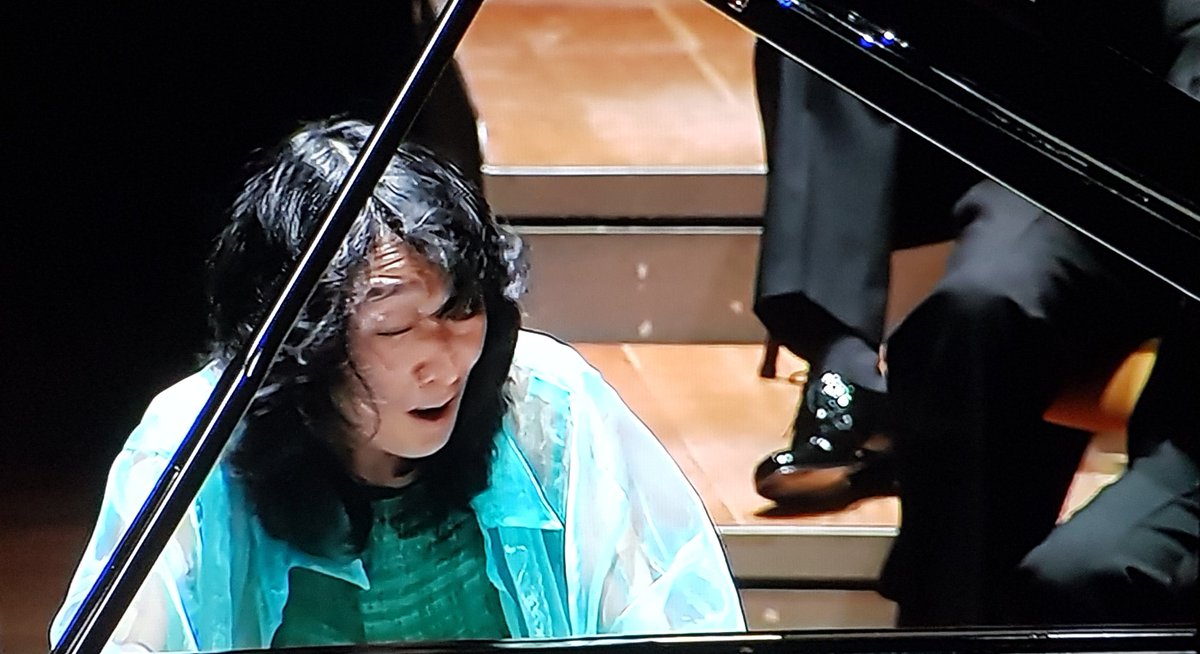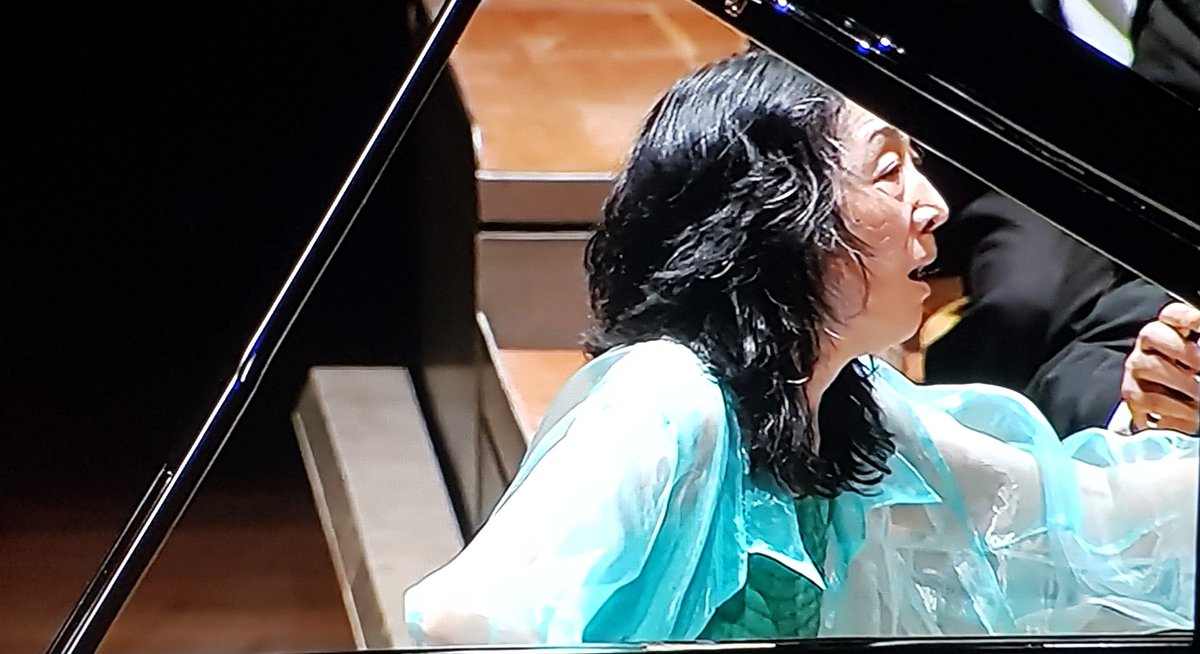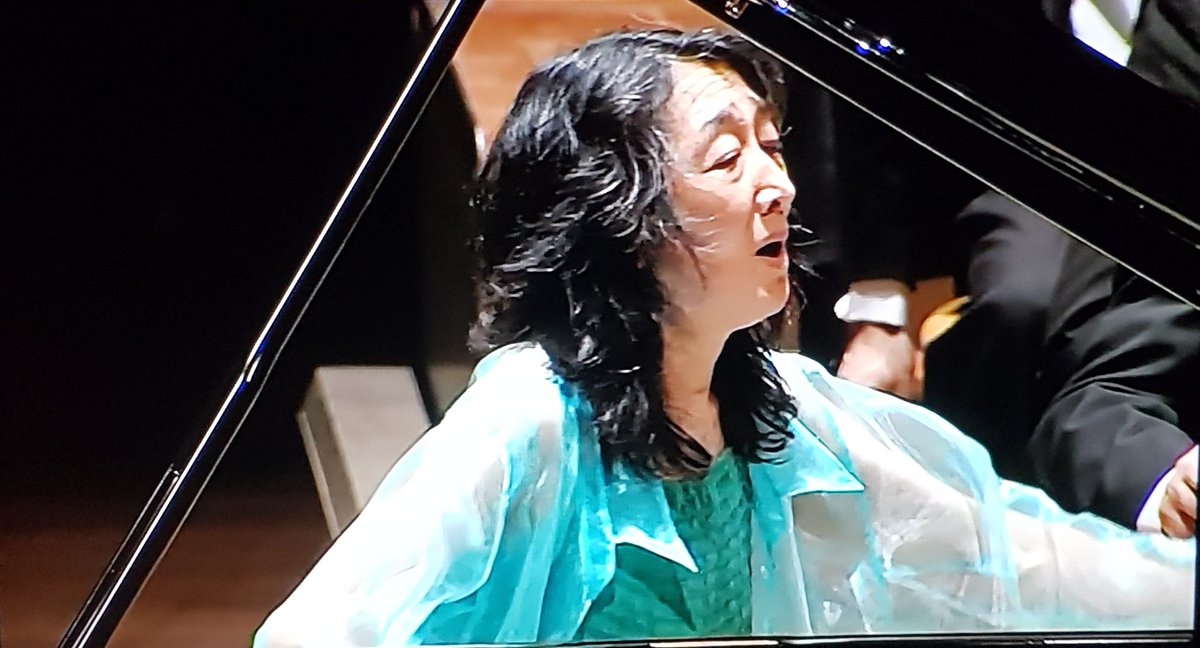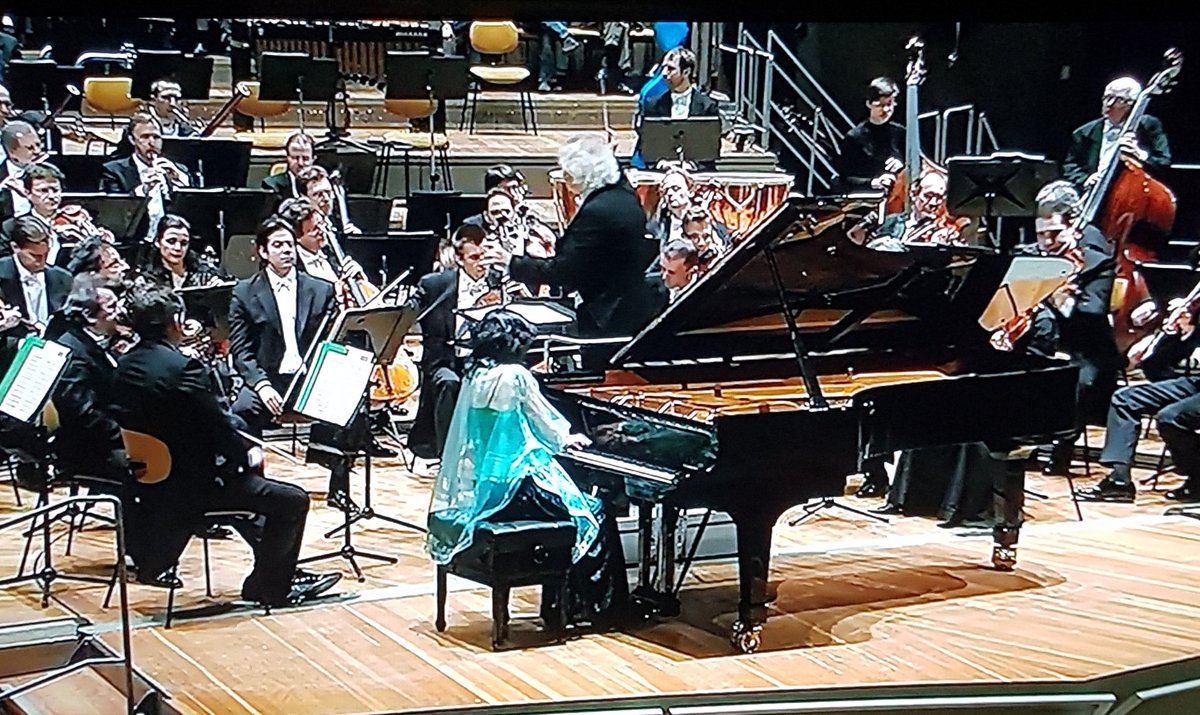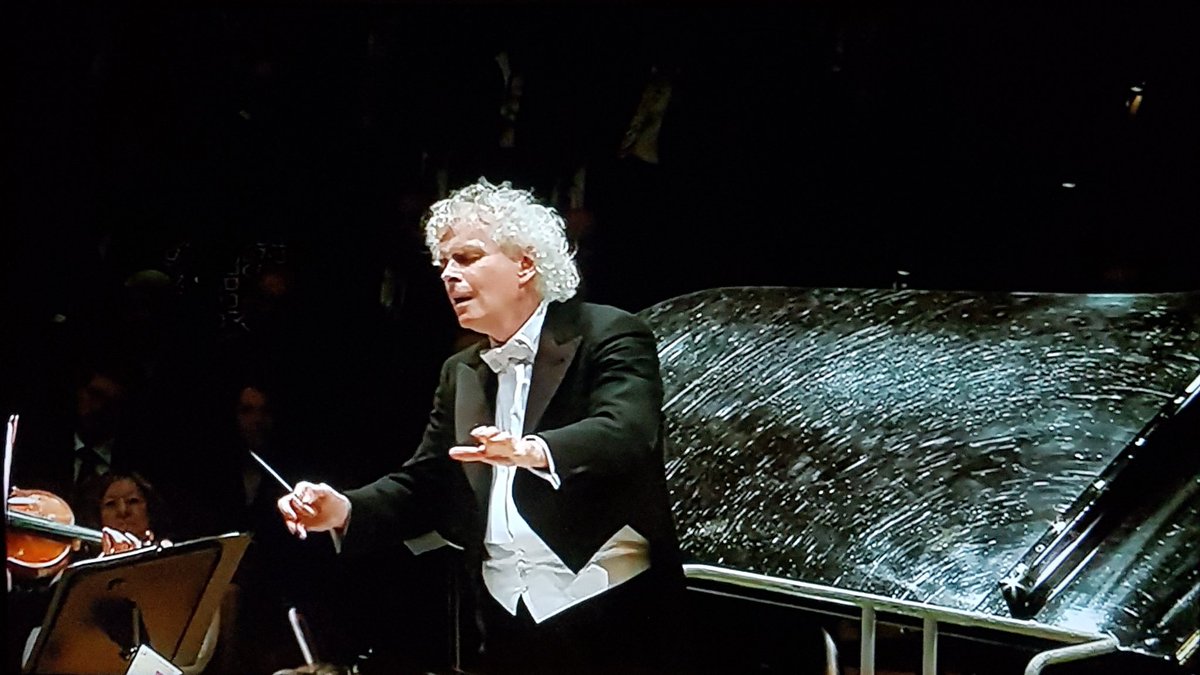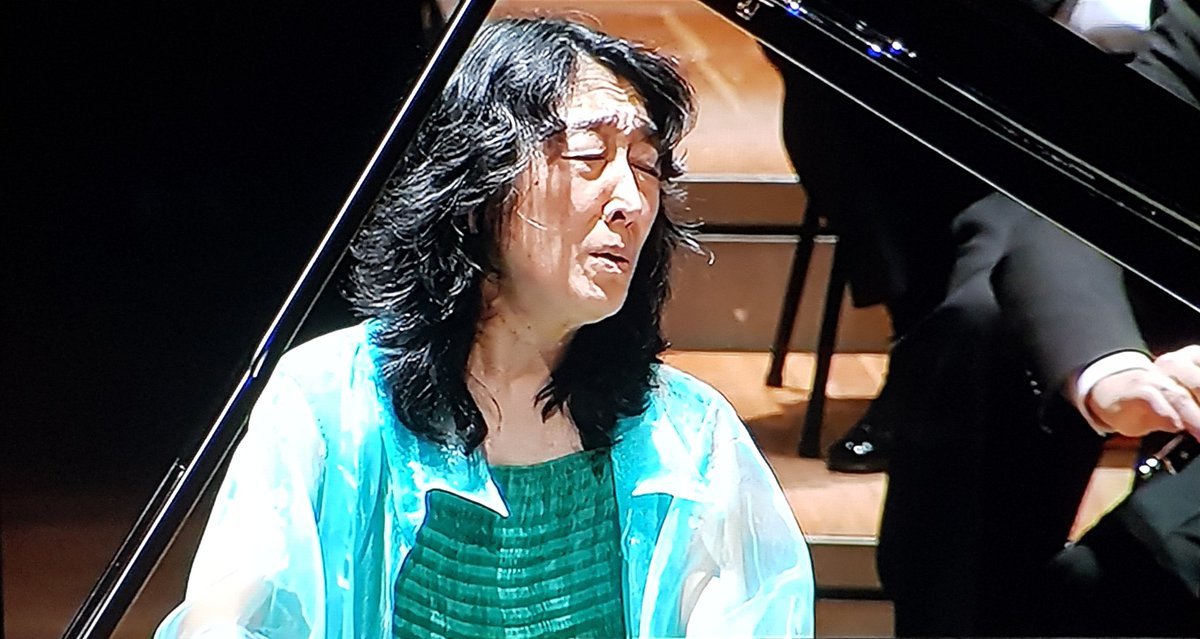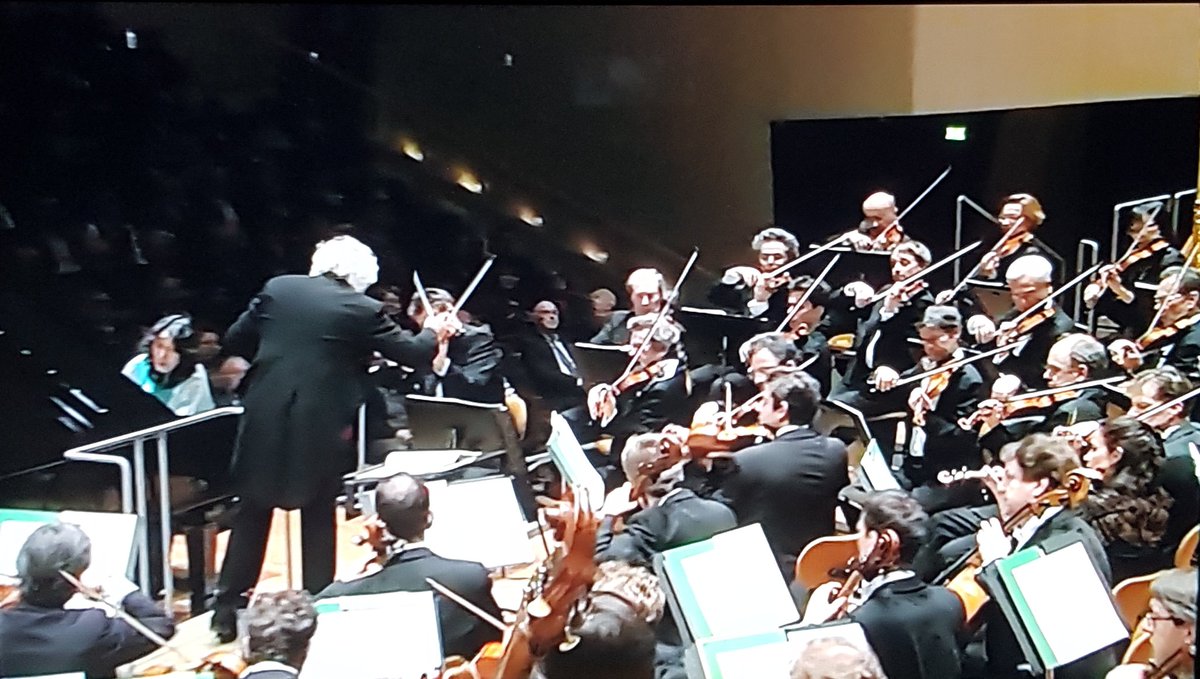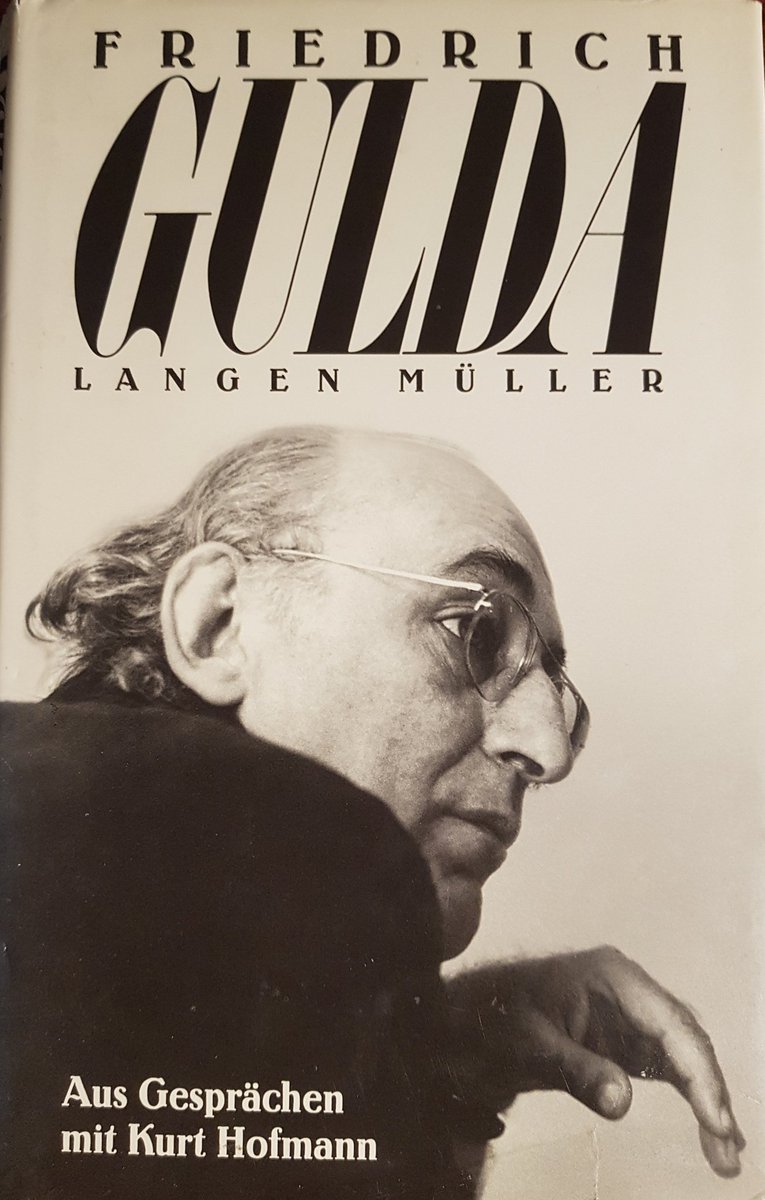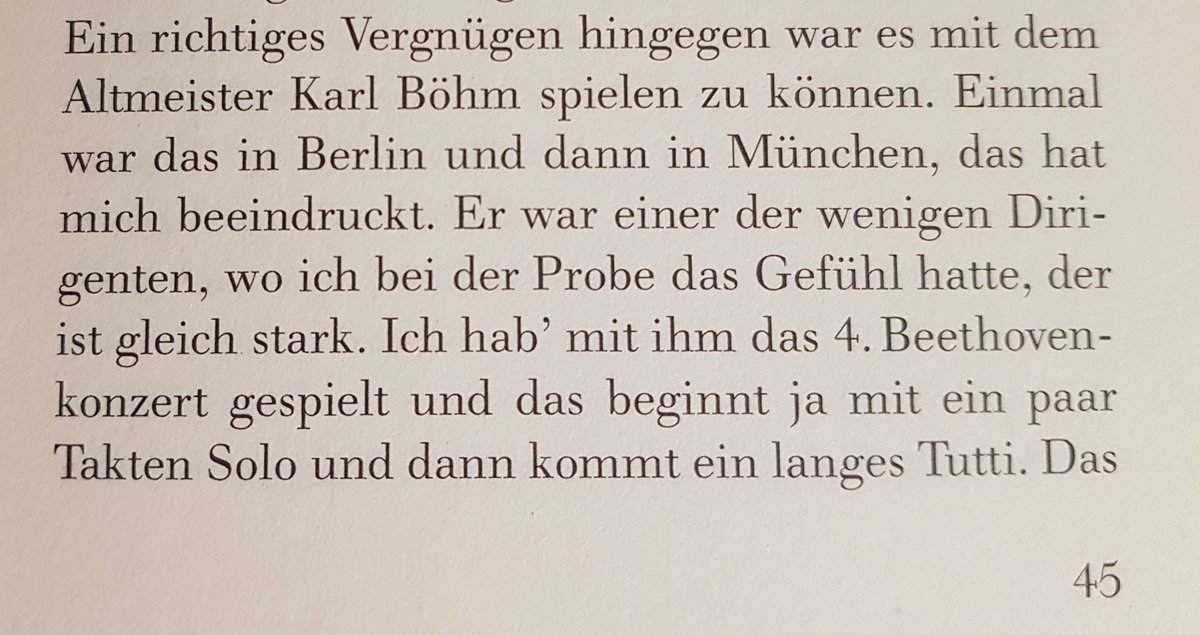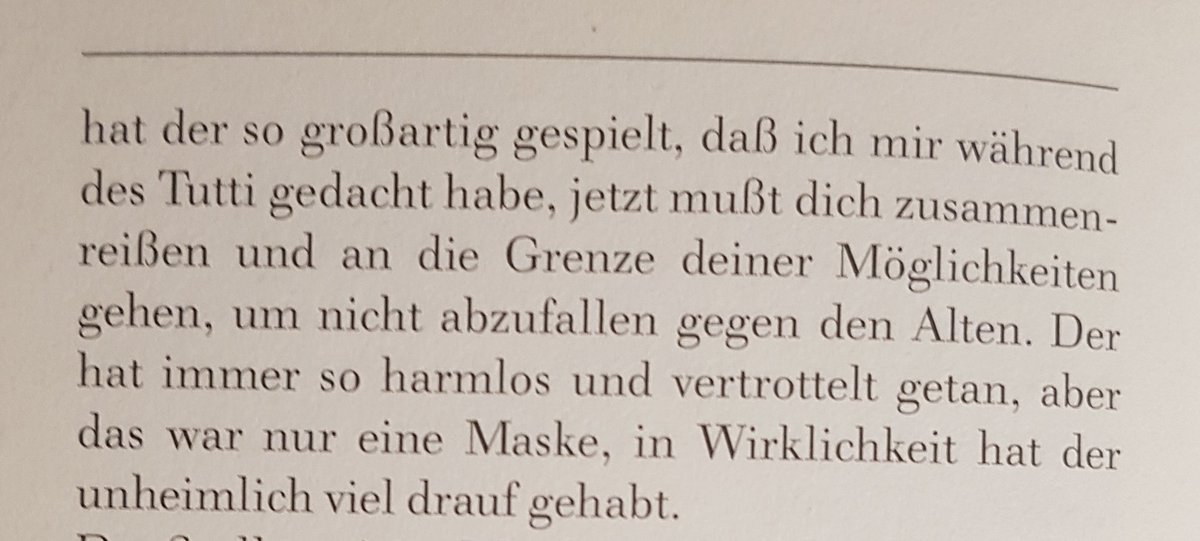#AprilBeethovenproject, next:
Piano Concerto 4 G major op. 58.
A concerto which is very special, the most lyrical one of Beethovens concertos. Quite different as the previous and the next concerto. >
Piano Concerto 4 G major op. 58.
A concerto which is very special, the most lyrical one of Beethovens concertos. Quite different as the previous and the next concerto. >
I& #39;ll listen to four performances as video recordings:
- Backhaus & Knappertsbusch in Vienna 1962
- Perahia & Marriner in London 1988
- Zimerman & Bernstein in Vienna 1989
- Uchida & Rattle in Berlin 2010 >
- Backhaus & Knappertsbusch in Vienna 1962
- Perahia & Marriner in London 1988
- Zimerman & Bernstein in Vienna 1989
- Uchida & Rattle in Berlin 2010 >
> But first I& #39;ll tell an anecdote, which I took from the biography of the German conductor Kurt Masur, written by Johannes Forner, published in 2002. The topic of this story is the influence of a great spirit, great personality in a musical performance. Here the great >
> personality is the pianist Claudio Arrau. You can read here the story as Masur tells it, in German. Here a short version in English.
Masur conducted the @Yle_Rso in Helsinki 1957. Arrau played Beethoven& #39;s 4th concerto as soloist. Masur tells, that the orchestra was at that >
Masur conducted the @Yle_Rso in Helsinki 1957. Arrau played Beethoven& #39;s 4th concerto as soloist. Masur tells, that the orchestra was at that >
> not in a particular good shape, especially by its sound. He tried to rehearse the orchestral part so good as he, a young conductor, could. But the beginning, in pianissimo, did never sound well. But then Arrau came to the next rehearsal and played the first solo bars. And a >
> miracle happened: What Arrau did with his personal radiance and pianistc skills to sing with the piano, was surprising. It moved suddenly to the sound of the orchestra, and Masur had some minutes a feeling as he had conducted the Vienna Philharmonic. He could only be >
> astonished.
The story tells much about music making in general and about the way, how impulses between musicians are moving. But it tells also about the special significance of the short piano solo at the beginning of the fourth concerto. >
The story tells much about music making in general and about the way, how impulses between musicians are moving. But it tells also about the special significance of the short piano solo at the beginning of the fourth concerto. >
> The German old-school pianist Wilhelm Backhaus played op. 58 at Wiener Festwochen festival 1962. He was then 78 years old. The conductor was an old renowned master, too, Hans Knappertsbusch. This is the oldest recording in my series. The film is, of course, black & white.
> The sound in the recording is on tolerable level, but as listener you shall use a little imagination, too. Theater an der Wien is for me an unknown concert place. Backhaus is sitting very below, but his playing flows in a natural way. >
> Backhaus can give the five opening bars such meaning and content, that convinces the listener immediately. I think, Knappertsbusch and the orchestra get a fine possibility to continue in tha same spirit, as Masur got from Arrau in the previous story. >
> The orchestral introduction is full of live and occurence, Knappertsbusch keeps all in motion with an perceiving touch and with eye for nuances. The WPh knows how to make music like this. So, the stage is ready for soloists entry. >
> All the beauty and joy of the 1st movement is coming out in self-clear way, the soloist and the orchestra are cooperating in a fully mutual understanding, and the structure is logical. Of the two alternative original cadenzas Backhaus chooses the first and longer one. >
> Backhaus belongs to those pianists, who are explaining the extraordinary dialogue between piano and unisono strings in the 2nd movement as a description about Orfeo and Eurydiche in the underworld. Knappertsbusch makes the strings repliques very strictly, and Backhaus answeres>
> calmly, and soon are the furies agreed with him and he can take his bride out of there. The story is told very clearly. And the rejoicing in the finale is out, not in a boisterous, but rather goodtempered mood. A very balanced and reasonable performance.
When Perahia and Marriner with ASMF are playing op. 58 in their concerto series at Royal Festival Hall, the atmosphre differs a lot of what I just heard from Theater an der Wien 26 years earlier. The dignity of Backhaus has been replaced by the energy of Perahia. >
> The lyrical spirit of the concerto is still there. The opening piano solo is touching, and so is the way, how the orchestra softly continues, suddenly in B major. The thematic and harmonic richness of the movement does be opened to the listener fantastically. The cadenza is >
> also here the 1st of original ones, with its altering 6/8 and 4/4 measures. In the Andante the dialogue of piano and strings has as strong contrasts, as one is waiting for, but now you don& #39;t automatically think about Orfeo and Euridice, but more about the ingenious imagination>
> of the composer. The delicate beginning of the rondo finale is leading to such a temperamental amusement, which takes the concerto to an irresistible ending, with great joy of playing.
This is Beethoven for me.
This is Beethoven for me.
Zimerman and Bernstein at op. 58: gorgeous, brilliant, stately, pompous. Something one cannot dislike or ignore. It carries one along, delights, in an irresistible way. But it is not among my greatest favourites. >
> I see the character of this concerto as totally different. The inner voice is here the important thing, not the outside brilliance and the mellow orchestral sound. Zimerman is an excellent pianist and musician, but I think, Bernstein takes him with to an other universum, >
< which he really does not belong to. Especially in this concerto. The drama in the 2nd movement is so exaggerated, so overmeasured, that it is difficult to tolerate. And after it, the finale does not begin in such a delicate way one should expect. But they totally >
> throw themselves to this music, sincerely. And make a great effect on the audience.
Once again: a matter of taste.
Once again: a matter of taste.
As the last performance of op. 58 Uchida & Rattle in Berlin.
And this is all you can wish. From the very first thoughtful piano replique to the delighted ending of the rondo finale. It is so full of nuances, of colours, of deep emotion, all on a Beethovenian level. >
And this is all you can wish. From the very first thoughtful piano replique to the delighted ending of the rondo finale. It is so full of nuances, of colours, of deep emotion, all on a Beethovenian level. >
After the five bars piano solo, Rattle and the orchestra are bringing so mildly mysterious tones, that this surprises one every time. The whole movement is so sensitive, that I don& #39;t know any other like that. But it has all the dramatic elements, too, which it shall have. >
Rattle begins the 2nd movement angry, with great energy, but not not nearly so as Bernstein does, which I regard almost an overstatement. And Rattle makes the diminuendo and finally pianissimo towards the end of the short movement in a very gently way. Uchida& #39;s piano sounds >
> here marvelous. The rondo begins again mysteriously, very softly and rapidly, and the ingenious structure of the movement gets a clear fluoroscopy with an incredible intensity. This is a totally uncompromising way to perform Beethoven& #39;s opus 58! >
> The musicians of Berliner Philharmoniker, every one of them, are playing for each one& #39;s dear life. The cooperation is totally perfect. >
> Uchida is at home in this concerto, she knows, how to put every single detail, how to form frasing and dynamics, how to build the great lines. Her piano technics is brilliant. And the reciprocal understanding between her and Rattle is seamless. >
> Uchida, as the three other pianists are all playing the long first cadenza by Beethoven in the 1st movement and the only original cadenza in the rondo. Thus there was now no possibility to hear the second original cadenza, but of couse there are recordings of it, too. >
In the beginning of this thread I told a little anecdote about the beginning bars of op. 58, the point of view was a conductor& #39;s. Now, at the end I& #39;ll show one soloist& #39;s point of view to the same beginning. I& #39;ve picked it out for you from the conversation book of pianist >
> Friedrich Gulda and Kurt Hofmann. Gulda has once played op. 58 with Karl Böhm, first the opening bars, and then... A surprise, the old man has conducted the orchestral tutti so magnificently, that Gulda thought during it: "Now you must pull yourself together and go to the >
> limits of your possibilities so that you do not lose against the old man." So, he did like very much to perform with Böhm and thought that Böhm was one of the few conductors he had the feeling, that they are as strong as he himself. The beginnig of op. 58 as an example. >

 Read on Twitter
Read on Twitter